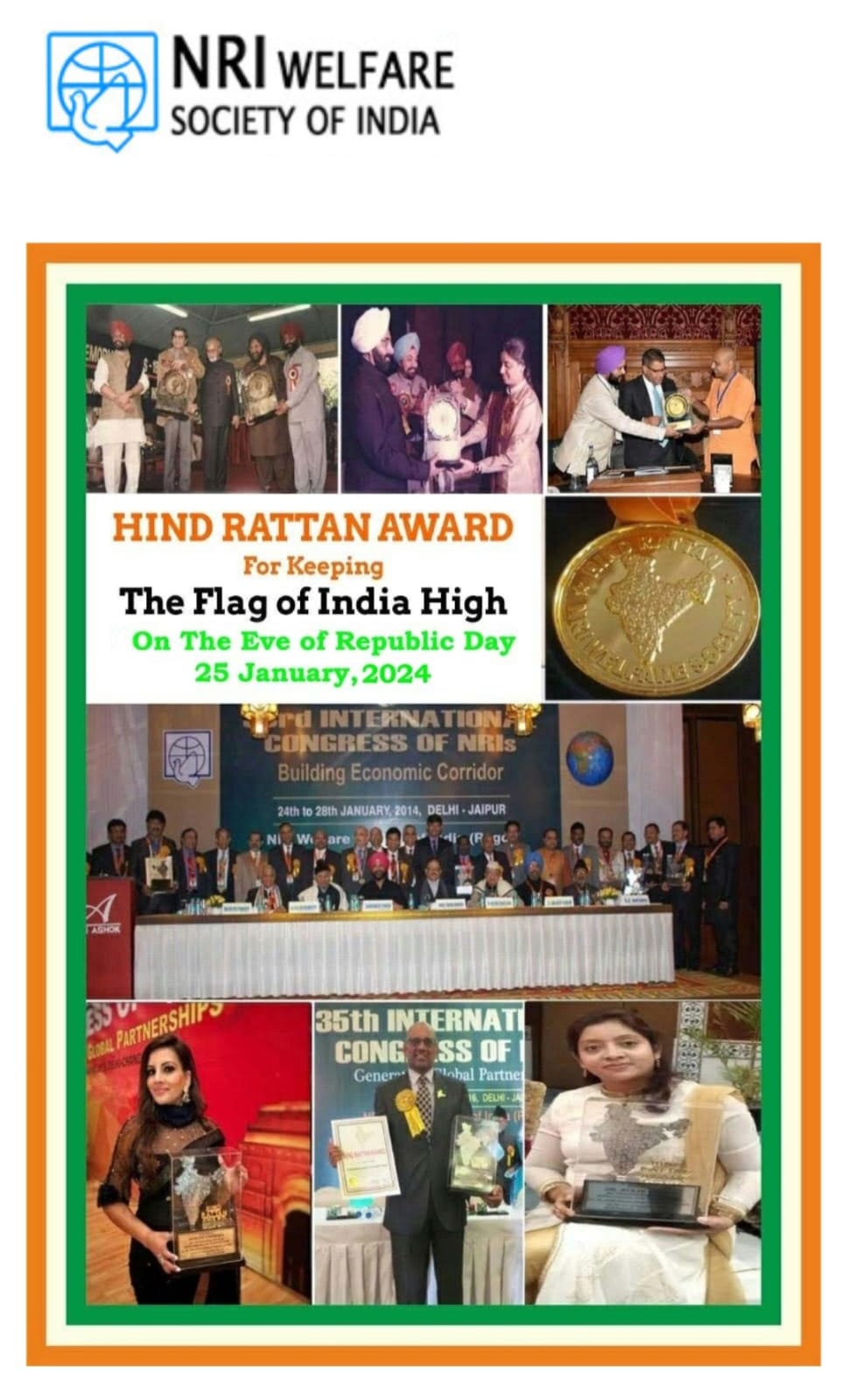The Indo-American Press Club (IAPC), the largest organization representing media professionals of Indian origin in North America, has announced the awardees who will honored at the 10th annual International Media Conference from May 3 to May 5, 2025 at The Woodlands Inn and Resort in Poconos, Pennsylvania.
The Media Conference will have participation from renowned journalists, media professionals, writers, and community leaders for discussions on media excellence, innovation, and global collaboration.
Marking a decade of fostering connections among media professionals, the conference will provide a vital platform for networking, knowledge-sharing, and building meaningful collaborations. Attendees can expect insightful panel discussions, keynote speeches, and interactive sessions led by media experts, offering valuable perspectives on the evolving world of journalism.
With digital transformation and press freedom remaining critical global issues, the conference will facilitate discussions on key challenges and potential solutions shaping the future of journalism.
Dr. Satheesh Kathula. Lifetime Achievement Award 2025
Dr. Satheesh Kathula, a board-certified hematologist and oncologist from Dayton, Ohio, practicing Medicine for over two decades, is the President of the American Association of Physicians of Indian Origin (AAPI).
Dr. Kathula is a clinical professor of medicine at Wright State University-Boonshoft School of Medicine, Dayton, Ohio, and is a Diplomate of the American Board of Lifestyle Medicine. He has authored several papers and articles in medical journals and has authored a book, describing his journey as an immigrant physician. The book is being released today at our Conference.
Dr. Kathula has dedicated his career to treating patients and actively supporting various nonprofit organizations. He strongly believes that acquiring new knowledge is crucial for professionals, especially physicians, with a changing healthcare environment. Recently, Dr. Kathula acquired a certificate from Stanford University in Artificial Intelligence in Healthcare. He graduated in May 2024 from Harvard University completing a “Global Healthcare Leaders Program.”
Dr. Kathula was the President and founding member of the Association of Indian Physicians from Ohio, President of the Miami Valley Association of Physicians of Indian Origin as well as the President of the ATMGUSA (Association of Telugu Medical Graduates in USA). In addition, he has worked with the Ohio State Medical Association on various issues. He has been actively involved in community service locally, nationally, and internationally for the last two decades. He was awarded ‘Man of the Year – 2018’ by the Leukemia and Lymphoma Society.
Not satisfied with his personal and professional achievements, Dr. Kathula has been active in the Indian community. With the objective of enabling Physicians of Indian Origin to give back to their motherland, India, he organized the Global Healthcare Summit is New Delhi, India in October this year.
Dr Kathula’s love for his motherland has manifested in him setting up humanitarian and medical projects in India. The most important of them is establishing a state-of-the-art pharmacy college in Warangal in Telangana, where he grew up. Named the Pathfinder Institute of Pharmacy and Educational Research (PIPER), the non-profit with Dr Kathula as the Chairman, provides quality education and has already graduated over 1,000 students who are now working in different parts of India and abroad. He conducted several medical camps close to his native place and donated a defibrillator, water purification plant, and library to his native place.
In 2024, Dr. Kathula was honored with the Inspirational Award given by Raising Awareness of Youth with Autism (RAYWA) Foundation for his contributions to the country, particularly in the field of healthcare, and his
Anju Vallabhaneni – Lifetime Achievement Award 2025
Anju Vallabhaneni is a highly committed leader with extensive expertise in global delivery and a deep passion for community service. He is the National President of ITServe Alliance, a non-profit association representing over 2,500 IT companies across the United States.
Anju’s impressive academic background includes an Engineering degree and an MBA. His career spans more than 25 years, during which he has served as President and CEO of several companies in North America, Latin America, and India.
His leadership and strategic vision have been instrumental in managing businesses with revenues ranging from $5 million to over $100 million.
In 2002, Anju founded United Software Group (USG), a company that has seen tremendous growth under his guidance. Over the past two decades, USG has expanded to employ over 2,000 professionals worldwide. The company’s success has been recognized on a national scale; Inc. 5000 listed USG among America’s Fastest-Growing Private Companies, and it was ranked #107 in the US-Midwest region in 2024.
Anju’s dedication extends beyond his professional achievements. He is deeply involved in philanthropic efforts, actively supporting over ten non-profit organizations. His commitment to giving back to the community highlights his belief in the importance of social responsibility.
Beyond his professional and philanthropic endeavors, Anju is also a seasoned athlete. He has completed more than 25 marathons, demonstrating his discipline, perseverance, and dedication in both his personal and professional life.
Anju is also a seasoned athlete, having completed over 25 marathons. Anju Vallabhaneni’s multifaceted career and contributions make him a deserving recipient of the Lifetime Achievement Award 2025, a testament to his enduring impact on the IT industry and his unwavering commitment to community service and personal excellence.
Prakash A. Shah. Lifetime Achievement Award 2025
Prakash Shah, Chairman and Chief Executive of First Growth Mortgage and Realty Group, is the current President of the Global Organization for the People of Indian Origin (GOPIO) International. He is a Founding Life Member of GOPIO, Asian American Hotel Owner’s Association (AAHOA ), National Federation of Indian Association and the New York City based India Chamber of Commerce of America, which he led for 15 Years, He is a former Chairman of New Jersey Development Authority and President Clinton’s Appointee to the Board of $108 Million Southern Africa Fund for 12 Countries of Southern Africa and Chair of the Board’s Investment Committee,
Prakash Shah served as the Chairman of New Jersey Development Authority under Governors Florio and Whitman. Mr. Shah was the Global Ambassador of GOPIO and later on, he was the Convener of the GOPIO Convention 2024 in New Jersey.
Mr. Shah, a well-respected leader in the Indian diaspora community, has more than 45 years of experience in the areas of mortgage banking, international investment banking, venture capital, financial management, computer systems and management sciences. Prior to founding First Growth, a financial company, Mr. Shah was concurrently Managing Directo of Asian Oceanic Group (a merchant banking group based in New York, Hong Kong and Singapore). Mr. Shah was Vice President of American Express Bank Ltd. and was responsible for the strategic planning and management information systems departments.
Mr. Shah was elected as a Hillary Clinton Delegate to the Democratic National Convention. Mr. Shah received a B.S.M.E. degree from the University of Baroda (India) in 1967, an M.S. degree in Management Sciences from Stevens Institute of Technology in 1969, and in 1971, completed course work for a Ph.D. at New York University. Mr. Shah holds Real Estate and Title Insurance Producer Licenses and is a Certified Hotel Administrator (CHA) and Certified Hotel Owner (CHO).
Dr. Vemuri S Murthy, MD, MS, FAHA, FICS. Lifetime Achievement Award 2025
Dr. Vemuri S. Murthy is an alumnus of Guntur Medical College and All India Institute of Medical Sciences, New Delhi, India (General Surgery). A former Chicago Anesthesiologist (and Department Chairman) for over thirty years, he is currently an Associate Professor (Adjunct) in the Department of Emergency Medicine at the University of Illinois College of Medicine in Chicago, Illinois, USA.
Dr. Murthy introduced the resuscitation training model for Indian Medical Colleges at Dr.NTR University of Health Sciences in 2012. He has been affiliated with the American Heart Association (AHA) for over thirty years in various capacities, such as Member of the International Committee, National Faculty and Advisor to AHA International Training Centers in India.
Dr. Murthy is a visiting professor at various Indian medical institutes, such as the All India Institute of Medical Sciences.He chaired many Resuscitation and Emergency Medical Care Conferences in India, AHA ReSS sessions program in the USA, lectured at acclaimed US Medical Universities and authored resuscitation-related Journal articles and Cardiology book chapters. He is the co-investigator of a ground-breaking Cardiac Arrest Registry in India, “Warangal Area Cardiac Arrest Registry”.
Dr. Murthy founded Chicago Medical Society’s Community CPR Project SMILE (Saving More Illinois Lives through Education) in 2011. As an Advisor to the Odisha State Government (Health and Family Welfare), he initiated India’s first State Governmental community CPR training project in Odisha in 2023. He also founded the first Indo-US Community Health and CPR Training Center at the National India Hub, Schaumburg, Illinois, USA (2024).
Dr. Murthy, a past President of the Chicago Medical Society and Indian American Medical Association (Illinois), has received several prestigious national and international awards including two Lifetime Achievement Awards and a Medal of US Congress as “Global Champion of Resuscitation” for his professional and community service contributions in the USA and India. He has been contributing to Indo-US News media articles and videos raising awareness of Heart disease and Cardiac Arrests among Indians and Indian diaspora for over two decades.
Sam Maddula. Lifetime Achievement Award 2025
Sam Maddula, Founder & CEO of Bank’s Apothecary Specialty Pharmacy, is an esteemed leader, entrepreneur, and committed philanthropist. His life transformed dramatically when his parents discovered an Eye Camp set up by the Eye Foundation of America (EFA) in 1987 in Andhra Pradesh. This camp enabled him to overcome legal blindness and poverty, changing his life trajectory from darkness to light.
After earning his doctorate in pharmaceutical studies from Rutgers University, Maddula founded a specialty pharmacy in 2010, focusing on mental health and substance disorders. His leadership propelled Bank’s Apothecary Specialty Pharmacy to generate $350 million in annual revenue, becoming the largest independently held behavioral health specialty pharmacy with operations in 16 states.
With over 15 years of experience driving growth and innovation in healthcare and specialty pharmacy, Maddula’s expertise spans business, medicine, and philanthropy. His ventures aim to improve lives through healthcare innovation and support both for-profit and non-profit initiatives. He established the Maddula Foundation, contributing significantly to healthcare and educational initiatives for underserved communities.
Maddula serves on the Executive Advisory Council Board at the University of Washington School of Pharmacy, the Board of Directors at Liguori Academy, and the Eye Foundation of America. He is a renowned speaker on healthcare, philanthropy, and leadership, with two decades of experience as a pharmacist, clinician, and CEO. Maddula mentors aspiring pharmacists and continues to advocate for a more equitable society through various non-profits and civic organizations.
A passionate philanthropist, Maddula has contributed significantly to the Eye Foundation of America and mentors the next generation of leaders. His commitment to giving back is evident in his active involvement in community service and advocacy for societal change.
Madhavan B. Nair. Lifetime Achievement Award 2025
Madhavan B. Nair (MBN) is a Chartered Financial Consultant and esteemed community leader, renowned for his dedication to public service, cultural involvement, and philanthropy. Based in New Jersey, he has long committed himself to advancing the well-being of the Indian-American community through various leadership roles and grassroots initiatives.
Professionally, Mr. Nair is the Principal and owner of MBN Insurance & Financial Services Inc., where he has built a strong reputation for trust, integrity, and service. His entrepreneurial career provided a solid foundation for his broader involvement in community development.
Mr. Nair is the Founder and Patron of the North American Malayalee Association of Malayalees (NAMAM), established in 2010 with the objectives of supporting and uplifting Indian culture and heritage among Indian immigrants in the USA. From 2018 to 2020, he served as President of FOKANA (Federation of Kerala Associations in North America), extending his leadership both across North America and internationally. Under his stewardship, FOKANA’s relief efforts during the COVID-19 pandemic and the Kerala floods received widespread appreciation.
In 2017, Mr. Nair established the MBN Foundation as the principal vehicle for his philanthropy. Upon retiring from full-time business in 2025, he dedicated himself entirely to advancing its mission. Today, the Foundation is devoted to nurturing student skill development and championing cancer-prevention initiatives—addressing urgent needs in education and healthcare to deliver lasting impact.
In 2023, Mr. Nair published two essay collections—’Sunlit Signs’ (in English) and ‘Veyil Kaazhchakal’ (in Malayalam)—in which he reflects on political developments, pivotal historical events, and pressing global affairs.
Leveraging his professional achievements and unwavering commitment to social causes, Mr. Nair has firmly established himself as a distinguished and influential leader within both the Indian American community and the larger society.
Rohit Vyas — Lifetime Achievement Award 2025
Rohit Vyas is an acclaimed documentary filmmaker and a veteran international broadcast journalist whose distinguished career spans over four decades across television, print, and documentary media. As the former News Director, Senior Vice President, and Principal Nightly News Anchor at TV ASIA (USA), he played a pivotal role in shaping the voice of one of the most influential South Asian networks in North America.
Prior to that, he served as News Director and Principal Anchor for Vision of Asia News, CH 47, delivering trusted news to the New York Tri-State area. In addition to his editorial leadership, Rohit Vyas serves as Chief Advisor to ITV Gold (USA), continuing to guide the network’s journalistic and programming strategy.
His editorial footprint extends to print journalism, where he was the Editor of several publications, including the International Observer, a newsweekly dedicated to United Nations affairs and global diplomacy. A respected figure in international media circles, he is a long-standing member of the United Nations Correspondents Association (for over 40 years) and a former member of the White House Traveling Media Delegation, covering pivotal moments and global summits alongside world leaders.
His commitment to public service and journalistic integrity earned him a place on the Asian American Pacific Advisory Council under New Jersey Governor Christine Whitman. His contributions have been honored by the New Jersey State Assembly, the Nassau County Executive of Long Island, New York, and numerous civic and professional organizations nationwide, celebrating his legacy of impactful journalism and unwavering service to the community.
An objective storyteller at heart, Rohit Vyas continues to create thought-provoking documentaries that shed light on diaspora narratives, international affairs, and pressing global issues.
Since its inception in 2013, the Indo-American Press Club has become a leading voice for Indian-origin journalists in North America. With active chapters in multiple cities—including Alberta, Atlanta, Connecticut, Dallas, Houston, New Jersey, New York, Niagara, Philadelphia, Toronto, Vancouver, and Washington, DC—the organization continues to champion press freedom, journalistic integrity, and professional development.
Through annual conferences, networking events, and training programs, IAPC has played a key role in advocating for ethical journalism while strengthening the connection between Indian American media professionals and mainstream journalism.
As the media landscape continues to change, this conference will serve as a critical forum for innovation, ethical discourse, and collaboration, ensuring that journalists remain at the forefront of truth, integrity, and impactful storytelling.
For details on registration, participation, and sponsorship opportunities, visit the official IAPC website at www.indoamericanpressclub.com
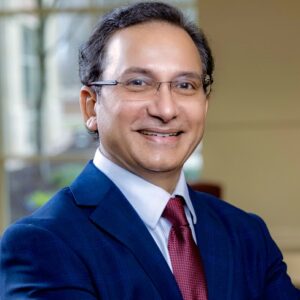 “It is my great pleasure to personally invite you all to the 43rd Annual Convention and Scientific Assembly of the American Association of Physicians of Indian Origin (AAPI), being held in vibrant Cincinnati, Ohio, from July 24th to 27th, 2025,” said Dr. Satheesh Kathula, President of AAPI, while inviting AAPI members to the prestigious event that will bring together nearly 1,000 delegates including Physicians, Academicians, Researchers and Medical students, along with guests to the Convention in Cincinnati from across the country for an enriching experience of networking, learning, and celebration.
“It is my great pleasure to personally invite you all to the 43rd Annual Convention and Scientific Assembly of the American Association of Physicians of Indian Origin (AAPI), being held in vibrant Cincinnati, Ohio, from July 24th to 27th, 2025,” said Dr. Satheesh Kathula, President of AAPI, while inviting AAPI members to the prestigious event that will bring together nearly 1,000 delegates including Physicians, Academicians, Researchers and Medical students, along with guests to the Convention in Cincinnati from across the country for an enriching experience of networking, learning, and celebration.
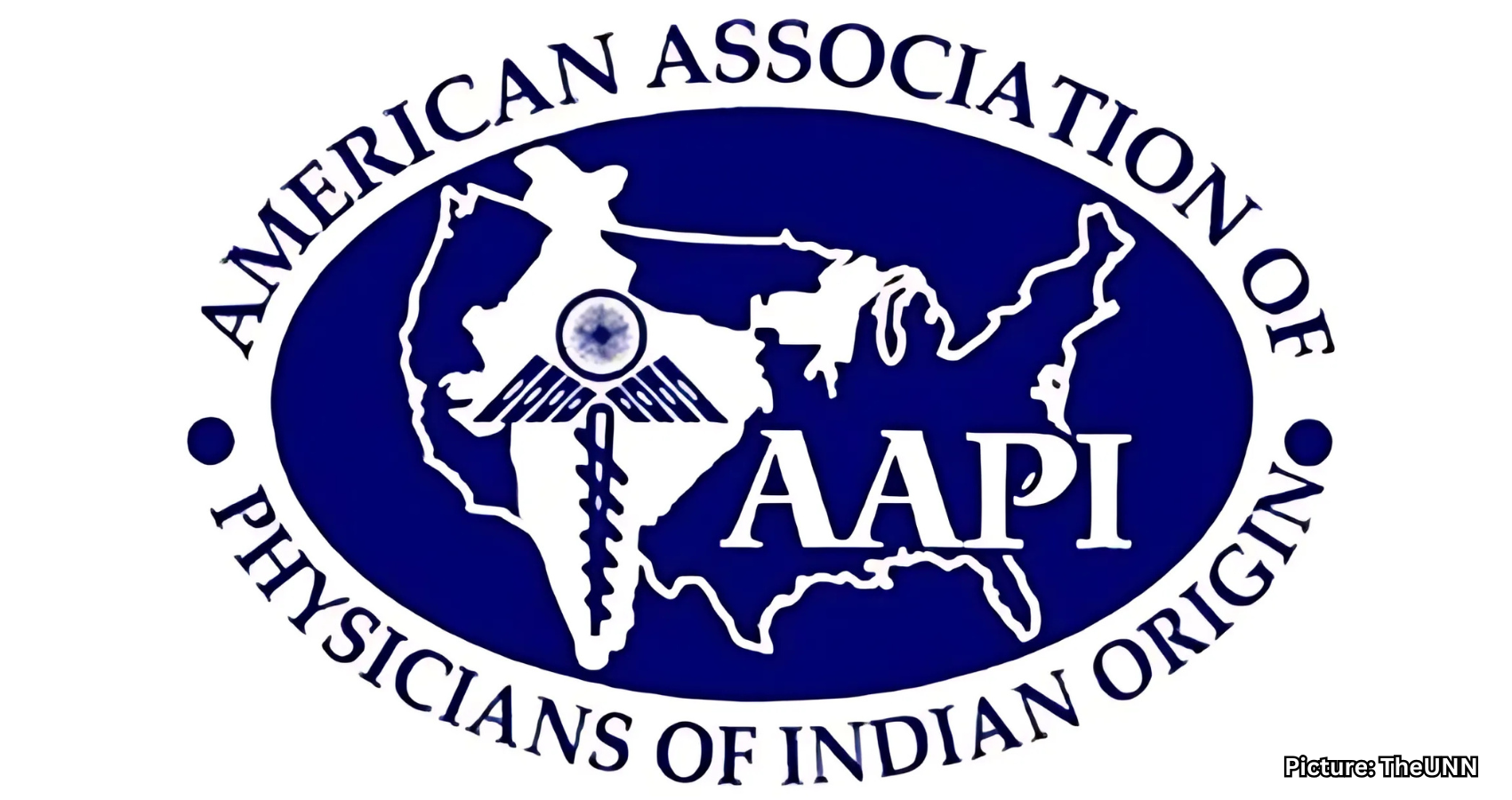

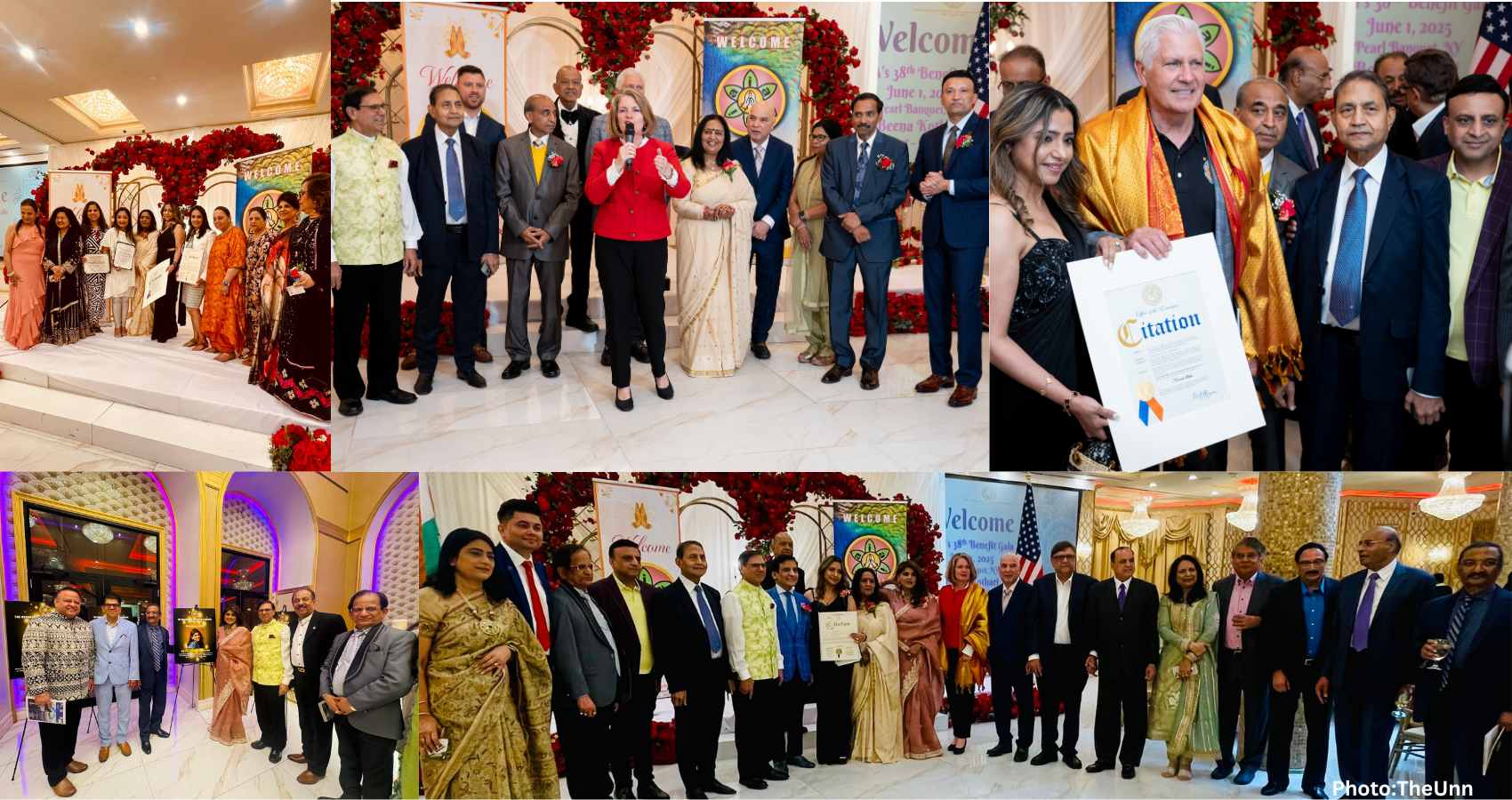
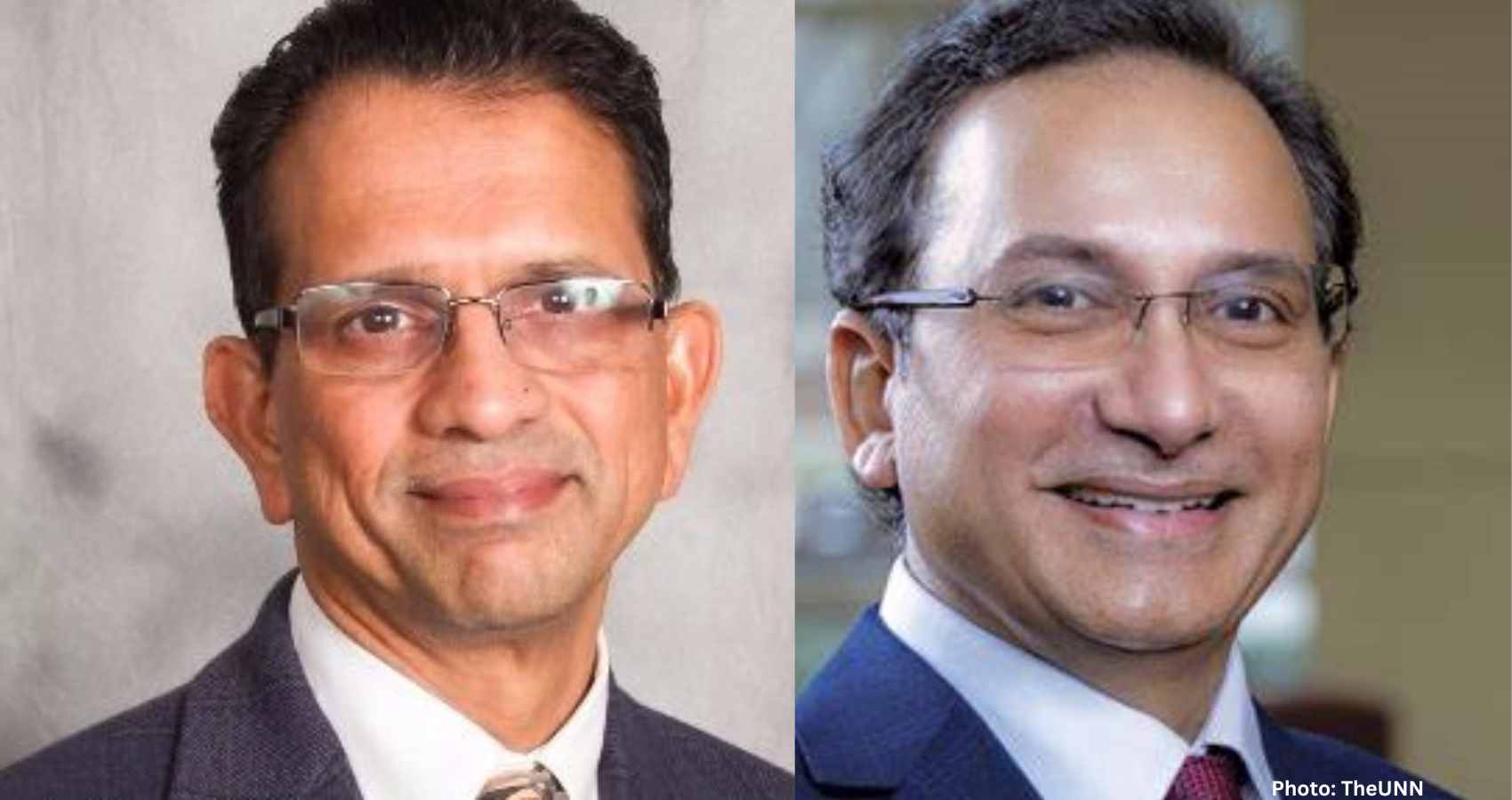

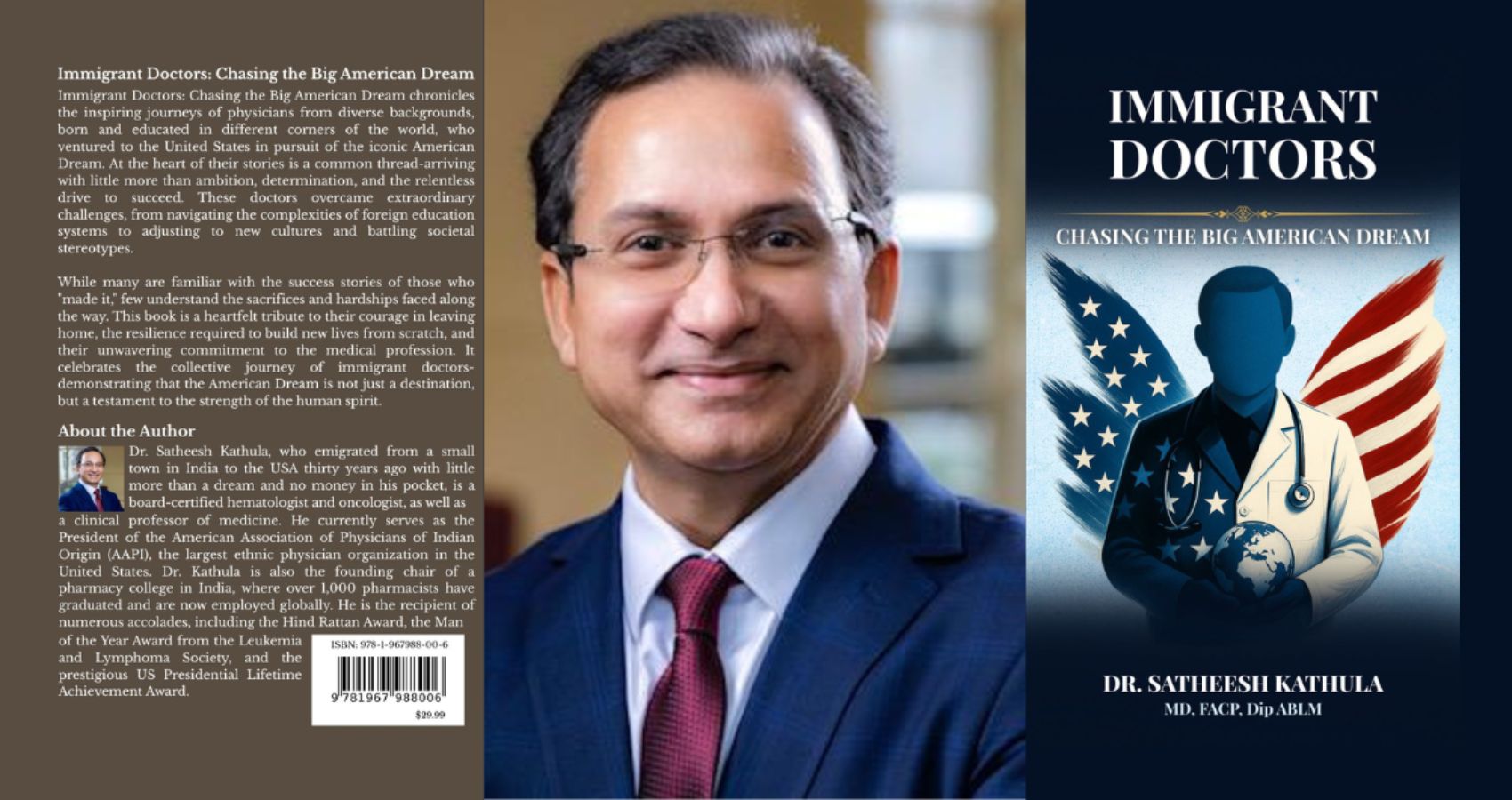
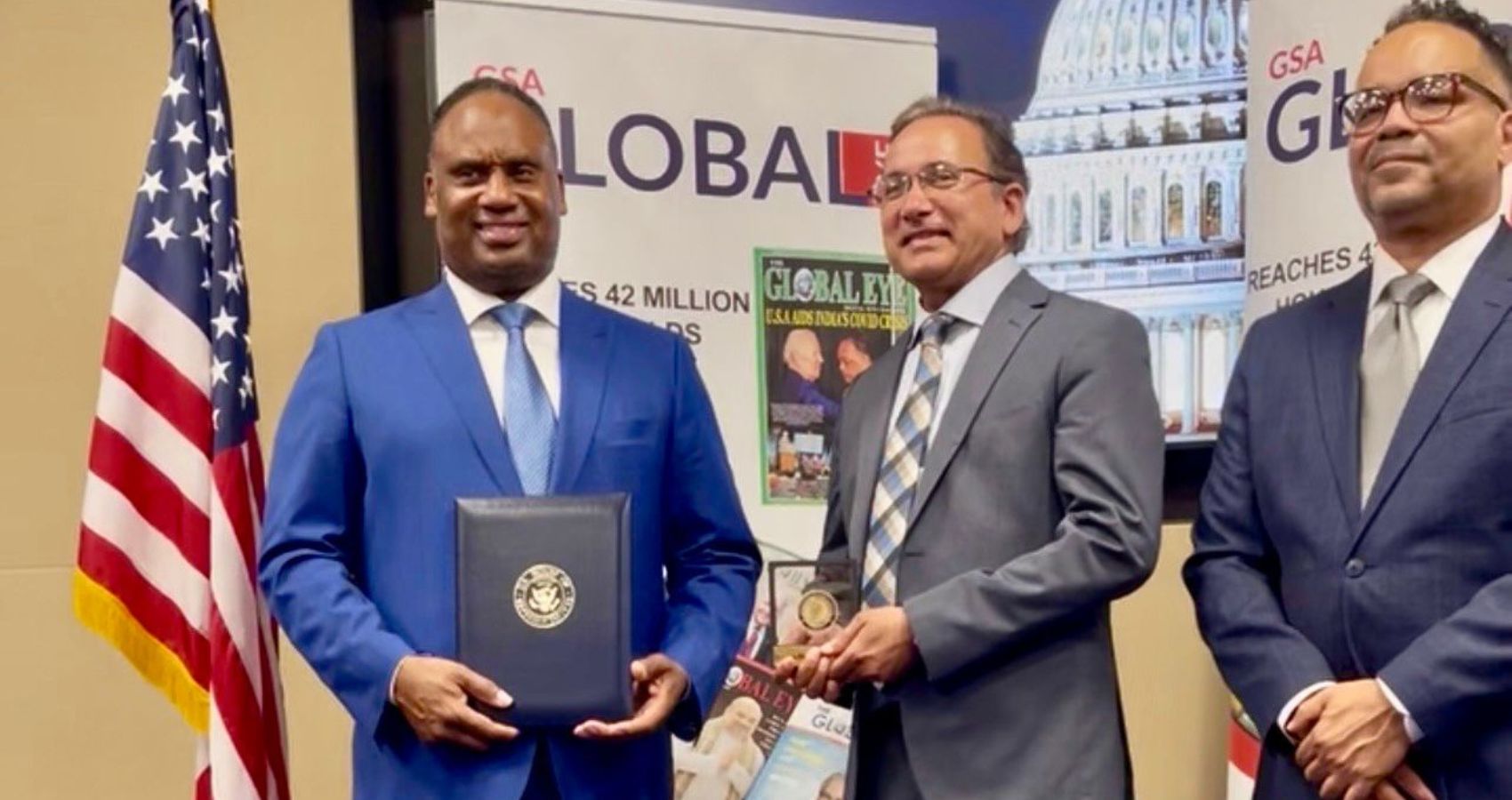
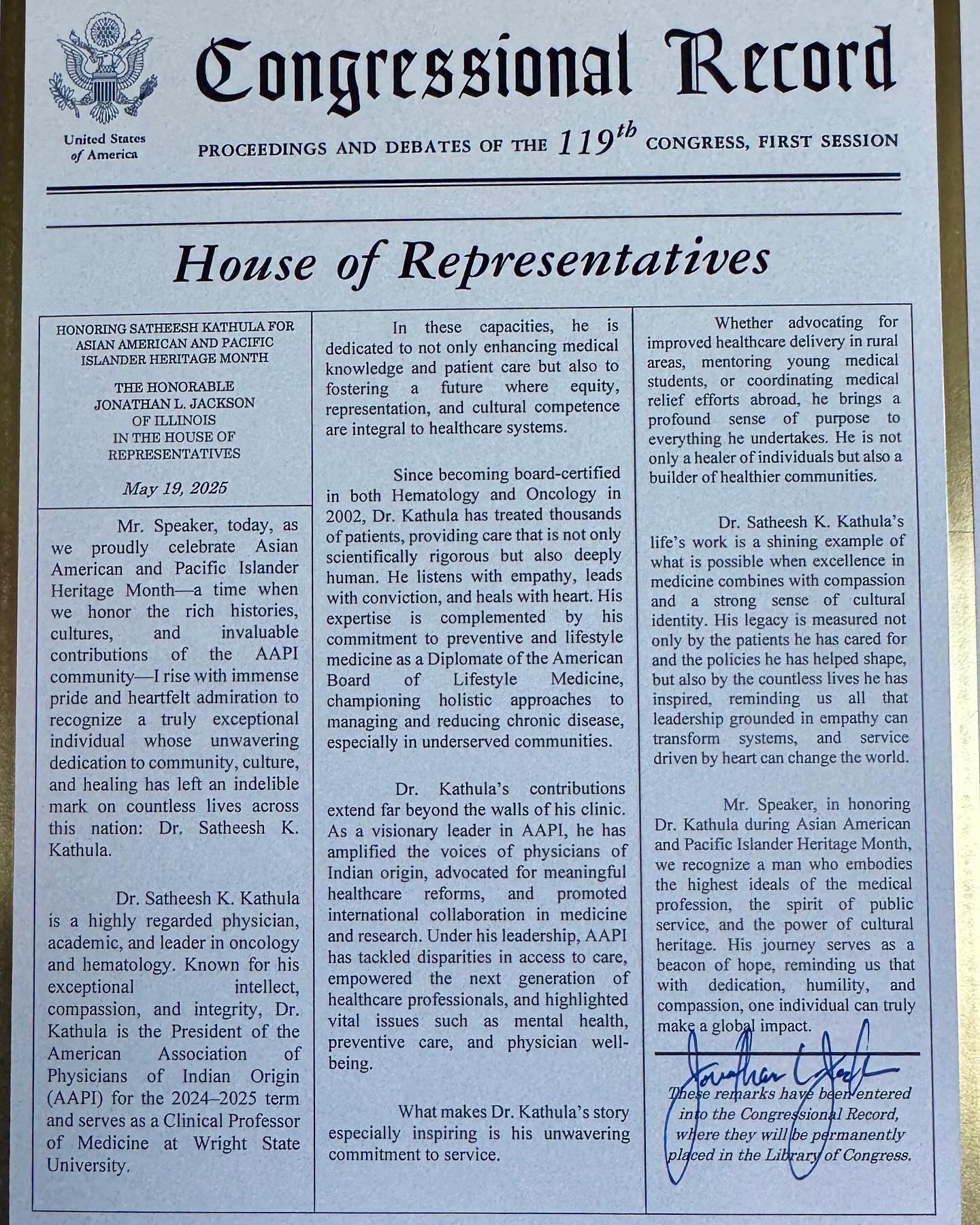 As a Diplomat of the American Board of Lifestyle Medicine, championing holistic approaches to managing and reducing Chronic Disease, especially in underserved communities, “Dr Kathula’s contributions extend far beyond the walls of his clinic. As a visionary leader in AAPI, he has amplified the voices of Physicians of Indian religion, advocated for meaningful healthcare reforms, and promoted international collaboration in medicine and research under his leadership,” Rep. Jackson added.
As a Diplomat of the American Board of Lifestyle Medicine, championing holistic approaches to managing and reducing Chronic Disease, especially in underserved communities, “Dr Kathula’s contributions extend far beyond the walls of his clinic. As a visionary leader in AAPI, he has amplified the voices of Physicians of Indian religion, advocated for meaningful healthcare reforms, and promoted international collaboration in medicine and research under his leadership,” Rep. Jackson added.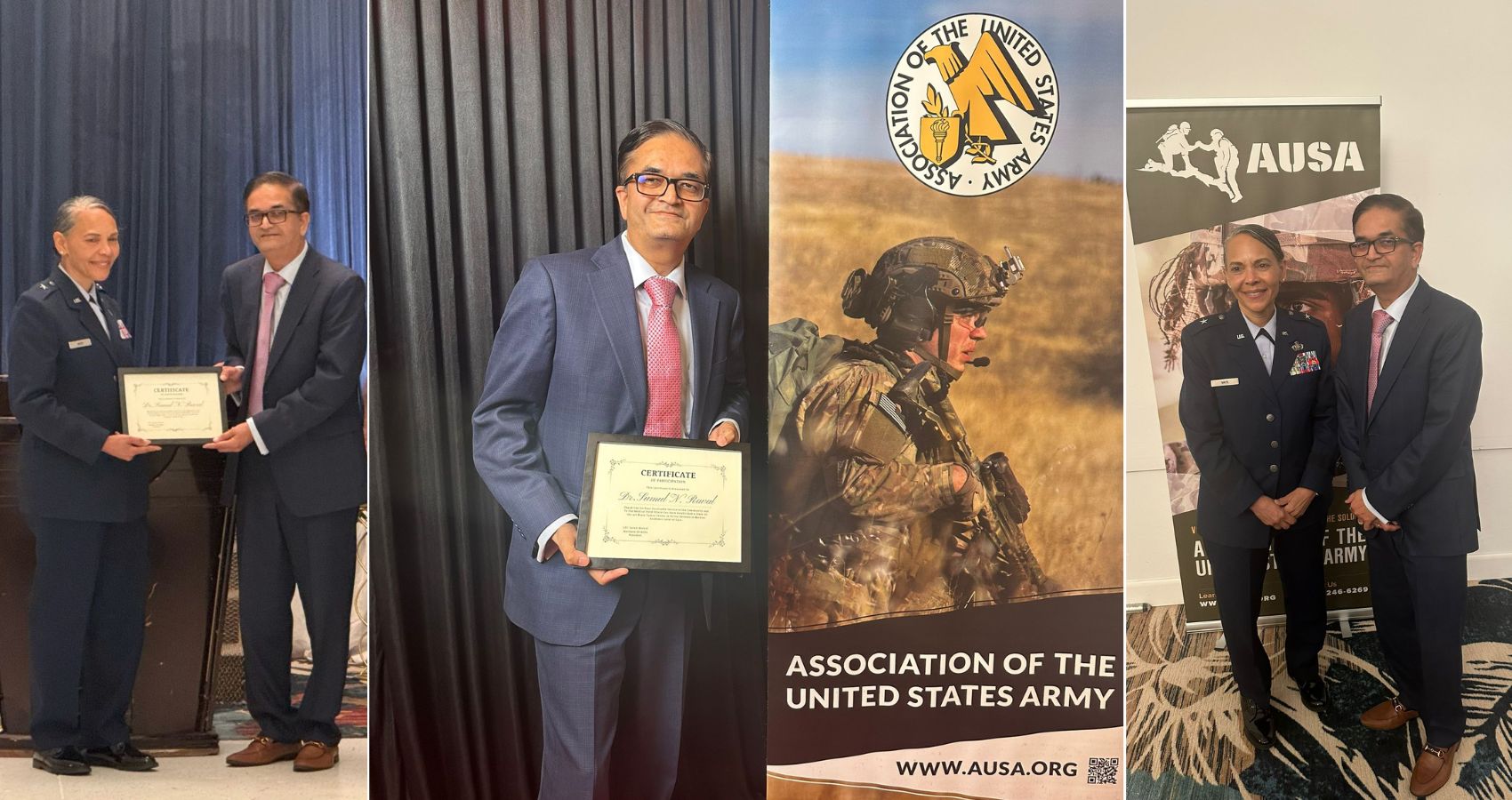
 His facility, the David S. Zocchi Brain Tumor Center, is renowned for its innovative approaches in treating brain tumors and improving patient outcomes. Dr. Raval’s dedication to providing compassionate care has earned him accolades, including the GBM Heroes Award presented at the 21st Annual Scientific Meeting of the Society for Neuro-Oncology organized by CURE® magazine.
His facility, the David S. Zocchi Brain Tumor Center, is renowned for its innovative approaches in treating brain tumors and improving patient outcomes. Dr. Raval’s dedication to providing compassionate care has earned him accolades, including the GBM Heroes Award presented at the 21st Annual Scientific Meeting of the Society for Neuro-Oncology organized by CURE® magazine.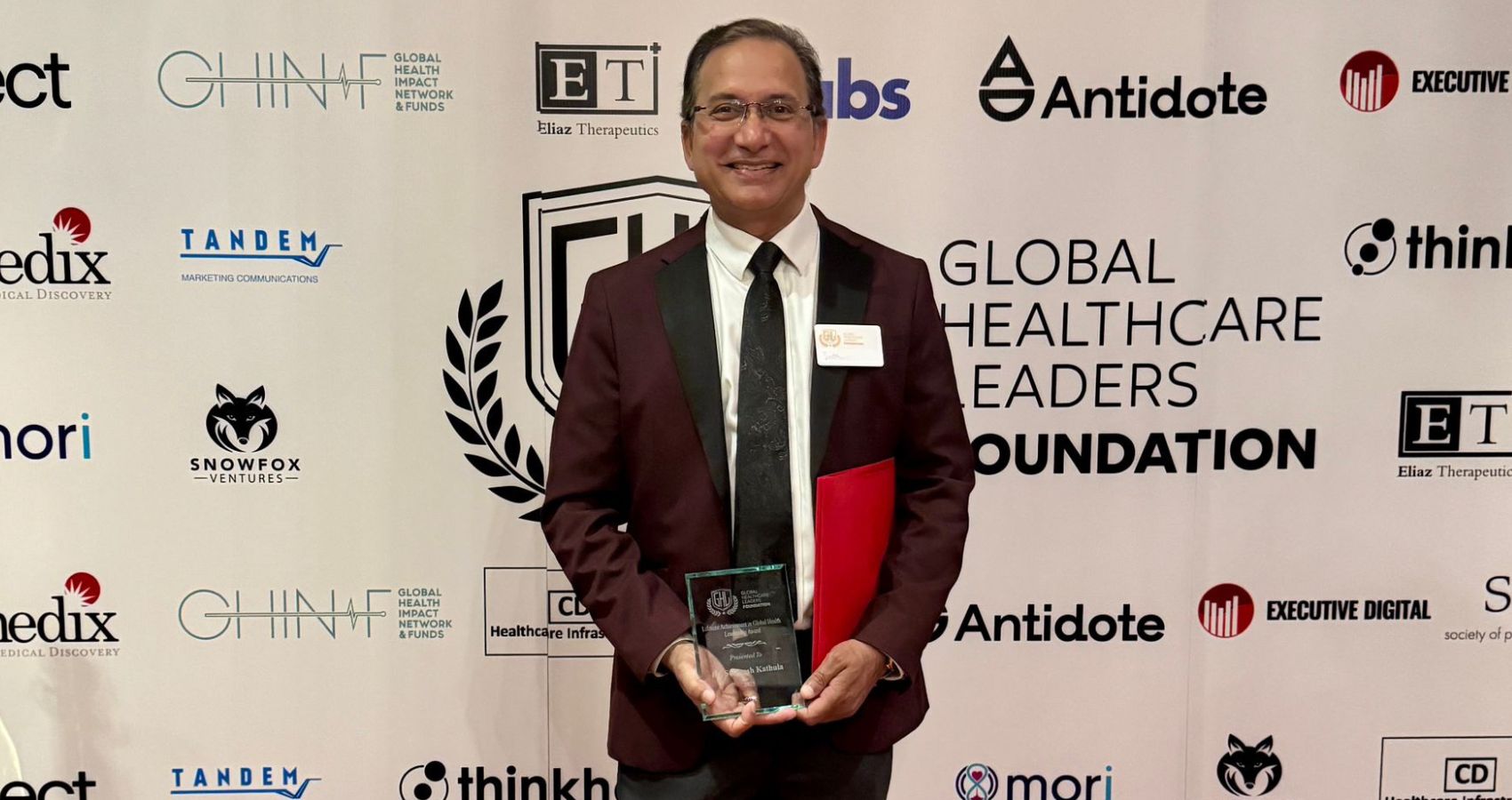
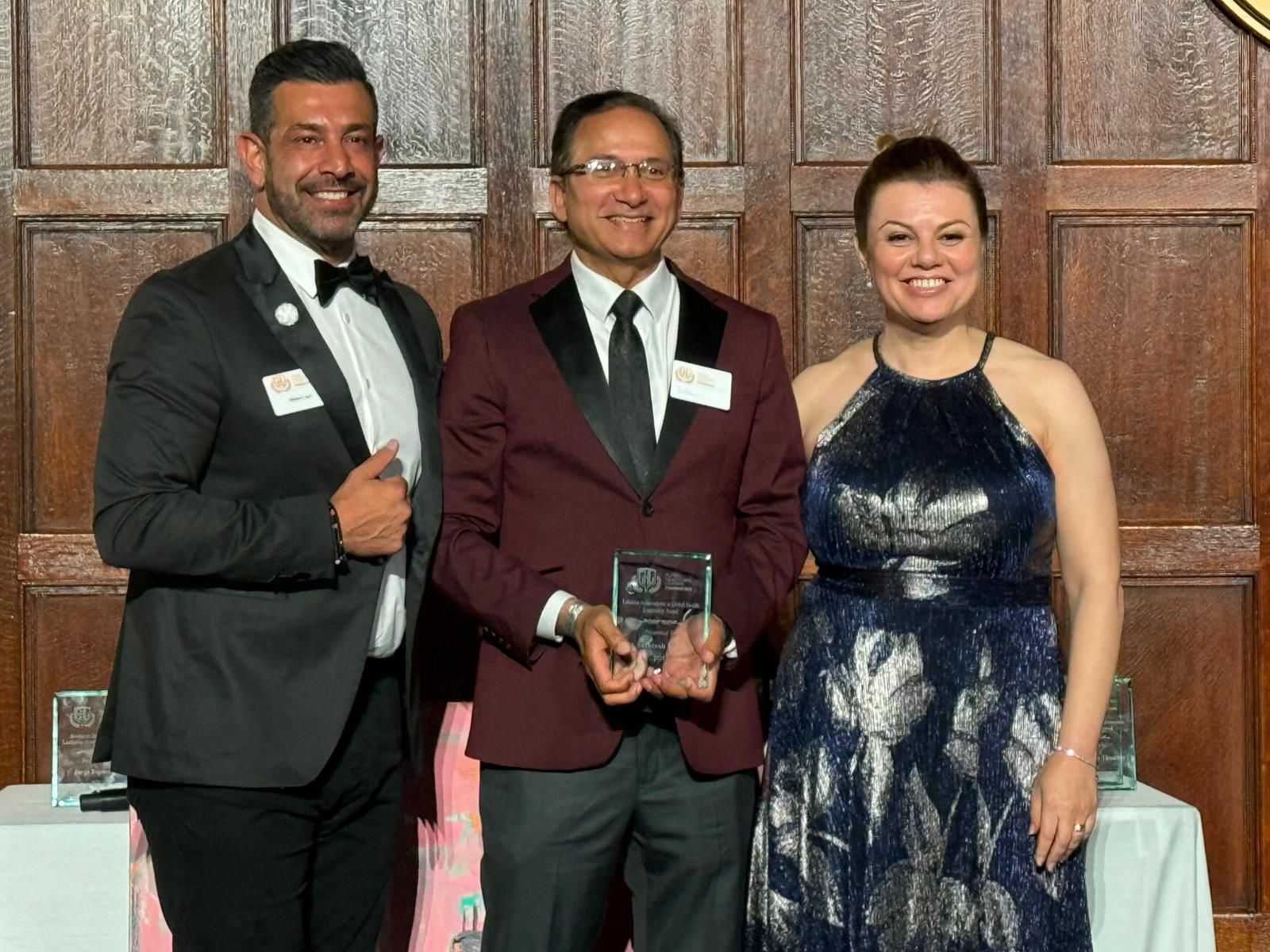 Dr. Satheesh Kathula is a renowned hematologist and oncologist based in Dayton, Ohio, currently serving as the President of the American Association of Physicians of Indian Origin (AAPI). Dr. Kathula, in his response after receiving the award, said, “I am truly humbled to receive this Lifetime Achievement in Global Healthcare Leadership alongside several other remarkable individuals. This inspires not only me, but the people who are serving the community and society at large.”
Dr. Satheesh Kathula is a renowned hematologist and oncologist based in Dayton, Ohio, currently serving as the President of the American Association of Physicians of Indian Origin (AAPI). Dr. Kathula, in his response after receiving the award, said, “I am truly humbled to receive this Lifetime Achievement in Global Healthcare Leadership alongside several other remarkable individuals. This inspires not only me, but the people who are serving the community and society at large.”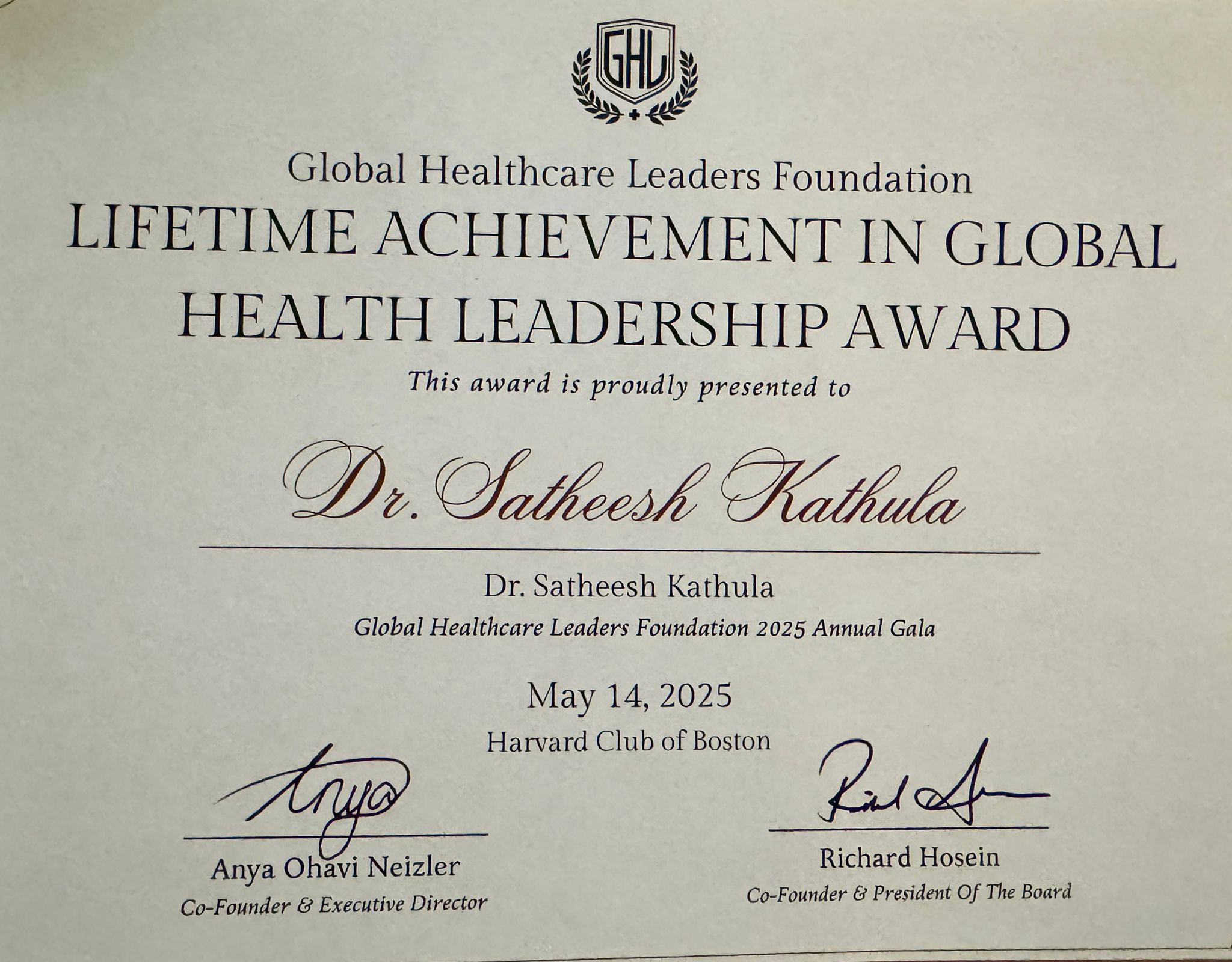 Under his leadership, AAPI has launched a program called “Million Miles of Gratitude” to honor veterans by promoting physical activity. Participants can log their walking or running miles, with each mile serving as a tribute to the veterans. The goal is to collectively reach a million miles in the coming year. In May this year, he led a highly successful AAPI Legislative Day on Capitol Hill, where AAPI sought to collectively shape the best health care for the people of US, with the physician at the helm, caring for the medically underserved.
Under his leadership, AAPI has launched a program called “Million Miles of Gratitude” to honor veterans by promoting physical activity. Participants can log their walking or running miles, with each mile serving as a tribute to the veterans. The goal is to collectively reach a million miles in the coming year. In May this year, he led a highly successful AAPI Legislative Day on Capitol Hill, where AAPI sought to collectively shape the best health care for the people of US, with the physician at the helm, caring for the medically underserved.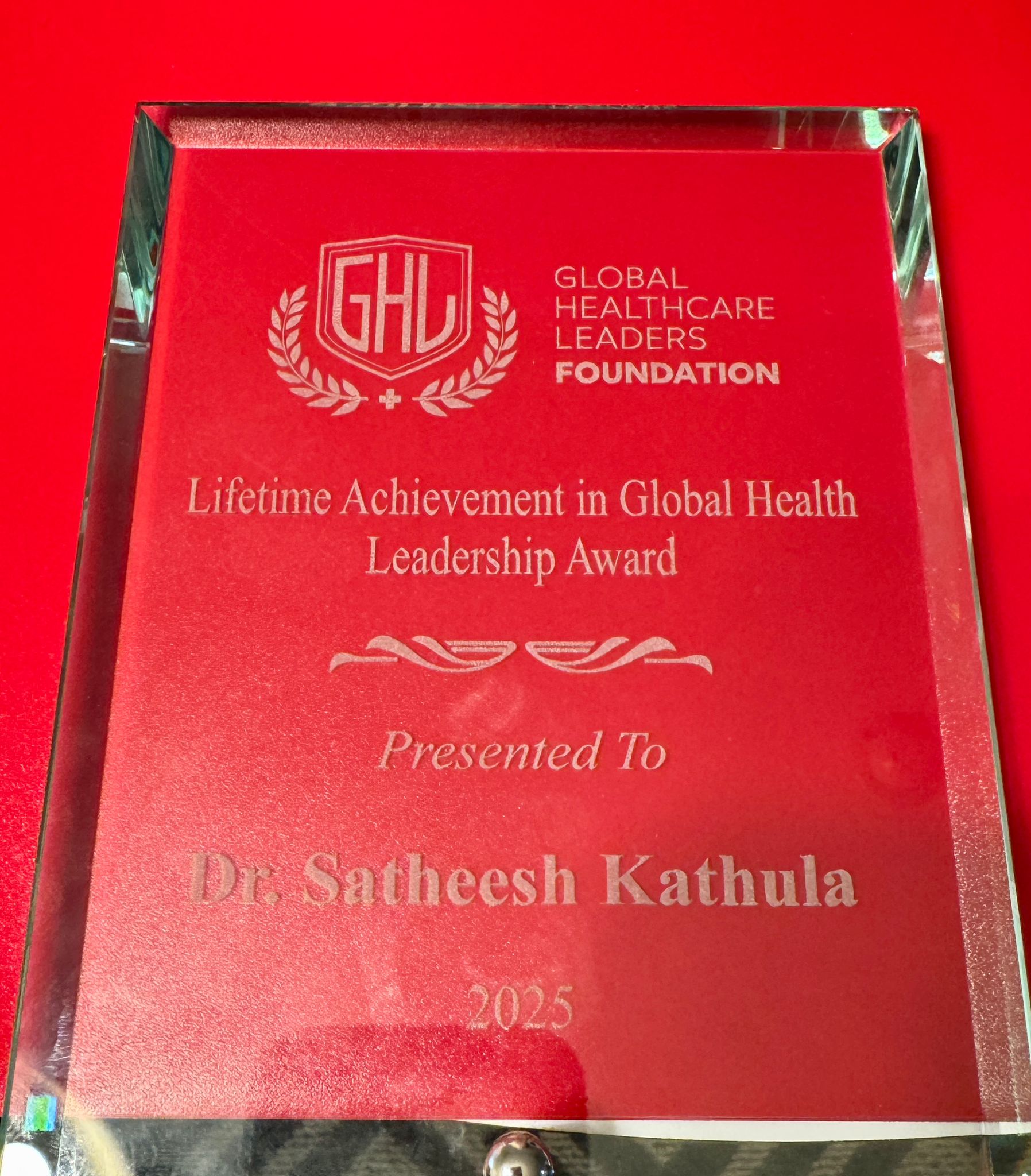 Dr Kathula’s love for his motherland has manifested in him setting up humanitarian and medical projects in India. The most important of them is establishing a state-of-the-art pharmacy college in Warangal in Telangana, where he grew up. Named the Pathfinder Institute of Pharmacy and Educational Research (PIPER), the non-profit with Dr Kathula as the Chairman provides quality education and has already graduated over 1,000 students who are now working in different parts of India and abroad. He conducted several medical camps close to his native place and donated a defibrillator, water purification plant, and library to his native place.
Dr Kathula’s love for his motherland has manifested in him setting up humanitarian and medical projects in India. The most important of them is establishing a state-of-the-art pharmacy college in Warangal in Telangana, where he grew up. Named the Pathfinder Institute of Pharmacy and Educational Research (PIPER), the non-profit with Dr Kathula as the Chairman provides quality education and has already graduated over 1,000 students who are now working in different parts of India and abroad. He conducted several medical camps close to his native place and donated a defibrillator, water purification plant, and library to his native place.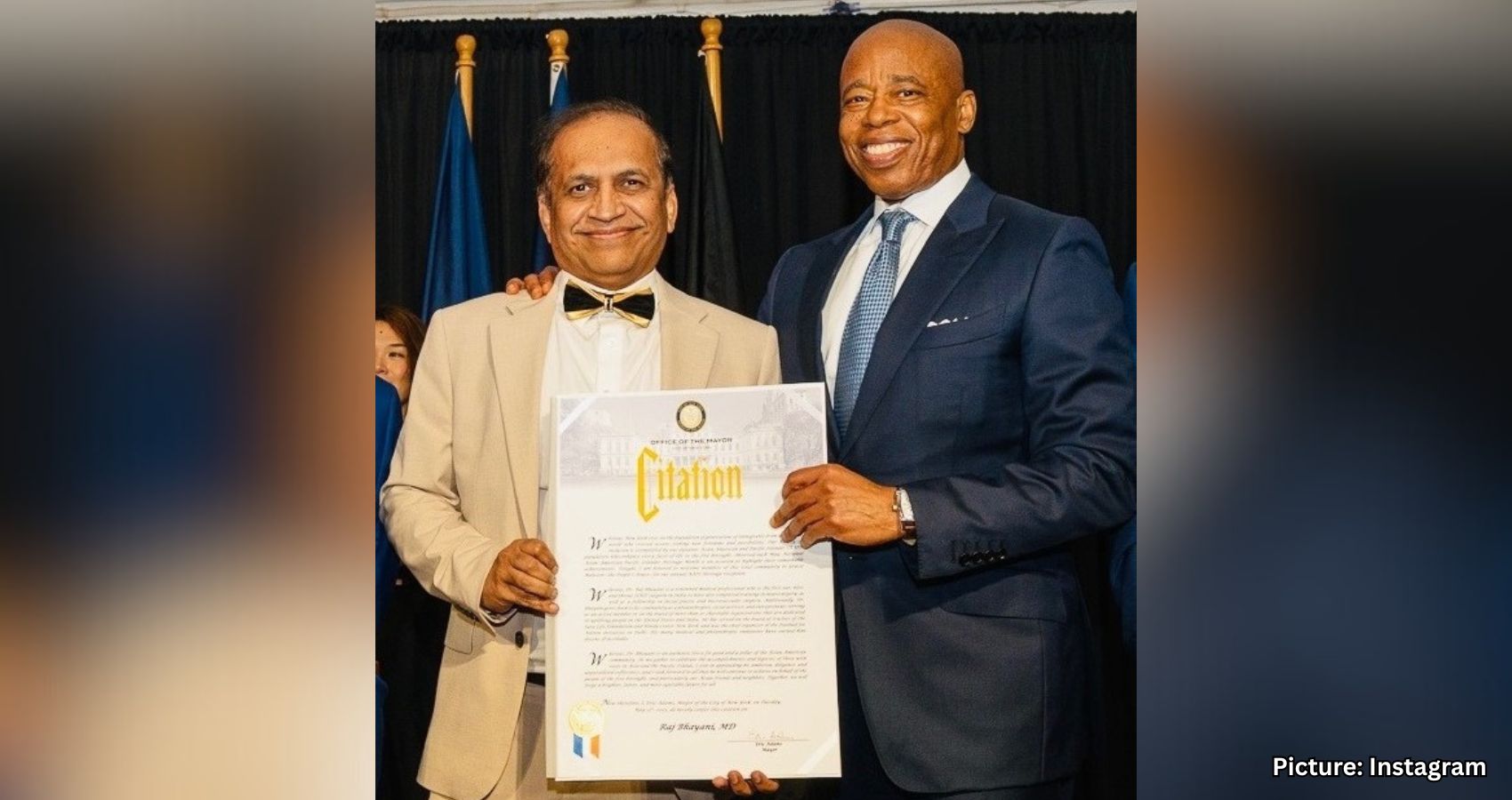

 Special guests included AAPI President-Dr. Satheesh Kathula, Mrs. Rajul Bhalala- The President of Chinmaya Mission Chicago, Mr. Sunil Shah-Founding President of FIA, Dr. Piyush Vyas-ISMS President, Padma Shri Dr. Bharat Barai, Dr. Arvind Goyal -Executive Medical director of Illinois State Health and Family Services. The evening was filled with inspiring speeches, cultural performances, and a nostalgic Bollywood musical journey, celebrated IAMACF’s mission to deliver free, high-quality healthcare.
Special guests included AAPI President-Dr. Satheesh Kathula, Mrs. Rajul Bhalala- The President of Chinmaya Mission Chicago, Mr. Sunil Shah-Founding President of FIA, Dr. Piyush Vyas-ISMS President, Padma Shri Dr. Bharat Barai, Dr. Arvind Goyal -Executive Medical director of Illinois State Health and Family Services. The evening was filled with inspiring speeches, cultural performances, and a nostalgic Bollywood musical journey, celebrated IAMACF’s mission to deliver free, high-quality healthcare. Committee and Board of Directors. He shared a transparent financial overview, Dr. Kumar invited nominations from general membership to elect Dr. Raj Aurora and Dr. Amarjit Singh as members-at-large, for the Nominating Committee.
Committee and Board of Directors. He shared a transparent financial overview, Dr. Kumar invited nominations from general membership to elect Dr. Raj Aurora and Dr. Amarjit Singh as members-at-large, for the Nominating Committee.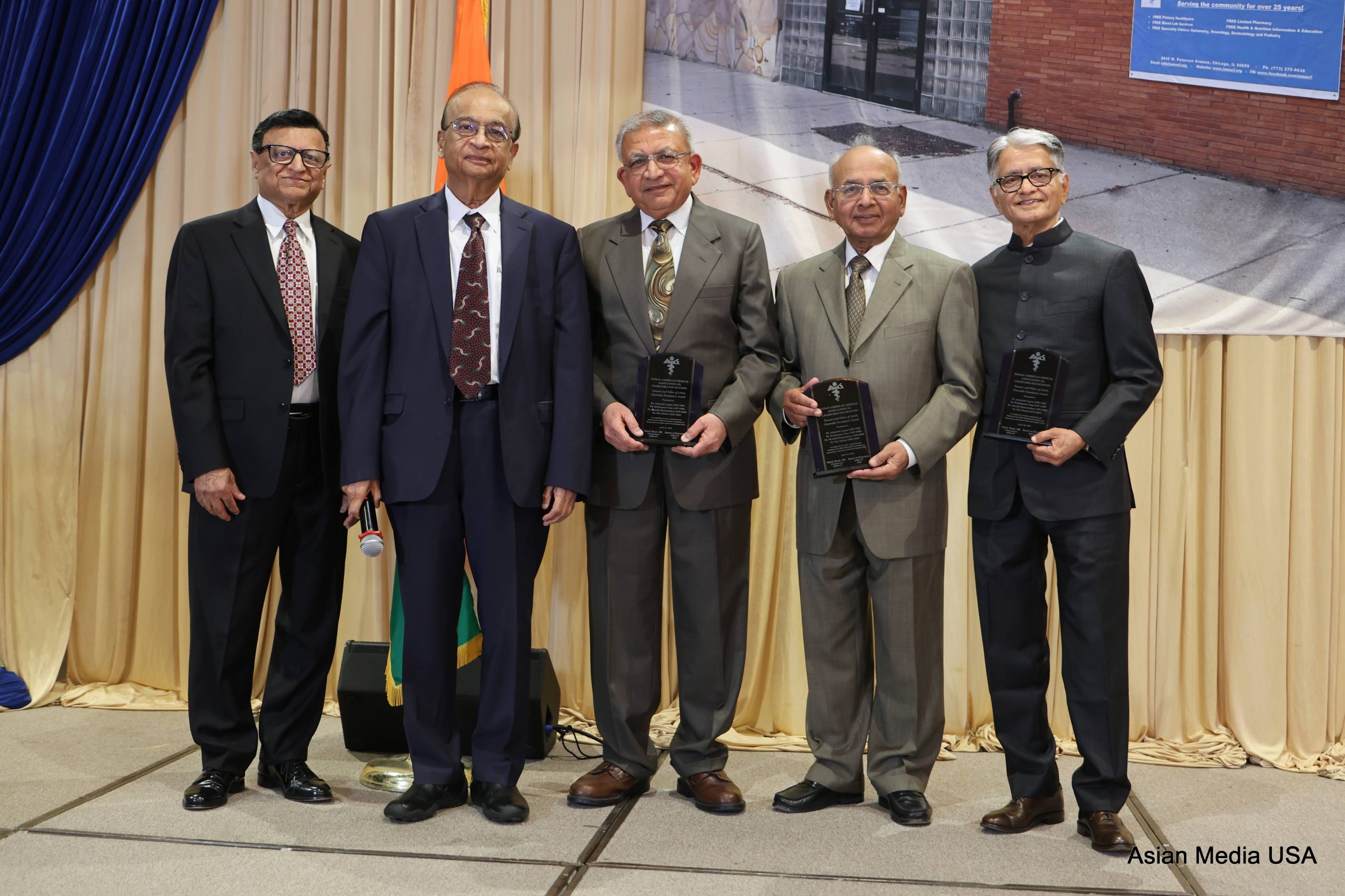 IAMACF recognized pioneers and pillars of IAMA Charitable Clinic , Dr. Ashutosh Gupta, Dr. Rohit Vasa, Dr. Marella Hanumadass, and Dr. Brij Malani for their vision, leadership and providing service as chairperson from 1994-2000. Dr. Suneela Harsoor received the Leadership Award for outstanding services and hard work as chairperson of IAMA-CF in 2023 earning the Gold seal award from NFCC. Dr. Sukanya Reddy received volunteer physician award and Dr. Dr. Praveen Mehta for his hardwork and selfless contribution as the Medical Director of the Clinic. The Numara Foundation, and Neelyx Labs, with Dr. Ram Saladi and Sham Saladi pledging free lab testing for 2025.
IAMACF recognized pioneers and pillars of IAMA Charitable Clinic , Dr. Ashutosh Gupta, Dr. Rohit Vasa, Dr. Marella Hanumadass, and Dr. Brij Malani for their vision, leadership and providing service as chairperson from 1994-2000. Dr. Suneela Harsoor received the Leadership Award for outstanding services and hard work as chairperson of IAMA-CF in 2023 earning the Gold seal award from NFCC. Dr. Sukanya Reddy received volunteer physician award and Dr. Dr. Praveen Mehta for his hardwork and selfless contribution as the Medical Director of the Clinic. The Numara Foundation, and Neelyx Labs, with Dr. Ram Saladi and Sham Saladi pledging free lab testing for 2025.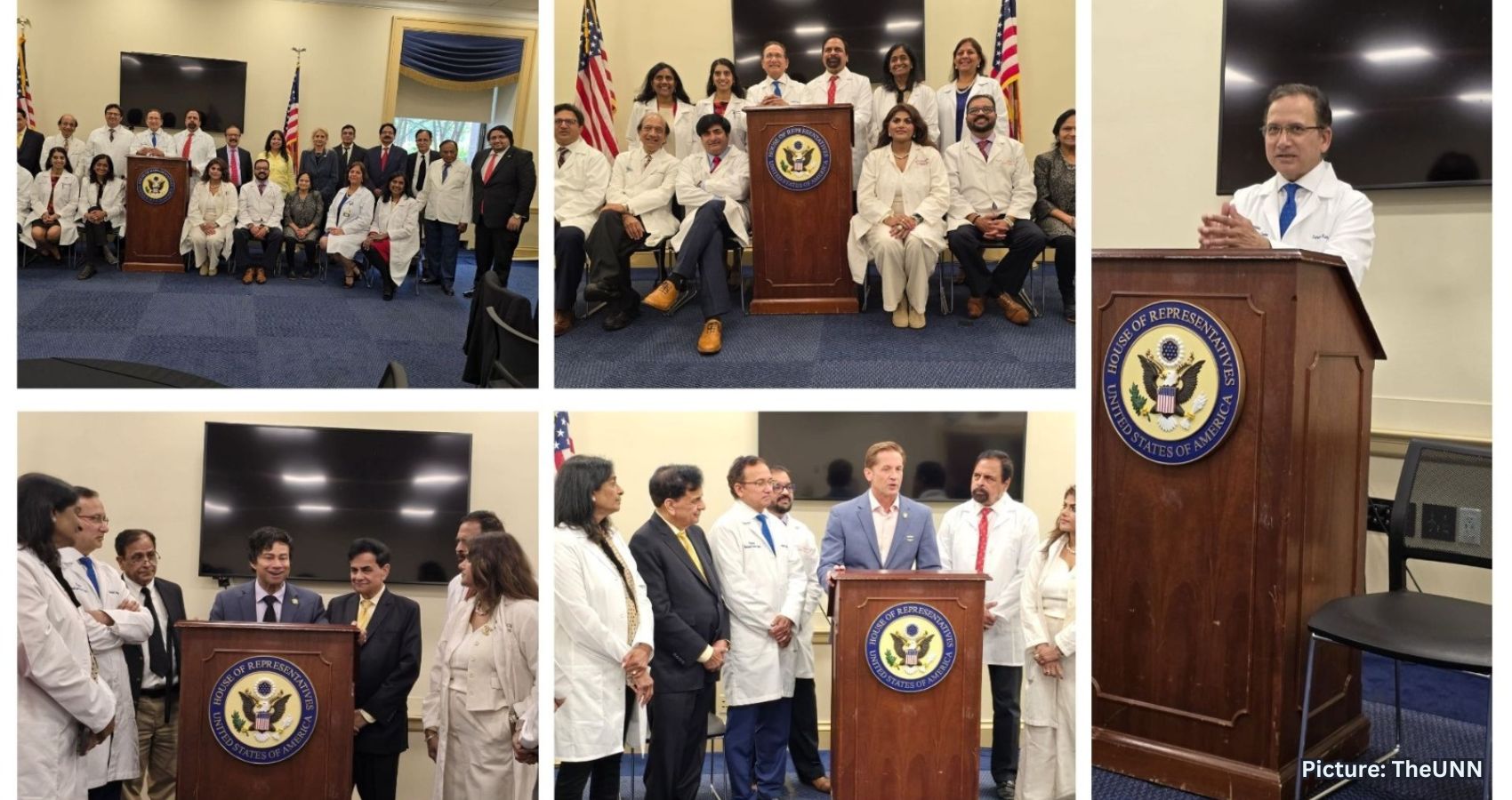
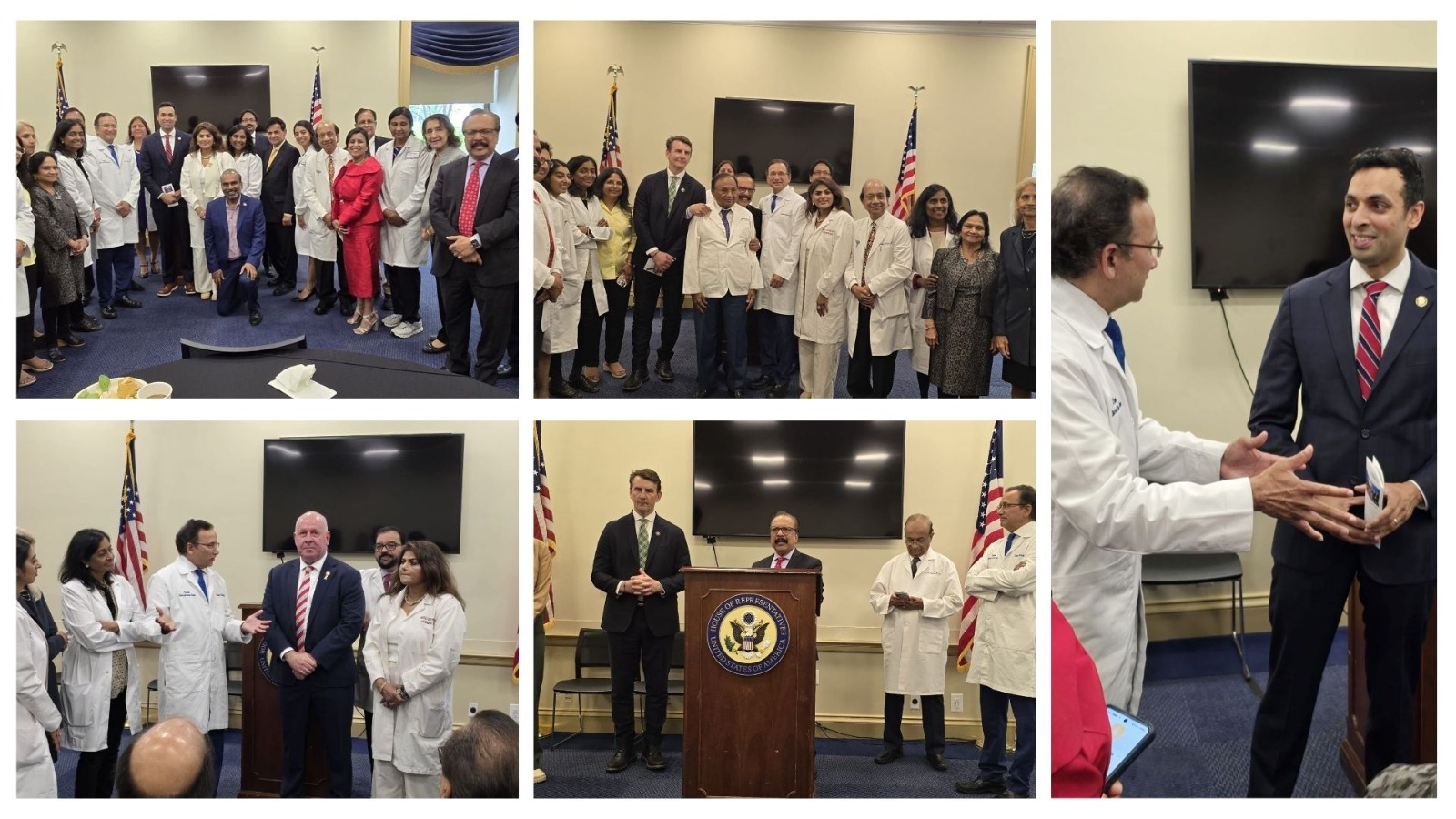 Dr. Kathula along with other AAPI leaders presented before the lawmakers, key issues that affect the delivery of healthcare in the issues in the US. “Fixing Medicare reimbursement cuts, reforming prior authorization processes, addressing scope of practice concerns, fast-tracking green cards for H-1B visa holders, securing equitable Telemedicine payments, and proposing amendments to the Stark Law” were some of the issues AAPI highlighted in their meetings with the lawmakers.
Dr. Kathula along with other AAPI leaders presented before the lawmakers, key issues that affect the delivery of healthcare in the issues in the US. “Fixing Medicare reimbursement cuts, reforming prior authorization processes, addressing scope of practice concerns, fast-tracking green cards for H-1B visa holders, securing equitable Telemedicine payments, and proposing amendments to the Stark Law” were some of the issues AAPI highlighted in their meetings with the lawmakers.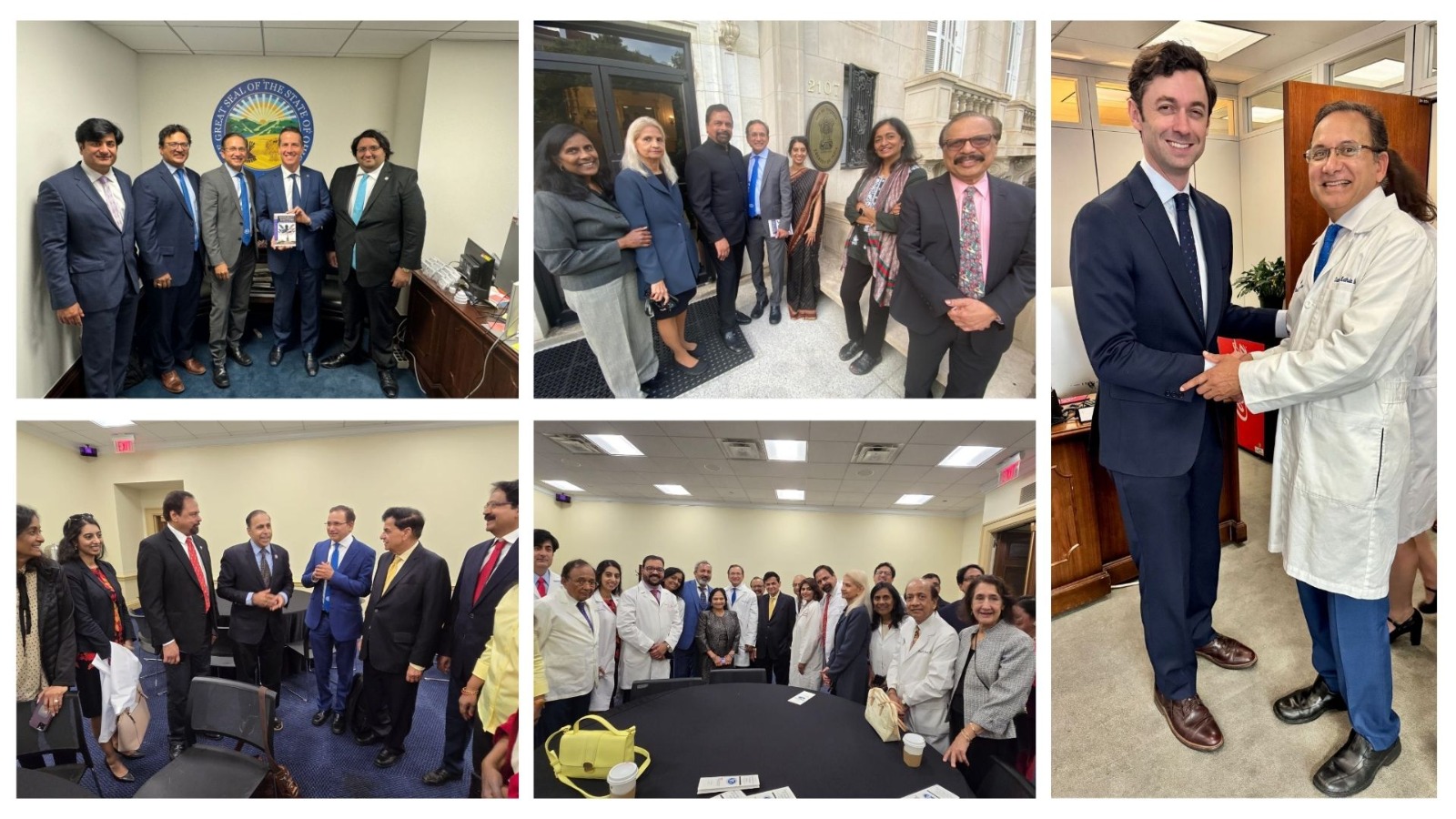 encouraged by the momentum. AAPI’s advocacy on these critical topics will remain ongoing,” Dr. Vidya Kora, Co-Chair of AAPI Legislative Affairs Committee.
encouraged by the momentum. AAPI’s advocacy on these critical topics will remain ongoing,” Dr. Vidya Kora, Co-Chair of AAPI Legislative Affairs Committee.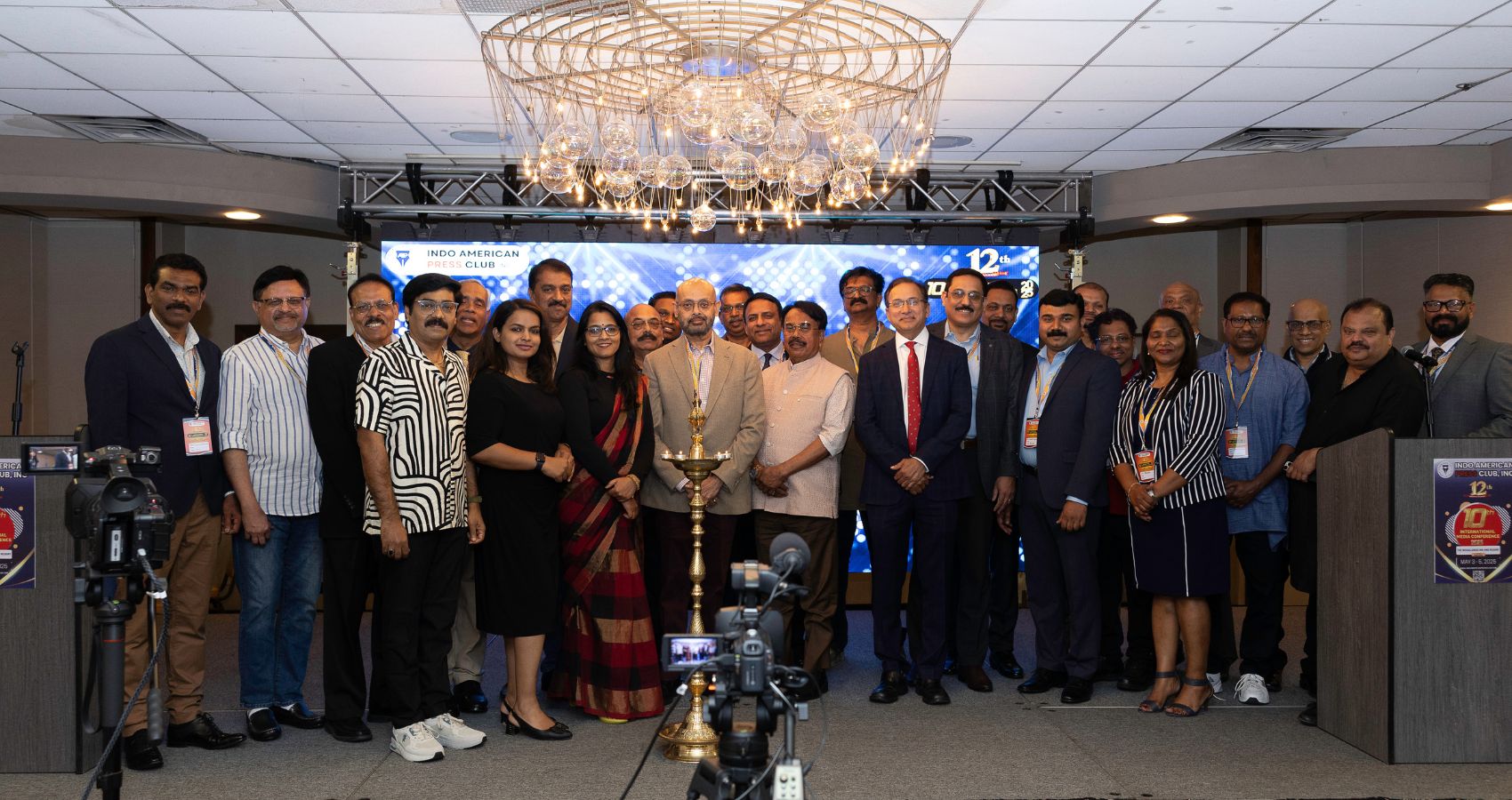
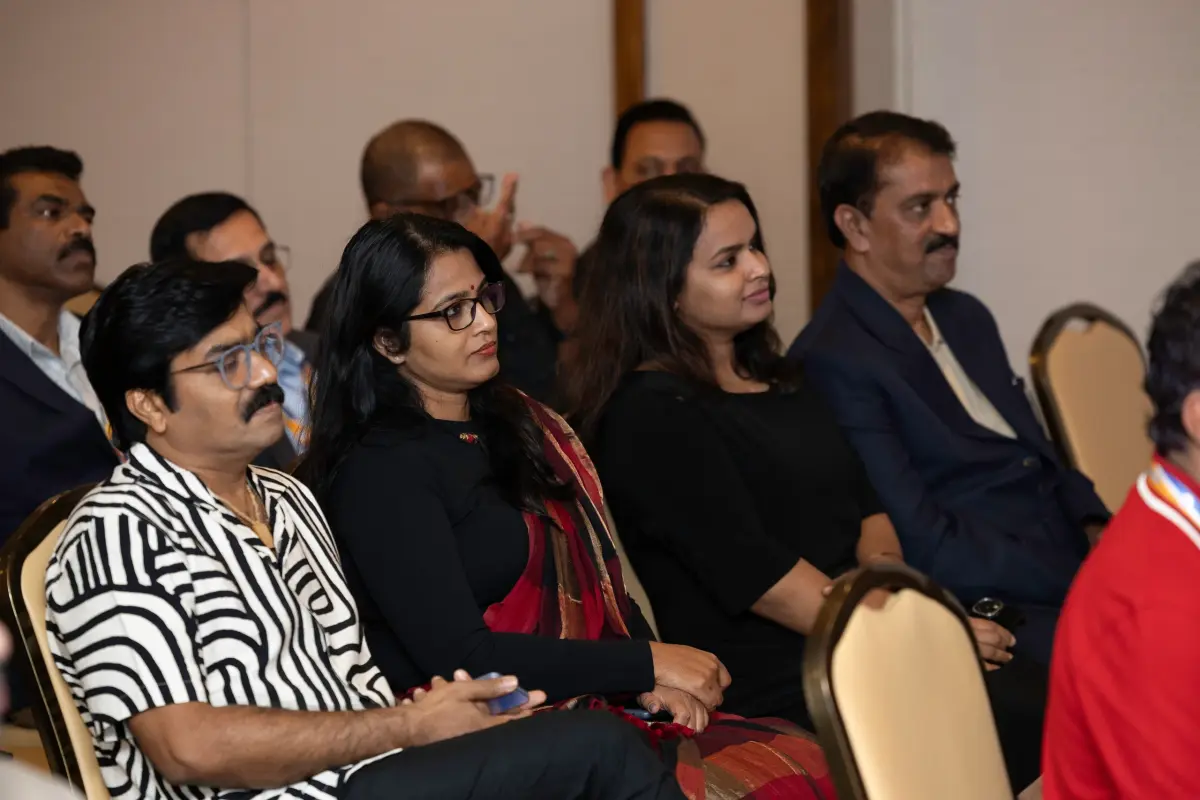 Participants at the Conference were part of insightful panel discussions, keynote speeches, and interactive sessions led by media experts, offering valuable perspectives on the evolving world of journalism. With digital transformation and press freedom remaining critical global issues, the conference facilitated discussions on key challenges and potential solutions shaping the future of journalism.
Participants at the Conference were part of insightful panel discussions, keynote speeches, and interactive sessions led by media experts, offering valuable perspectives on the evolving world of journalism. With digital transformation and press freedom remaining critical global issues, the conference facilitated discussions on key challenges and potential solutions shaping the future of journalism.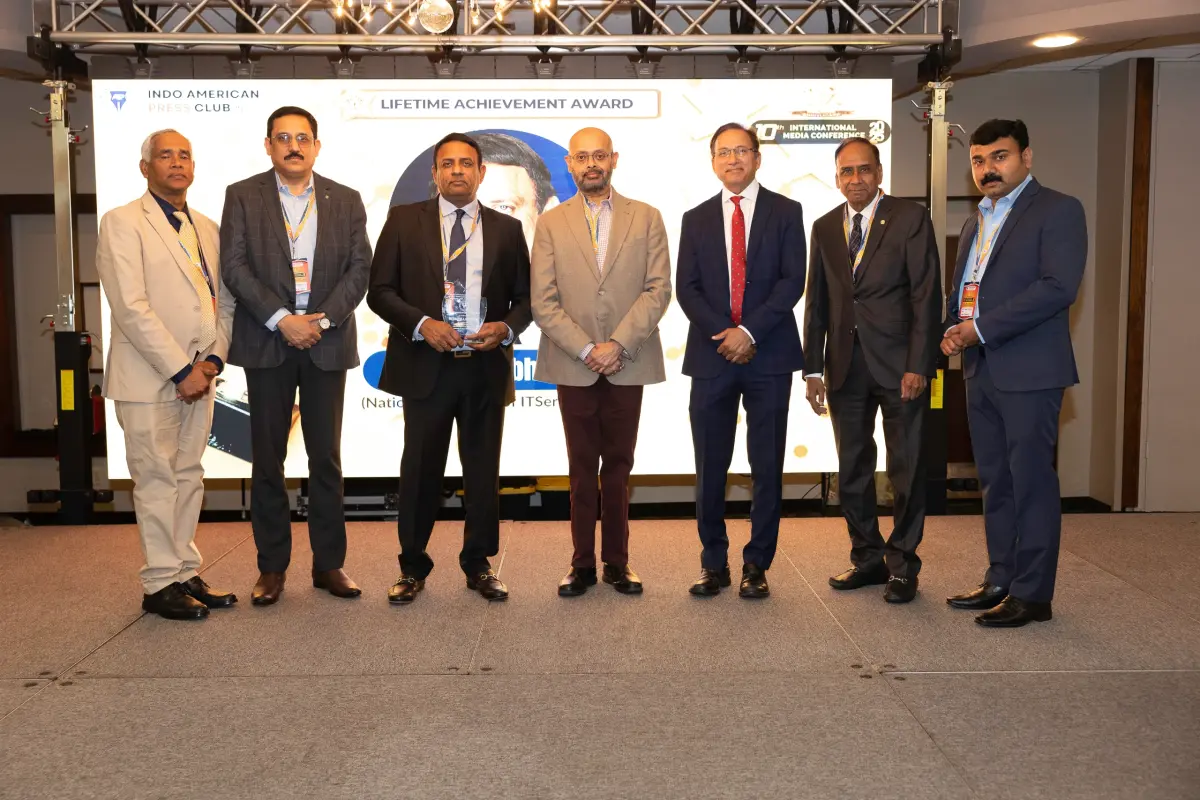 Dr. Vemuri S. Murthy is the co-investigator of a ground-breaking Cardiac Arrest Registry in India, “Warangal Area Cardiac Arrest Registry”. Dr. Murthy, a past President of the Chicago Medical Society and Indian American Medical Association (Illinois), has received several prestigious national and international awards and a Medal of US Congress as “Global Champion of Resuscitation” for his professional and community service contributions in the USA and India.
Dr. Vemuri S. Murthy is the co-investigator of a ground-breaking Cardiac Arrest Registry in India, “Warangal Area Cardiac Arrest Registry”. Dr. Murthy, a past President of the Chicago Medical Society and Indian American Medical Association (Illinois), has received several prestigious national and international awards and a Medal of US Congress as “Global Champion of Resuscitation” for his professional and community service contributions in the USA and India. The IAPC Souvenir Video edition was released after a video introduction by Dr. Mathew Joys, Chair of the Souvenir Committee and a short visual highlight of the souvenir on the screen, giving a glimpse of the beautifully curated content and memories it holds. In addition, the book “The Citizen Journalist,” written by Dr. Matthew Joys and providing guidelines for new media workers, was released by former Chairman Dr. Babu Stephen in the presence of eminent journalist Romi Mathew. The book is a compelling exploration of truth-telling in the modern world, blending insights from his rich experience in media, ethics, and civic engagement. Dr. Joys was then honored in absentia as one of the most prolific voices in the Indian American media community.
The IAPC Souvenir Video edition was released after a video introduction by Dr. Mathew Joys, Chair of the Souvenir Committee and a short visual highlight of the souvenir on the screen, giving a glimpse of the beautifully curated content and memories it holds. In addition, the book “The Citizen Journalist,” written by Dr. Matthew Joys and providing guidelines for new media workers, was released by former Chairman Dr. Babu Stephen in the presence of eminent journalist Romi Mathew. The book is a compelling exploration of truth-telling in the modern world, blending insights from his rich experience in media, ethics, and civic engagement. Dr. Joys was then honored in absentia as one of the most prolific voices in the Indian American media community.
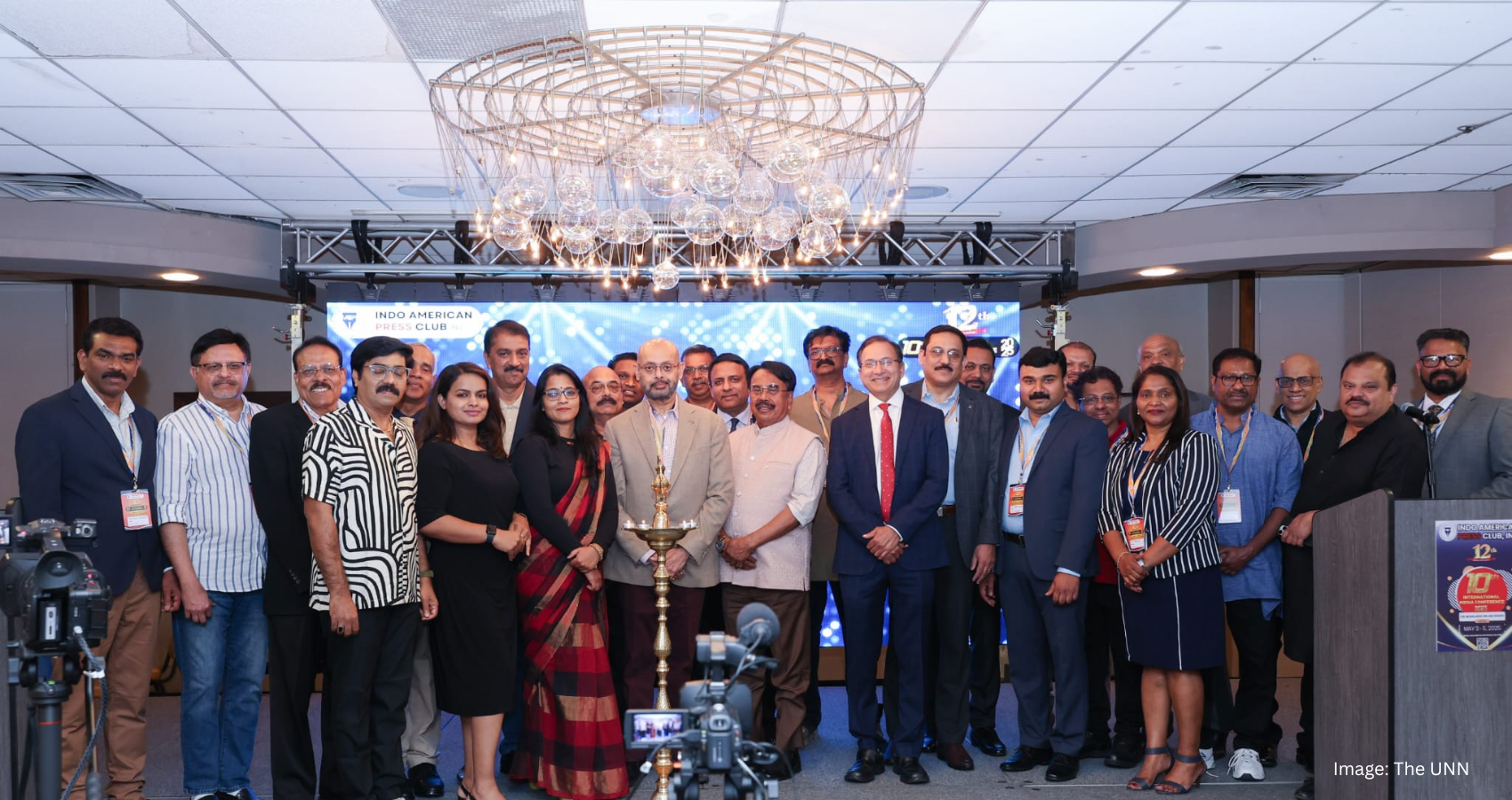
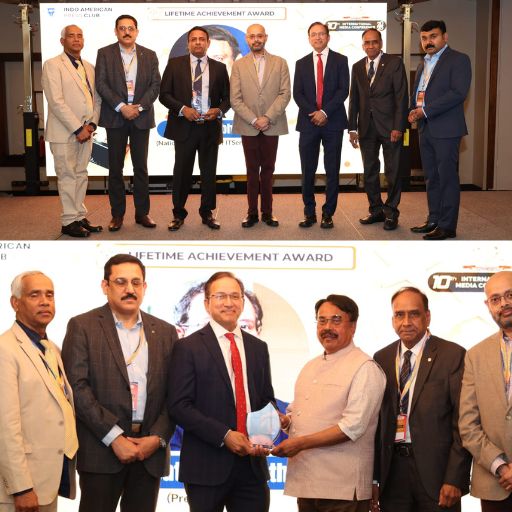
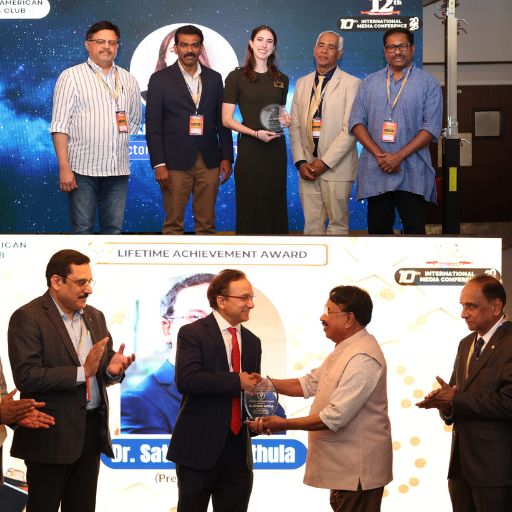

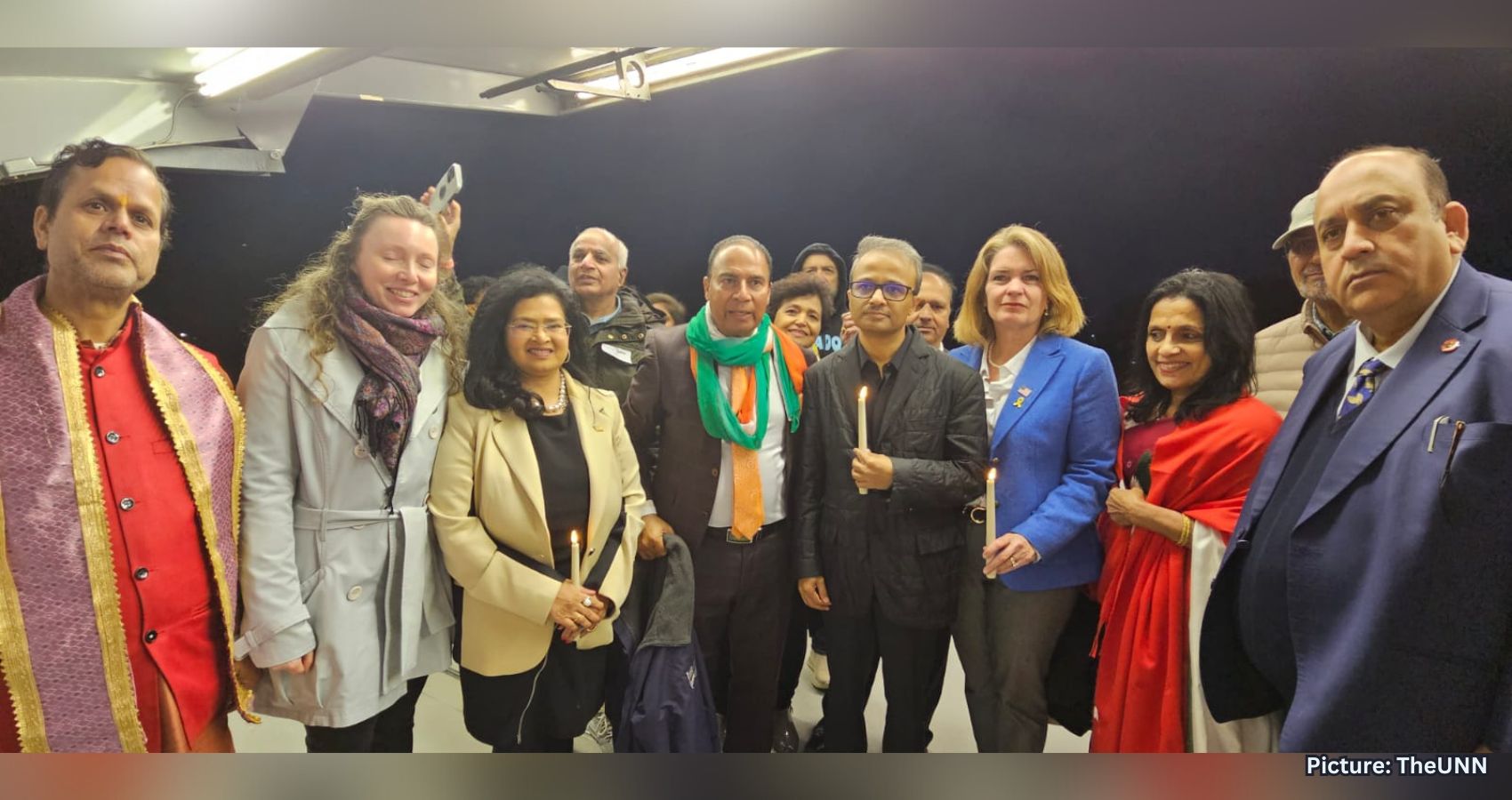
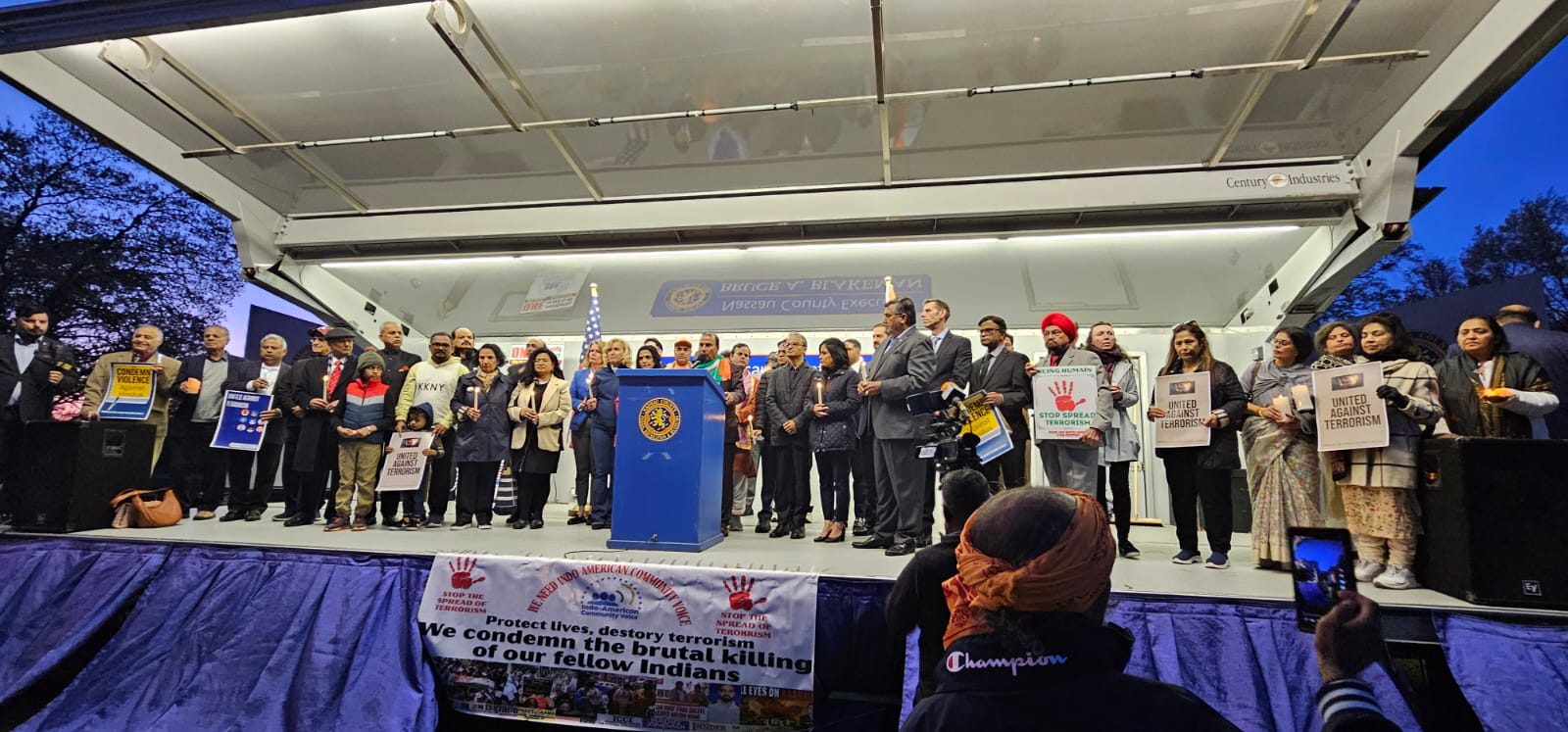 The event brought together community leaders, elected officials, and hundreds of attendees under one banner of unity and resilience. Among the key supporting organizations were: AAPI (Dr. Kishan Kumar), AIA National (Gobind Munjal), AIA NY (Beena Kothari), Arya Samaj of Long Island (Dr. Yashpal Arya & Veer Mukhi), American Malayalee Association (Thomas Joy and Hon. Kevin Thomas), FIPA (Dr. Raj Bhayani), APS (Gary Sikka & Mohinder Singh Taneja), ASAMAI Hindu Temple (Gobind Bathija), Bollywood Insider (Varinder Bhalla), FBIMA (Koshy Thomas & Dincil George), Gujarathi Samaj (Harshad Bhai Patel), HOLI (Urmila Shivaram), HSS (Jaya Patil), Humanity First (Omkar Singh), IAAC (Deepak Bansal), IANA (Vimal Goyal), IDP (Vimal Goyal & Deepak Bansal), IAF (Indu Jaiswal), IALI (Jasbir Singh), Indo American Lions Club (Anju Sharma), Indian Panorama (Prof. Inderjit Saluja), Kashmiri Overseas Association (Dr. Virender Hak & Mohan Wanchoo), KKNY (Raghu Ranganath), LIDC (Paul Bindra), LILC (Pinky Jaggi), Lotus in the Mud (Parveen Chopra), MAHIMA (Dr. Purushotaman Panicker), NYTTA (Vani S. Anugu), RANA (Neelam Modi), SAAWA (Dr. Anila Midha), SAAWO (Suhag Mehta), South Asian Times (Kamlesh Mehta), Soul of Hindutva (Gobind Singh Negi), TANA (Deepika Sammeta), TLCA (Sumant Ram), Tri-State Events (Atul Sharma), TTA (Jaya Prakash Enjapuri), The World Voice (Mukesh Modi), Vaishnav Temple (Anil Shah), VHI (Nayan Kisnadwala), WVV (Rakesh Bhargav), and YICG (Rathi Raja)—demonstrating a united front in the face of tragedy.
The event brought together community leaders, elected officials, and hundreds of attendees under one banner of unity and resilience. Among the key supporting organizations were: AAPI (Dr. Kishan Kumar), AIA National (Gobind Munjal), AIA NY (Beena Kothari), Arya Samaj of Long Island (Dr. Yashpal Arya & Veer Mukhi), American Malayalee Association (Thomas Joy and Hon. Kevin Thomas), FIPA (Dr. Raj Bhayani), APS (Gary Sikka & Mohinder Singh Taneja), ASAMAI Hindu Temple (Gobind Bathija), Bollywood Insider (Varinder Bhalla), FBIMA (Koshy Thomas & Dincil George), Gujarathi Samaj (Harshad Bhai Patel), HOLI (Urmila Shivaram), HSS (Jaya Patil), Humanity First (Omkar Singh), IAAC (Deepak Bansal), IANA (Vimal Goyal), IDP (Vimal Goyal & Deepak Bansal), IAF (Indu Jaiswal), IALI (Jasbir Singh), Indo American Lions Club (Anju Sharma), Indian Panorama (Prof. Inderjit Saluja), Kashmiri Overseas Association (Dr. Virender Hak & Mohan Wanchoo), KKNY (Raghu Ranganath), LIDC (Paul Bindra), LILC (Pinky Jaggi), Lotus in the Mud (Parveen Chopra), MAHIMA (Dr. Purushotaman Panicker), NYTTA (Vani S. Anugu), RANA (Neelam Modi), SAAWA (Dr. Anila Midha), SAAWO (Suhag Mehta), South Asian Times (Kamlesh Mehta), Soul of Hindutva (Gobind Singh Negi), TANA (Deepika Sammeta), TLCA (Sumant Ram), Tri-State Events (Atul Sharma), TTA (Jaya Prakash Enjapuri), The World Voice (Mukesh Modi), Vaishnav Temple (Anil Shah), VHI (Nayan Kisnadwala), WVV (Rakesh Bhargav), and YICG (Rathi Raja)—demonstrating a united front in the face of tragedy.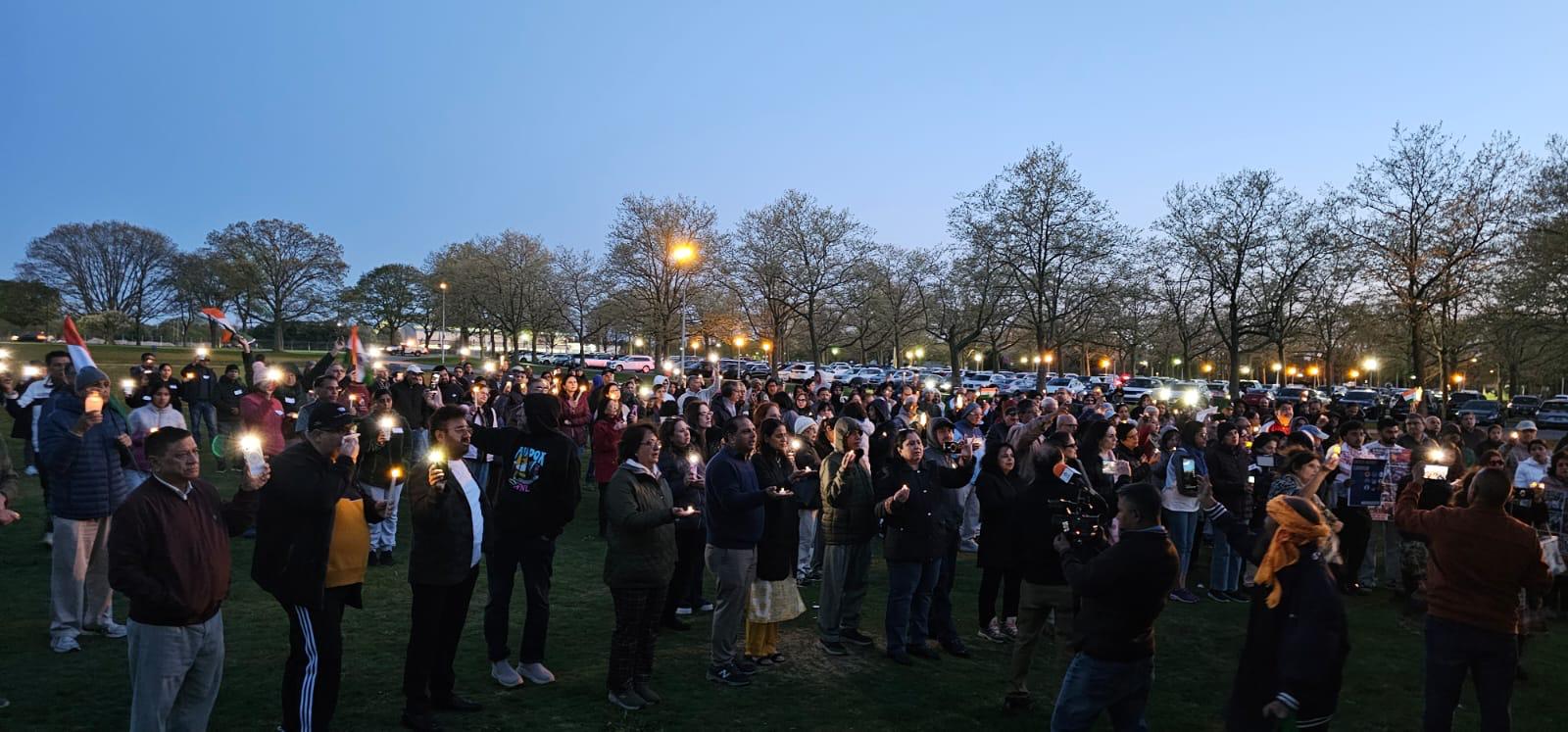 Nassau County Comptroller Elaine Phillips, North Hempstead Town Supervisor Jennifer DeSena, NY Senator Kevin Thomas, Town Clerk Ragini Srivastava, Councilman Edward Scott, and Wioleta D’Souza, Human Rights Commissioner – Nassau County, each sharing messages of sympathy, support, and solidarity. Several officials sent representatives, including County Executive Bruce Blakeman (via Elaine Phillips), Chuck Schumer, US. Senate Minority Leader for United Staes Senate (Taranbir Kaur), Oyster Bay Supervisor Joseph Saladino (Harry Malhotra), and Governor Kathy Hochul (Joey Ramirez).
Nassau County Comptroller Elaine Phillips, North Hempstead Town Supervisor Jennifer DeSena, NY Senator Kevin Thomas, Town Clerk Ragini Srivastava, Councilman Edward Scott, and Wioleta D’Souza, Human Rights Commissioner – Nassau County, each sharing messages of sympathy, support, and solidarity. Several officials sent representatives, including County Executive Bruce Blakeman (via Elaine Phillips), Chuck Schumer, US. Senate Minority Leader for United Staes Senate (Taranbir Kaur), Oyster Bay Supervisor Joseph Saladino (Harry Malhotra), and Governor Kathy Hochul (Joey Ramirez).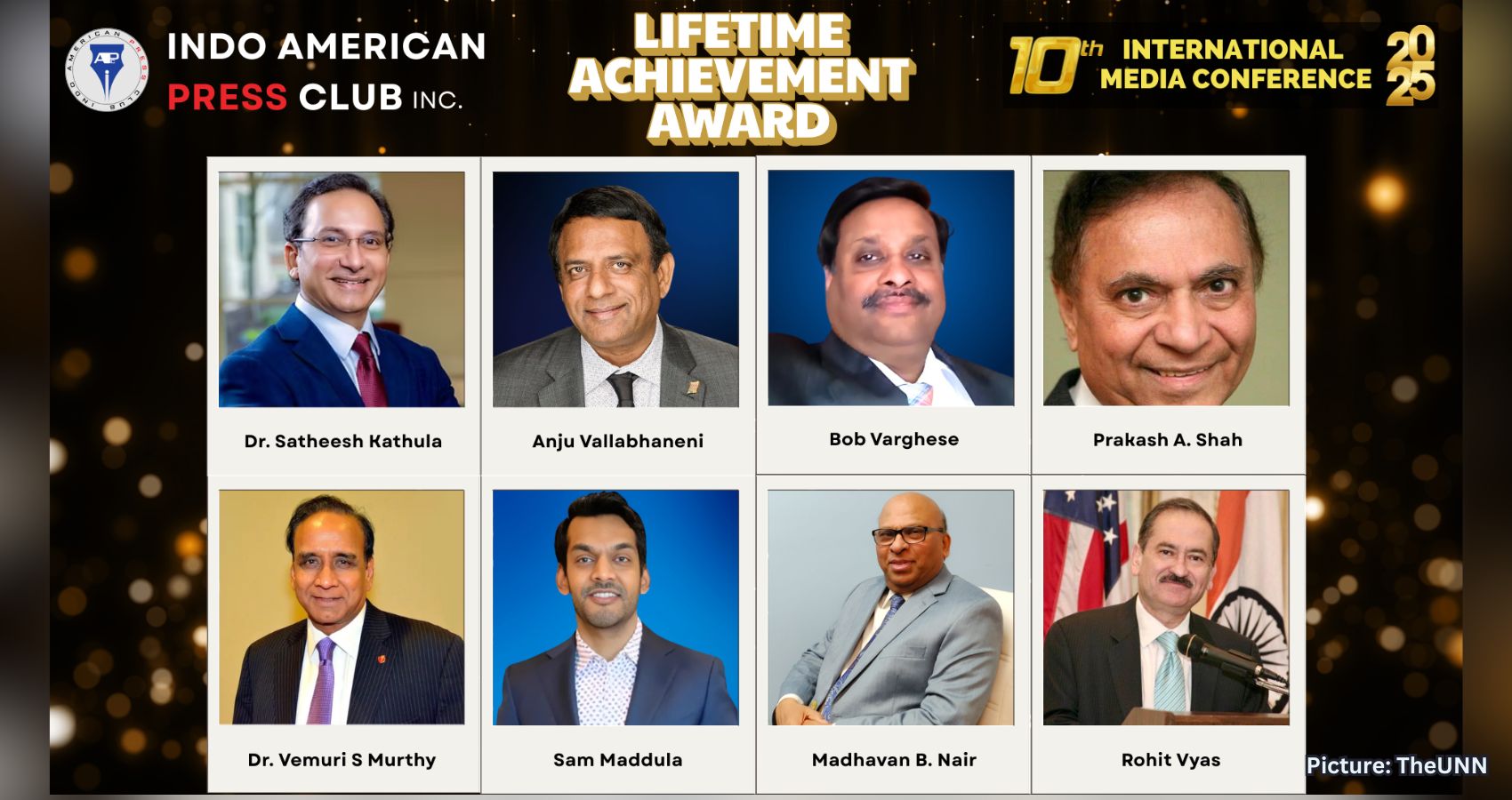

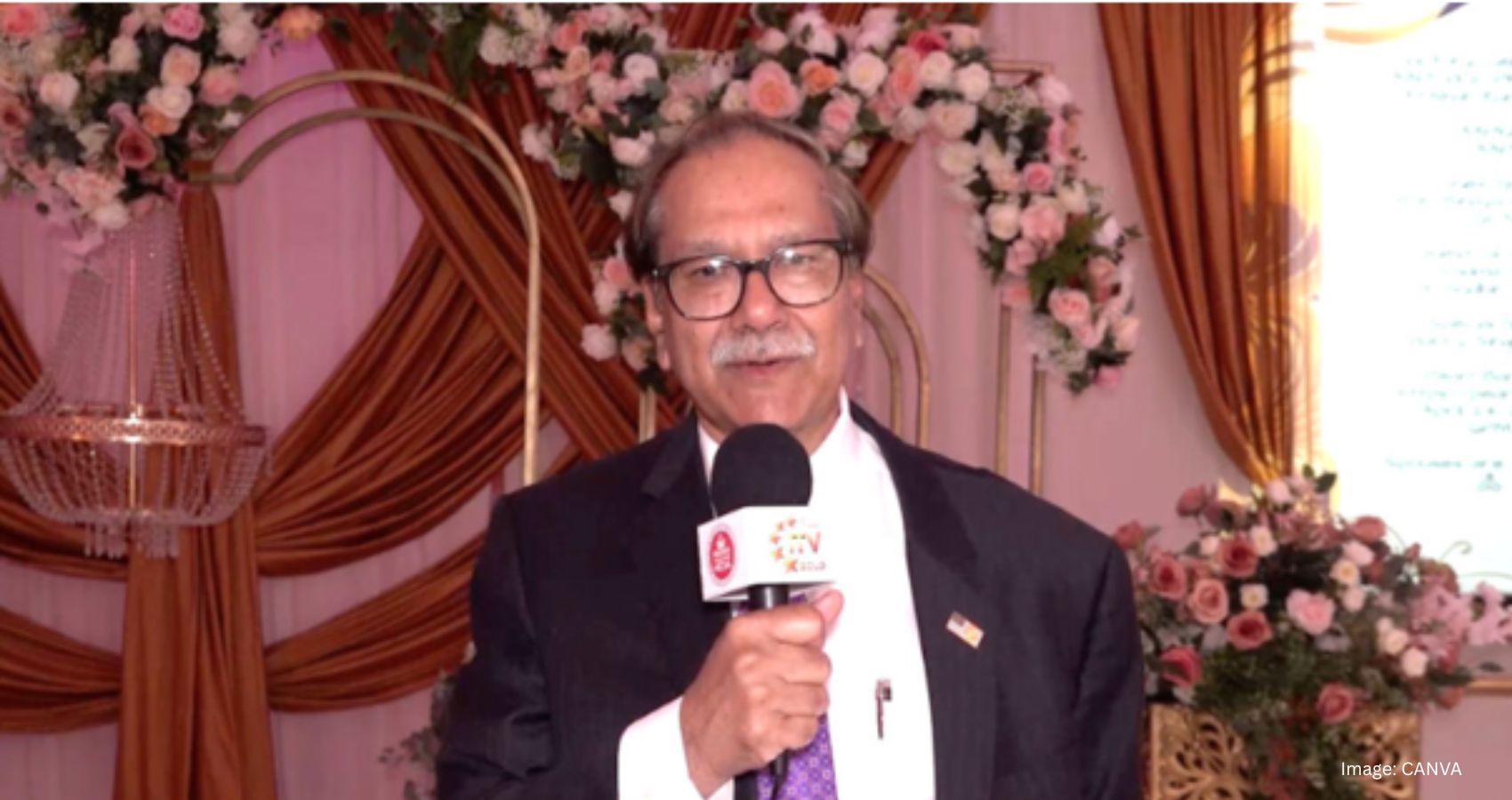
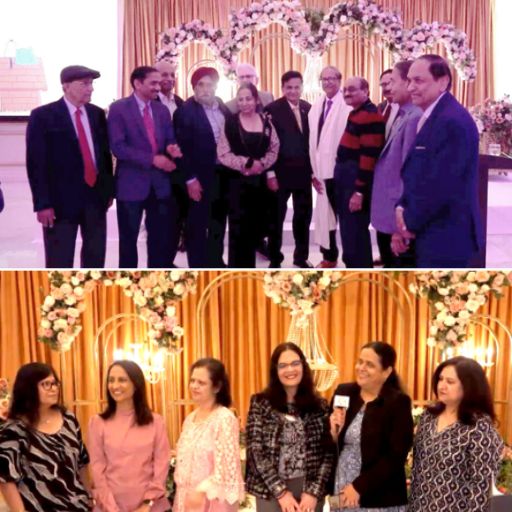
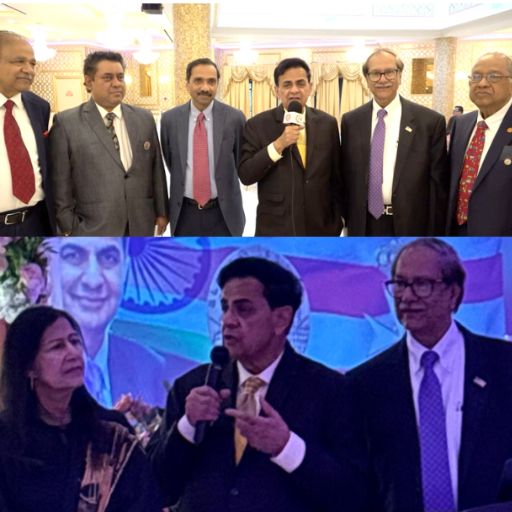

 “AAPI Legislative Day is a flagship annual event that is eagerly awaited to rekindle and renew our energy in bringing up the issues that we need to bring to the attention of national policy makers and leaders of the US Congress on Capitol Hill,” said Dr. Amit Chakrabarty, president-elect of AAPI. “It is a tradition of nearly three decades, which has brought many important transformations in National Healthcare policies that have helped Physicians of Indian Origin. Now, it is the need of the day to renew our friendship with new leadership under President Donald Trump and Vice President J D Vance and brief the Congressional leadership on issues that are important to us.”
“AAPI Legislative Day is a flagship annual event that is eagerly awaited to rekindle and renew our energy in bringing up the issues that we need to bring to the attention of national policy makers and leaders of the US Congress on Capitol Hill,” said Dr. Amit Chakrabarty, president-elect of AAPI. “It is a tradition of nearly three decades, which has brought many important transformations in National Healthcare policies that have helped Physicians of Indian Origin. Now, it is the need of the day to renew our friendship with new leadership under President Donald Trump and Vice President J D Vance and brief the Congressional leadership on issues that are important to us.”





 Inspired by the AAPI New Jersey Chapter, the AAPI “Share a Blanket” Project was launched in 2019 with the objective of sharing warmth during the winter months with those in need. Since its inception, this initiative has become a cherished tradition, and we are proud to see that other local chapters have embraced similar efforts in their communities,” added Dr. Kathula.
Inspired by the AAPI New Jersey Chapter, the AAPI “Share a Blanket” Project was launched in 2019 with the objective of sharing warmth during the winter months with those in need. Since its inception, this initiative has become a cherished tradition, and we are proud to see that other local chapters have embraced similar efforts in their communities,” added Dr. Kathula. year,” said Dr. Raghu Lolabhattu, Chair, Share-The-Warmth program. “The winter season is a time for us to care and share again! Over the last few years, AAPI, along with several local chapters and some of our members, made tremendous efforts and helped numerous needy people by donating blankets, and we are proud to say that this was very well received by the targeted communities.”
year,” said Dr. Raghu Lolabhattu, Chair, Share-The-Warmth program. “The winter season is a time for us to care and share again! Over the last few years, AAPI, along with several local chapters and some of our members, made tremendous efforts and helped numerous needy people by donating blankets, and we are proud to say that this was very well received by the targeted communities.” Dr. Raj Bhayani, Secretary of AAPI, urged “all AAPI members to carry on this program in the coming years as well and make AAPI and our local organizations proud. We request that every one of you make a generous donation for this fund, and your contribution would surely give a great comfort to a needy person.”
Dr. Raj Bhayani, Secretary of AAPI, urged “all AAPI members to carry on this program in the coming years as well and make AAPI and our local organizations proud. We request that every one of you make a generous donation for this fund, and your contribution would surely give a great comfort to a needy person.”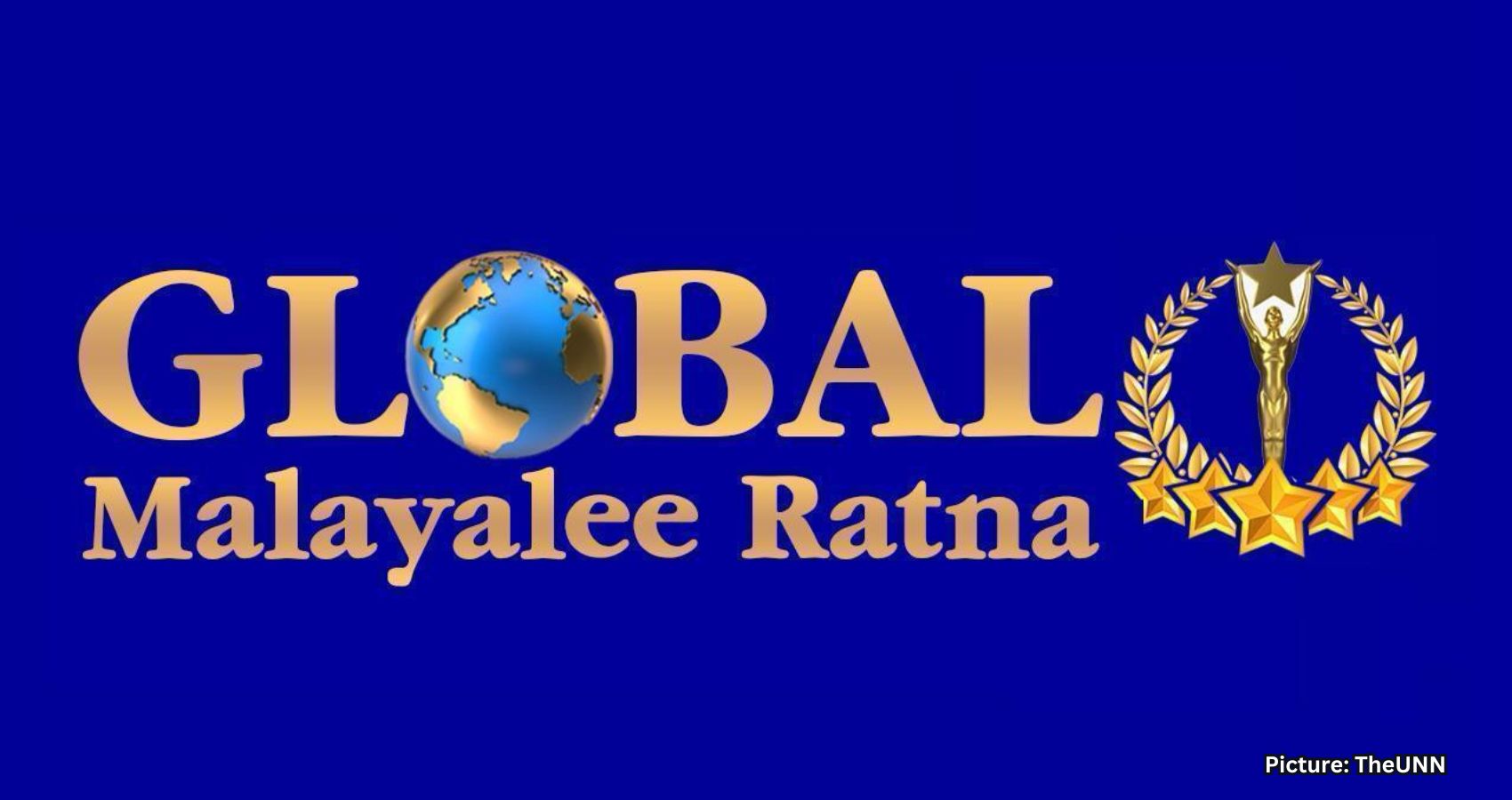
 With active participation, collaboration, and coordination by community and business leaders from across the 5 continents, the Global Malayalee Festival is shaping up to be an exciting celebration of the culture, traditions, and accomplishments of the Global Malayalee community at the heart of Kerala.
With active participation, collaboration, and coordination by community and business leaders from across the 5 continents, the Global Malayalee Festival is shaping up to be an exciting celebration of the culture, traditions, and accomplishments of the Global Malayalee community at the heart of Kerala. contribute to a brighter, more sustainable future for humanity.
contribute to a brighter, more sustainable future for humanity.















 Several distinguished political and community leaders, IAF Board of Trustees, Members, Volunteers, supporters and audience graced the occasion, applauding the distinguished accomplishments of women honorees. Several Board of Trustees and community leaders in presence included Dr Bhupendra Patel, Mukund Mehta (Indo-American Senior Citizens of NY), Jasbir (Jay) Singh, Anil and Sunil Jain (Vass Pipe), Dr. Nitin Doshi (Doshi Diagnostics), Beena Kothari (President-AIA), Dr N Kukar, Dr Jagdish Gupta, Flora Parekh (President – Gift of Life USA), Dr. Bhavani Srinivasan (AAPIQLI), Ravi Bhooplapur (Xaviers Medical College), Shashi Malik (SEVA Center for Humanity), Vimal Goyal & Deepak Bansal (IDPUSA), Rotary Club, Lions Club, Sandy Bhatia (Flushing Bank), Rizwan Quereshi (HAB Bank), Dr. Mamta Shaha, Kalpana Patel (UCI), Sudhir & Swati Vaishnav, Vijay Goswamy, Anju & Sanju Sharma (Registration), Dr. Prachi Dua, Beena Kothari and team produced Souvenir Journal, several past honorees and many other organization leaders.
Several distinguished political and community leaders, IAF Board of Trustees, Members, Volunteers, supporters and audience graced the occasion, applauding the distinguished accomplishments of women honorees. Several Board of Trustees and community leaders in presence included Dr Bhupendra Patel, Mukund Mehta (Indo-American Senior Citizens of NY), Jasbir (Jay) Singh, Anil and Sunil Jain (Vass Pipe), Dr. Nitin Doshi (Doshi Diagnostics), Beena Kothari (President-AIA), Dr N Kukar, Dr Jagdish Gupta, Flora Parekh (President – Gift of Life USA), Dr. Bhavani Srinivasan (AAPIQLI), Ravi Bhooplapur (Xaviers Medical College), Shashi Malik (SEVA Center for Humanity), Vimal Goyal & Deepak Bansal (IDPUSA), Rotary Club, Lions Club, Sandy Bhatia (Flushing Bank), Rizwan Quereshi (HAB Bank), Dr. Mamta Shaha, Kalpana Patel (UCI), Sudhir & Swati Vaishnav, Vijay Goswamy, Anju & Sanju Sharma (Registration), Dr. Prachi Dua, Beena Kothari and team produced Souvenir Journal, several past honorees and many other organization leaders.

 Indo-American Press Club (IAPC) is a fast-growing syndicate of print, visual, online, and electronic media journalists and other media-related professionals of Indian origin working in the United States, Canada, and Europe. IAPC is committed to enhancing the working conditions of our journalists, exchanging ideas, and offering educational and training opportunities to our members, aspiring young journalists, and media professionals around the globe; and also by honoring media people for their excellence, and for bringing positive changes through their dedicated service among the community. Today IAPC envisages its vision through collective efforts and advocacy activities through its 15 Chapters across the US and Canada, in the larger public sphere. Visit
Indo-American Press Club (IAPC) is a fast-growing syndicate of print, visual, online, and electronic media journalists and other media-related professionals of Indian origin working in the United States, Canada, and Europe. IAPC is committed to enhancing the working conditions of our journalists, exchanging ideas, and offering educational and training opportunities to our members, aspiring young journalists, and media professionals around the globe; and also by honoring media people for their excellence, and for bringing positive changes through their dedicated service among the community. Today IAPC envisages its vision through collective efforts and advocacy activities through its 15 Chapters across the US and Canada, in the larger public sphere. Visit 









 Organized by a team of young Medical Students and Residents of Indian origin, the Medical Scholars Summit was planned and organized by an MSRF Executive Board, led by Priya Uppal, President of MSRF; Priyanka Kolli, President-Elect; Sohi Mistry, Vice President; Priyal Shah, Treasurer; and Drishti Patel, Secretary of MSRF.
Organized by a team of young Medical Students and Residents of Indian origin, the Medical Scholars Summit was planned and organized by an MSRF Executive Board, led by Priya Uppal, President of MSRF; Priyanka Kolli, President-Elect; Sohi Mistry, Vice President; Priyal Shah, Treasurer; and Drishti Patel, Secretary of MSRF. event, with highlights that included our residency and fellowship panel – where attendees had the opportunity to ask questions directly of these program directors from a variety of surgical and non-surgical specialties, our medical school admissions Q&A from the Dean of Warren Alpert Medical School of Brown University, and an MCAT advice lecture from a 520+ scorer.”
event, with highlights that included our residency and fellowship panel – where attendees had the opportunity to ask questions directly of these program directors from a variety of surgical and non-surgical specialties, our medical school admissions Q&A from the Dean of Warren Alpert Medical School of Brown University, and an MCAT advice lecture from a 520+ scorer.” “The 2-day-long Summit was packed with academic sessions that were interactive, with participants having an opportunity to actively engage in discussions and enhance their knowledge on a wide range of topics relevant to Medical Students and Residents, who seek guidance on ways to pursue their careers most effectively,” said Dr. Sunil Kaza, Chair of APPI BOT.
“The 2-day-long Summit was packed with academic sessions that were interactive, with participants having an opportunity to actively engage in discussions and enhance their knowledge on a wide range of topics relevant to Medical Students and Residents, who seek guidance on ways to pursue their careers most effectively,” said Dr. Sunil Kaza, Chair of APPI BOT. Modi offered insights on Financial Wellness. Samir Pancholy, MD led a session on Service Project Pursuing Graduate Medical Education. Global Medicine and India: Lessons, Opportunities, and Challenges for the Next Generation of Physicians was presented by Dr. Kumar Belani, MD.
Modi offered insights on Financial Wellness. Samir Pancholy, MD led a session on Service Project Pursuing Graduate Medical Education. Global Medicine and India: Lessons, Opportunities, and Challenges for the Next Generation of Physicians was presented by Dr. Kumar Belani, MD. Dr. Raj Bhayani, Secretary of AAPI pointed out that, “In addition to several programs in the United States and in India, AAPI has been in the forefront, advocating for the interests of the medical fraternity and organizing regular CME programs, health & wellness events, and financial workshops for its members and outreach, public health education, and advocacy activities for the community both locally and internationally.”
Dr. Raj Bhayani, Secretary of AAPI pointed out that, “In addition to several programs in the United States and in India, AAPI has been in the forefront, advocating for the interests of the medical fraternity and organizing regular CME programs, health & wellness events, and financial workshops for its members and outreach, public health education, and advocacy activities for the community both locally and internationally.”
 In this context, The American Association of Physicians of Indian Origin (AAPI), in collaboration with Heartfulness Meditation and the American Heart Association, embarked on a mission to educate and train its members and provide opportunities to promote self-care, improve physician wellness, and reduce burnout, with focus on lifestyle modifications in the treatment of chronic diseases, including cancer, at Kanha Shanti Vanam in Hyderabad, Telangana, India on
In this context, The American Association of Physicians of Indian Origin (AAPI), in collaboration with Heartfulness Meditation and the American Heart Association, embarked on a mission to educate and train its members and provide opportunities to promote self-care, improve physician wellness, and reduce burnout, with focus on lifestyle modifications in the treatment of chronic diseases, including cancer, at Kanha Shanti Vanam in Hyderabad, Telangana, India on 
 The MSRF & PreMed Medical Scholars Summit is led by an Executive Board comprising of Manan Pancholy, President; Rohan Chopra, Vice President; Prerak Shah, Secretary; Arjun Gangasani, Treasurer.
The MSRF & PreMed Medical Scholars Summit is led by an Executive Board comprising of Manan Pancholy, President; Rohan Chopra, Vice President; Prerak Shah, Secretary; Arjun Gangasani, Treasurer. Niraj Kothari, MD will present his insightful session on Pioneering Advanced Practices in Medicine, while Deepen Modi will offer insights on Financial Wellness. Samir Pancholy, MD will lead a session on Service Project Pursuing Graduate Medical Education. Global Medicine and India: Lessons, Opportunities, and Challenges for the Next Generation of Physicians will be presented by Dr. Kumar Belani, MD.
Niraj Kothari, MD will present his insightful session on Pioneering Advanced Practices in Medicine, while Deepen Modi will offer insights on Financial Wellness. Samir Pancholy, MD will lead a session on Service Project Pursuing Graduate Medical Education. Global Medicine and India: Lessons, Opportunities, and Challenges for the Next Generation of Physicians will be presented by Dr. Kumar Belani, MD. Dr. Raj Bhayani, Secretary of AAPI pointed out that, “In addition to several programs in the United States and in India, AAPI has been in the forefront, advocating for the interests of the medical fraternity and organizing regular CME programs, health & wellness events, and financial workshops for its members and outreach, public health education, and advocacy activities for the community both locally and internationally.”
Dr. Raj Bhayani, Secretary of AAPI pointed out that, “In addition to several programs in the United States and in India, AAPI has been in the forefront, advocating for the interests of the medical fraternity and organizing regular CME programs, health & wellness events, and financial workshops for its members and outreach, public health education, and advocacy activities for the community both locally and internationally.”
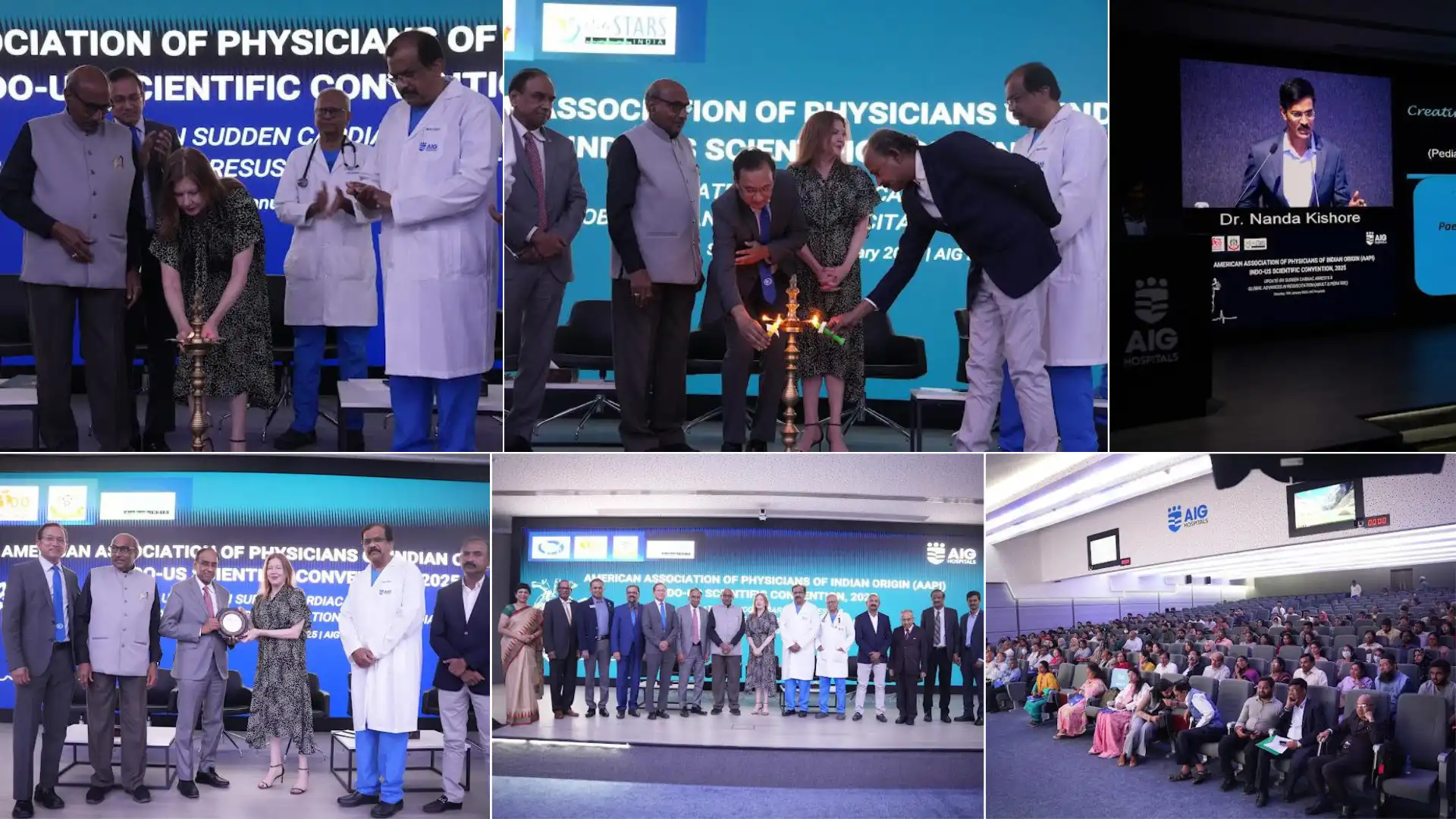 Pointing to studies, Dr. Kathula said that almost one in three in this group may die from heart disease before 65 years of age. In India, heart disease remains the number one cause of death. Common risk factors are smoking and a diet high in sugar, salt, refined grains, and fat. A large number of South Asians appear to have “insulin resistance”, a condition in which the body does not utilize insulin efficiently, resulting in Diabetes, which leads to a significant number of heart-related problems. Lack of adequate exercise, stress, and genetic predisposition are also contributing factors.
Pointing to studies, Dr. Kathula said that almost one in three in this group may die from heart disease before 65 years of age. In India, heart disease remains the number one cause of death. Common risk factors are smoking and a diet high in sugar, salt, refined grains, and fat. A large number of South Asians appear to have “insulin resistance”, a condition in which the body does not utilize insulin efficiently, resulting in Diabetes, which leads to a significant number of heart-related problems. Lack of adequate exercise, stress, and genetic predisposition are also contributing factors.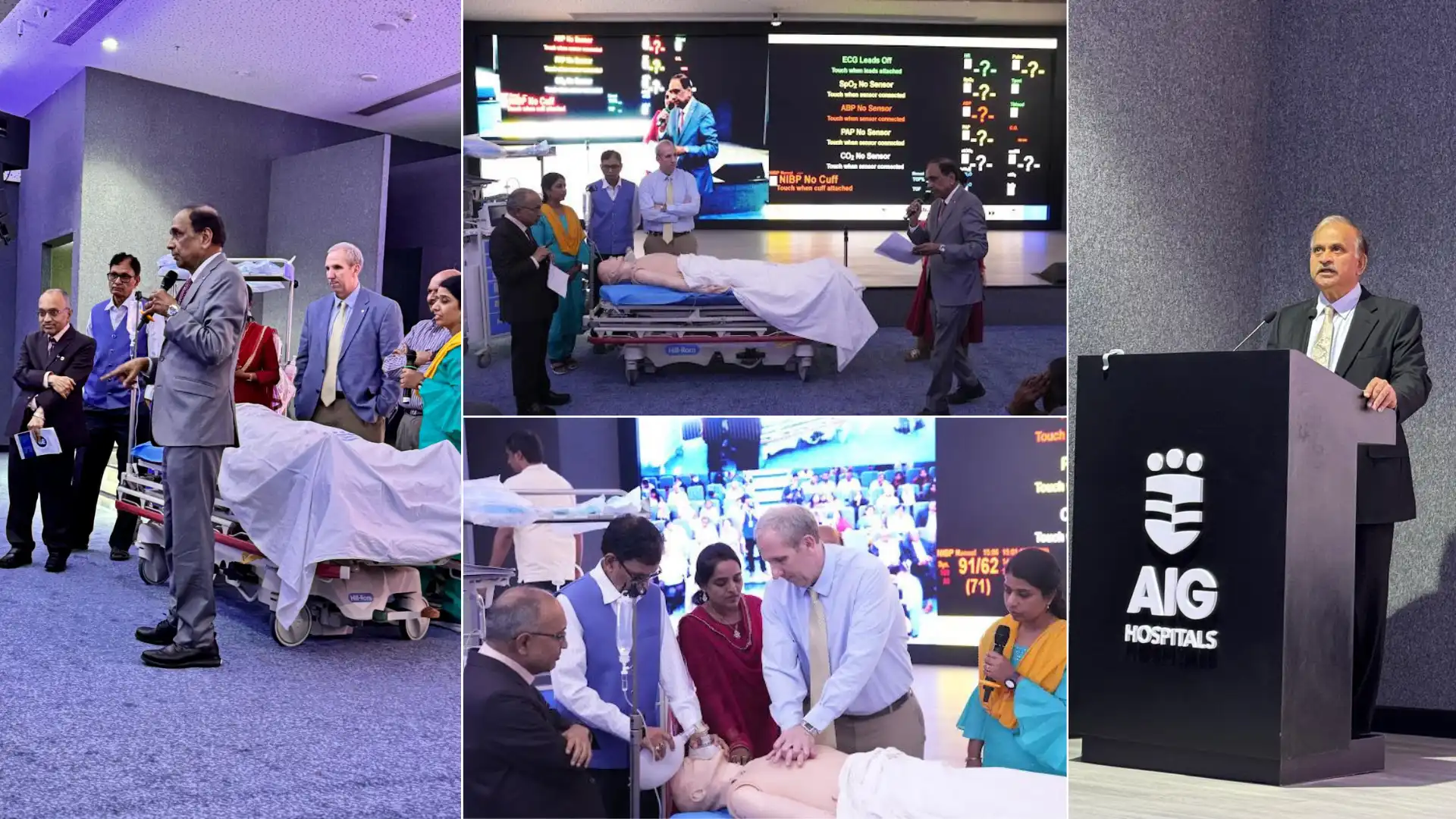 The Honorable Consul General of the U.S. in Hyderabad, Jennifer Larson, was the chief guest and spoke highly of the contributions of Indian physicians in the U.S. and their vital role in the American healthcare system. Dr. Nageshwar Reddy, chief of AIG, addressed the audience, praising AAPI’s efforts.
The Honorable Consul General of the U.S. in Hyderabad, Jennifer Larson, was the chief guest and spoke highly of the contributions of Indian physicians in the U.S. and their vital role in the American healthcare system. Dr. Nageshwar Reddy, chief of AIG, addressed the audience, praising AAPI’s efforts.




 Dr. Sampat Shivangi is a distinguished Indian American physician, philanthropist, and community leader with a profound impact on healthcare, education, and cultural preservation across India and the United States.
Dr. Sampat Shivangi is a distinguished Indian American physician, philanthropist, and community leader with a profound impact on healthcare, education, and cultural preservation across India and the United States. and spiritual hub for the Hindu community and beyond. Recognized for his exemplary service, a street in Mississippi bears his name, a testament to his contributions to healthcare and community welfare.
and spiritual hub for the Hindu community and beyond. Recognized for his exemplary service, a street in Mississippi bears his name, a testament to his contributions to healthcare and community welfare. It took him lots of reflection, planning, and working with multiple groups before this noble project conceived in his heart several years ago, has now come to fulfillment. “Believe me, I went to my hometown in Karnataka to set up a Cancer Hospital. I had even formed a committee and raised funds. Made several trips to India and struggled to do something good, but returned home empty-handed.”
It took him lots of reflection, planning, and working with multiple groups before this noble project conceived in his heart several years ago, has now come to fulfillment. “Believe me, I went to my hometown in Karnataka to set up a Cancer Hospital. I had even formed a committee and raised funds. Made several trips to India and struggled to do something good, but returned home empty-handed.” and tireless efforts that every individual deserves an opportunity to thrive, and is a beacon of hope, fostering resilience and building a more inclusive and harmonious world for all.
and tireless efforts that every individual deserves an opportunity to thrive, and is a beacon of hope, fostering resilience and building a more inclusive and harmonious world for all. At the heart of societal transformation, the Dr. Sampat Shivangi Foundation stands as a testament to unwavering commitment and compassion. The foundation is built upon the pillars of education, healthcare, mental well-being, tribal support, women’s empowerment, and sports development. With a profound understanding of the multifaceted needs of underprivileged communities, we have designed a range of initiatives that address these vital aspects of human well-being.
At the heart of societal transformation, the Dr. Sampat Shivangi Foundation stands as a testament to unwavering commitment and compassion. The foundation is built upon the pillars of education, healthcare, mental well-being, tribal support, women’s empowerment, and sports development. With a profound understanding of the multifaceted needs of underprivileged communities, we have designed a range of initiatives that address these vital aspects of human well-being. Civil Nuclear Agreement, collaborating with President George W. Bush to strengthen ties between the two nations. His commitment to India is further reflected in his coordination efforts with the White House to lift sanctions against India during President Bill Clinton’s administration.
Civil Nuclear Agreement, collaborating with President George W. Bush to strengthen ties between the two nations. His commitment to India is further reflected in his coordination efforts with the White House to lift sanctions against India during President Bill Clinton’s administration. Surveys have shown MD burnout of 38% in 2020 which increased to 61% in 2021 caused many physicians to leave practice or cut back on hours. The Covid pandemic certainly contributed to the peak of this phenomenon. some of the fundamental sources of burnout for physicians existed before the pandemic, and they persist after.
Surveys have shown MD burnout of 38% in 2020 which increased to 61% in 2021 caused many physicians to leave practice or cut back on hours. The Covid pandemic certainly contributed to the peak of this phenomenon. some of the fundamental sources of burnout for physicians existed before the pandemic, and they persist after. Stressing the importance of registering for the Bone Marro donation, Dr. Suni Kaza, Chair of AAPI BOT said, “You could be a patient’s only match-their only hope for a cure. When you register, you’re committing to donating to any patient in the world. But because a decision not to donate can be life-threatening to the patient, please think seriously about your commitment before joining the registry. And, be aware that there are absolutely no complications to the donor from this donation procedure.”
Stressing the importance of registering for the Bone Marro donation, Dr. Suni Kaza, Chair of AAPI BOT said, “You could be a patient’s only match-their only hope for a cure. When you register, you’re committing to donating to any patient in the world. But because a decision not to donate can be life-threatening to the patient, please think seriously about your commitment before joining the registry. And, be aware that there are absolutely no complications to the donor from this donation procedure.” Dr. Kathula was invited by the Hon. Consulate General of India in New York, Mr Binay Pradhan to participate and address the important meeting with distinguished Members of Parliament from India, as well as prominent leaders of the Indian-American community. This meeting offered a unique opportunity for meaningful exchanges on a wide range of topics that are critical to both India and the Indian diaspora in the United States.
Dr. Kathula was invited by the Hon. Consulate General of India in New York, Mr Binay Pradhan to participate and address the important meeting with distinguished Members of Parliament from India, as well as prominent leaders of the Indian-American community. This meeting offered a unique opportunity for meaningful exchanges on a wide range of topics that are critical to both India and the Indian diaspora in the United States. Diaspora members who were part of the meeting included Edison Mayor Sam Joshi , Dr. Samin K. Sharma, Dr. Thomas Abraham, Mr. Gaurav Verma, Prof. Indrajit Saluja, Dr. Avinash Gupta, Mr. Rakesh Kaul, Dr. Hari Shukla, and Mr. Jatinder Singh Bakshi, who shared their perspectives on different aspects of the Indian-American relationship and expressed a strong desire to give back to the motherland.
Diaspora members who were part of the meeting included Edison Mayor Sam Joshi , Dr. Samin K. Sharma, Dr. Thomas Abraham, Mr. Gaurav Verma, Prof. Indrajit Saluja, Dr. Avinash Gupta, Mr. Rakesh Kaul, Dr. Hari Shukla, and Mr. Jatinder Singh Bakshi, who shared their perspectives on different aspects of the Indian-American relationship and expressed a strong desire to give back to the motherland. In addition, he participated in an interview on BBC and with the Press Trust of India, where he addressed critical issues surrounding physician safety in India and the contributions of Indian American physicians.
In addition, he participated in an interview on BBC and with the Press Trust of India, where he addressed critical issues surrounding physician safety in India and the contributions of Indian American physicians. In collaboration with AAPI leadership., Dr. Kathula has been credited with successfully “conducting a fair election for the Vice President of AAPI, ensuring transparency and integrity in our electoral processes. This is crucial for maintaining trust within our organization,: said Dr. Kathula.
In collaboration with AAPI leadership., Dr. Kathula has been credited with successfully “conducting a fair election for the Vice President of AAPI, ensuring transparency and integrity in our electoral processes. This is crucial for maintaining trust within our organization,: said Dr. Kathula. Along with Dr. Kathula, Dr. Amit Chakrabarty serves as the President-Elect of AAPI, Dr. Meher Medavaram, Vice President, Dr. Raj Bhayani, Secretary, and Shirish Patel, Treasurer of AAPI for the year 2024-25. Dr. Sunil Kaza is the Chair of AAPI Board of Trustees. Representing the young physicians of Indian origin, Dr. Shefali Kothary serves as the YPS President and Dr. Oriya Uppal is the MSRF President for the year 2024-25.
Along with Dr. Kathula, Dr. Amit Chakrabarty serves as the President-Elect of AAPI, Dr. Meher Medavaram, Vice President, Dr. Raj Bhayani, Secretary, and Shirish Patel, Treasurer of AAPI for the year 2024-25. Dr. Sunil Kaza is the Chair of AAPI Board of Trustees. Representing the young physicians of Indian origin, Dr. Shefali Kothary serves as the YPS President and Dr. Oriya Uppal is the MSRF President for the year 2024-25.

 It’s in this context, the AAPI Global Healthcare Summit (GHS 2024) from October 19-20, 2024 in New Delhi, India, organized by the Association of American Physicians of Indian Origin (AAPI) in collaboration with and participation from some of the world’s most well-known physicians, and industry leaders becomes very critical and significant.
It’s in this context, the AAPI Global Healthcare Summit (GHS 2024) from October 19-20, 2024 in New Delhi, India, organized by the Association of American Physicians of Indian Origin (AAPI) in collaboration with and participation from some of the world’s most well-known physicians, and industry leaders becomes very critical and significant. “AAPI has been engaged in harnessing the power of Indian Diaspora to bring the most innovative, efficient, cost-effective healthcare and preventable solutions to India, Dr. Kathula said. “This international health care summit is a progressive transformation from the first Indo-US Healthcare Summit launched by AAPI USA in 2007. GHS 2024 will focus on Prevention Strategies for Cancer and Heart Attacks, Role of Lifestyle Changes, and Integration of Technology in Healthcare,” said Dr. Satheesh Kathula, President of AAPI.
“AAPI has been engaged in harnessing the power of Indian Diaspora to bring the most innovative, efficient, cost-effective healthcare and preventable solutions to India, Dr. Kathula said. “This international health care summit is a progressive transformation from the first Indo-US Healthcare Summit launched by AAPI USA in 2007. GHS 2024 will focus on Prevention Strategies for Cancer and Heart Attacks, Role of Lifestyle Changes, and Integration of Technology in Healthcare,” said Dr. Satheesh Kathula, President of AAPI. “We all know that AAPI has been playing a key role in the exchange of experience and knowledge in the field of medicine between India and the US today,” Dr. Nadda said. “Together, we can harness the power of innovation and lifestyle modification to safety, frequently, reduce the burden of cancer and heart diseases, not only in India but across the globe. I thank AAPI for organizing the Global Healthcare Summit in India, wishing the summit a grand success.”
“We all know that AAPI has been playing a key role in the exchange of experience and knowledge in the field of medicine between India and the US today,” Dr. Nadda said. “Together, we can harness the power of innovation and lifestyle modification to safety, frequently, reduce the burden of cancer and heart diseases, not only in India but across the globe. I thank AAPI for organizing the Global Healthcare Summit in India, wishing the summit a grand success.” This international healthcare summit is a progressive transformation from the first Indo-US Healthcare Summit launched by AAPI in 2007. “Providing a forum for innovative opportunities for learning, networking and giving back to our motherland that have now enabled us to plan ahead and prepare for an outstanding event that will be over 300 very prominent and talented physicians and surgeons from abroad, in addition to the hundreds of physicians from India, who are very passionate about serving their homeland, mother India,” Dr. Sunil Kaza, Chair of AAPI BOT said.
This international healthcare summit is a progressive transformation from the first Indo-US Healthcare Summit launched by AAPI in 2007. “Providing a forum for innovative opportunities for learning, networking and giving back to our motherland that have now enabled us to plan ahead and prepare for an outstanding event that will be over 300 very prominent and talented physicians and surgeons from abroad, in addition to the hundreds of physicians from India, who are very passionate about serving their homeland, mother India,” Dr. Sunil Kaza, Chair of AAPI BOT said. Also, the AAPI delegates had an opportunity to visit and pray at the world famous Swaminarayan Akshardham at New Delhi with an informative and inspiring journey through an ancient culture’s glorious art, values and contributions for the progress, happiness and harmony of all humans.
Also, the AAPI delegates had an opportunity to visit and pray at the world famous Swaminarayan Akshardham at New Delhi with an informative and inspiring journey through an ancient culture’s glorious art, values and contributions for the progress, happiness and harmony of all humans. “In our quest to fulfill the mission of AAPI, we are proud to share best practice and experiences from leading experts in the world and develop actionable plans for launching demonstration projects that enable access to affordable and quality healthcare for all people. Thank you for your participation and for being part of this movement for healthier world, let’s continue to work together, leveraging both the power of Prevention and the promise of technology to Save Lives,” Dr. Kathula added.
“In our quest to fulfill the mission of AAPI, we are proud to share best practice and experiences from leading experts in the world and develop actionable plans for launching demonstration projects that enable access to affordable and quality healthcare for all people. Thank you for your participation and for being part of this movement for healthier world, let’s continue to work together, leveraging both the power of Prevention and the promise of technology to Save Lives,” Dr. Kathula added. Several changes are being made for graduate and post graduate medical education in Indian medical education system to be at par and for easy mobilization around the world, with the goal of making India the medical education hub for the world.
Several changes are being made for graduate and post graduate medical education in Indian medical education system to be at par and for easy mobilization around the world, with the goal of making India the medical education hub for the world. led by Dr. Vinod Paul, Medical Director, NITI. Key attendees included Dr. Abhijath Sheth, President of National Board of Medical Exams (NBME), Chair of National Medical Council; Ms. V. Hekali Zhimomi, Additional Secretary, Ministry of Health and Family Welfare; Dr. B. Srinivas, Secretary, NMC; Dr. Subodh Kumar, Executive Director, NBEMS; Shri Rajib Kumar Sen, NITI Aayog Program Director.
led by Dr. Vinod Paul, Medical Director, NITI. Key attendees included Dr. Abhijath Sheth, President of National Board of Medical Exams (NBME), Chair of National Medical Council; Ms. V. Hekali Zhimomi, Additional Secretary, Ministry of Health and Family Welfare; Dr. B. Srinivas, Secretary, NMC; Dr. Subodh Kumar, Executive Director, NBEMS; Shri Rajib Kumar Sen, NITI Aayog Program Director. Dr. Kathula suggested that “Family medicine should not be a gatekeeper for referrals to specialists but rather they should be taking care most of the medical conditions including Pediatric and Obstetrics and Gynecology patients. In addition, he recommended creating incentives such as offering sub specialties like geriatrics, palliative care similar to the US, in order to attract more doctors towards family medicine. He said, “There should be clear distinction between general medicine and family medicine and change the name of general medicine to internal medicine to avoid confusion.”
Dr. Kathula suggested that “Family medicine should not be a gatekeeper for referrals to specialists but rather they should be taking care most of the medical conditions including Pediatric and Obstetrics and Gynecology patients. In addition, he recommended creating incentives such as offering sub specialties like geriatrics, palliative care similar to the US, in order to attract more doctors towards family medicine. He said, “There should be clear distinction between general medicine and family medicine and change the name of general medicine to internal medicine to avoid confusion.” participate in these efforts. By collaborating and leveraging our collective voices, we can effectively advocate for policies and initiatives that enhance healthcare access, improve education, and support the well-being of communities both in India and the U.S. Your involvement can make a significant impact,” Dr. Edara added.
participate in these efforts. By collaborating and leveraging our collective voices, we can effectively advocate for policies and initiatives that enhance healthcare access, improve education, and support the well-being of communities both in India and the U.S. Your involvement can make a significant impact,” Dr. Edara added. AAPI is an umbrella organization which has nearly 160 local chapters, specialty societies and alumni organizations. For over 41 years, Indian physicians have made significant contributions to health care in this country, not only practicing in inner cities, rural areas and peripheral communities but also at the top medical schools and other academic centers. Almost 10%-12% of medical students entering US schools are of Indian origin. Headquartered in Oak Brook, Illinois, AAPI represents the interests of over nearly 200,000 physicians, medical students and residents of Indian heritage in the United States.
AAPI is an umbrella organization which has nearly 160 local chapters, specialty societies and alumni organizations. For over 41 years, Indian physicians have made significant contributions to health care in this country, not only practicing in inner cities, rural areas and peripheral communities but also at the top medical schools and other academic centers. Almost 10%-12% of medical students entering US schools are of Indian origin. Headquartered in Oak Brook, Illinois, AAPI represents the interests of over nearly 200,000 physicians, medical students and residents of Indian heritage in the United States. “ACPM congratulates the NMA, NHMA, NCAPIP and AAPI on this well-deserved recognition. Their dedication to promoting equity in the practice of medicine contributes significantly to the overall health and well-being of our nation,” a statement issued by ACPM stated.
“ACPM congratulates the NMA, NHMA, NCAPIP and AAPI on this well-deserved recognition. Their dedication to promoting equity in the practice of medicine contributes significantly to the overall health and well-being of our nation,” a statement issued by ACPM stated. “Indian Americans are underrepresented in leadership roles disproportionate to the number of physicians we have, Dr. Kathula said during the panel discussion. “At AAPI, we all should prioritize encouraging and mentoring the physicians including young physicians to take leadership positions to make a positive impact.”
“Indian Americans are underrepresented in leadership roles disproportionate to the number of physicians we have, Dr. Kathula said during the panel discussion. “At AAPI, we all should prioritize encouraging and mentoring the physicians including young physicians to take leadership positions to make a positive impact.” Founded in 1982, the American Association of Physicians of Indian Origin represents a conglomeration of more than 80,000 practicing physicians in the United States. In addition, it also serves as a platform for more than 40,000 medical students, residents and fellows of Indian origin in this country.
Founded in 1982, the American Association of Physicians of Indian Origin represents a conglomeration of more than 80,000 practicing physicians in the United States. In addition, it also serves as a platform for more than 40,000 medical students, residents and fellows of Indian origin in this country. Dr. Kathula along with Dr. Hetal Gor, a member of the AAPI Board of Trustees, briefed the media on AAPI’s ongoing activities in the United States and India, and highlighted the upcoming Global Health Summit in New Delhi, scheduled for October 19th to 20th. This summit aims to bring together healthcare professionals, policymakers, and industry leaders to address the prevention of cancer and heart attacks in the Indian population with lifestyle modification and technology.
Dr. Kathula along with Dr. Hetal Gor, a member of the AAPI Board of Trustees, briefed the media on AAPI’s ongoing activities in the United States and India, and highlighted the upcoming Global Health Summit in New Delhi, scheduled for October 19th to 20th. This summit aims to bring together healthcare professionals, policymakers, and industry leaders to address the prevention of cancer and heart attacks in the Indian population with lifestyle modification and technology. Earlier during the day, AAPI organized AAPI Leadership Retreat at the Indian Consulate in New York City and was graced by the presence of Hon. Consul General Binay Pradhan. The panel included several distinguished figures from various fields, including Dr. Sanjeev Kaul, Chief of Trauma; Sudeep Kapur, a magistrate; Manee Kamboji, owner of a highly successful IT company; Natalie McKenzie, a health and fitness coach and podcaster; Jyoti Soni, a catering and wedding planner with over three decades of experience in the culinary industry; and Dr. Satheesh Kathula, President of AAPI. The session was expertly moderated by Dr. Hetal Gor.
Earlier during the day, AAPI organized AAPI Leadership Retreat at the Indian Consulate in New York City and was graced by the presence of Hon. Consul General Binay Pradhan. The panel included several distinguished figures from various fields, including Dr. Sanjeev Kaul, Chief of Trauma; Sudeep Kapur, a magistrate; Manee Kamboji, owner of a highly successful IT company; Natalie McKenzie, a health and fitness coach and podcaster; Jyoti Soni, a catering and wedding planner with over three decades of experience in the culinary industry; and Dr. Satheesh Kathula, President of AAPI. The session was expertly moderated by Dr. Hetal Gor. In this context, Dr. Suresh Reddy, a Neuro-Interventional Radiologist, a Trustee Of Oak Brook, and the 36thPresident of the American Association of Physicians of Indian Origin (AAPI), along with Oak Brook Village President Herman, Clerk Scarpiniti, and Park District Commissioner Suleiman conceived, planned, and organized the first-ever Celebration Of International Cultures at Oaks Amphitheater in Oak Brook, IL on September 21, 2024.
In this context, Dr. Suresh Reddy, a Neuro-Interventional Radiologist, a Trustee Of Oak Brook, and the 36thPresident of the American Association of Physicians of Indian Origin (AAPI), along with Oak Brook Village President Herman, Clerk Scarpiniti, and Park District Commissioner Suleiman conceived, planned, and organized the first-ever Celebration Of International Cultures at Oaks Amphitheater in Oak Brook, IL on September 21, 2024. Music from across the globe filled the atmosphere with electrifying beats, while vibrant dance performances captivated with their artistry, grace, and sheer energy. The stunning display of visual arts was a magnificent tribute to the creative brilliance of different cultures, each piece telling its own unique story. Getting your name written in Urdu was a wonderful experience.
Music from across the globe filled the atmosphere with electrifying beats, while vibrant dance performances captivated with their artistry, grace, and sheer energy. The stunning display of visual arts was a magnificent tribute to the creative brilliance of different cultures, each piece telling its own unique story. Getting your name written in Urdu was a wonderful experience.
 Chief among the many objectives of the summit was to provide a platform for Asian American Native Hawaiian and Pacific Islander (AANHPI) organizations and leaders to interact and collaborate on issues vital to their communities. The Global Organization of People of Indian Origin (GOPIO) is a Founder and Member of the Asian American Unity Coalition (AAUC) which takes up and campaigns on broad issues of Asian Americans. GOPIO is co-host of the Summit.
Chief among the many objectives of the summit was to provide a platform for Asian American Native Hawaiian and Pacific Islander (AANHPI) organizations and leaders to interact and collaborate on issues vital to their communities. The Global Organization of People of Indian Origin (GOPIO) is a Founder and Member of the Asian American Unity Coalition (AAUC) which takes up and campaigns on broad issues of Asian Americans. GOPIO is co-host of the Summit. executive powers and implement these reforms in Good faith immediately:
executive powers and implement these reforms in Good faith immediately: AAUC and GOPIO have requested and urged the Biden Administration to execute these administrative measures immediately and in good faith.
AAUC and GOPIO have requested and urged the Biden Administration to execute these administrative measures immediately and in good faith. on September 20th, the AAUC presented its resolution on the Alien Land Laws. Additionally, the AAUC will also highlight the power of the online AAPI Community Hub.
on September 20th, the AAUC presented its resolution on the Alien Land Laws. Additionally, the AAUC will also highlight the power of the online AAPI Community Hub.


 Dr. Kathula, who assumed charge last month as the President of AAPI, an over four decades old physician organization, while addressing the tens of thousands of Indian Americans who had come to participate in the world’s largest India Day Parade, said, “On behalf of the entire leadership team of AAPI, I wish you and your families a joyous and reflective Independence Day. Let us continue to honor our heritage by contributing to the betterment of society and the world.”
Dr. Kathula, who assumed charge last month as the President of AAPI, an over four decades old physician organization, while addressing the tens of thousands of Indian Americans who had come to participate in the world’s largest India Day Parade, said, “On behalf of the entire leadership team of AAPI, I wish you and your families a joyous and reflective Independence Day. Let us continue to honor our heritage by contributing to the betterment of society and the world.” A host of AAPI leaders, including Dr. Kathula, Dr. Chakrabarthy, Dr. Kaza, Dr. Sumul Rawal, Dr. Suresh Reddy, Dr. Meher Medavaram, Dr. Krishan Kumar, Dr. Raju Kattara, Dr. Krish Soundrajan, Dr. Amy Shah, Dr. Rakesh Dua, and Dr. Hetal Gor, along with several young Physicians and MSRF members had come to New York from different parts of the country to be part of the largest India Day Parade in the world.
A host of AAPI leaders, including Dr. Kathula, Dr. Chakrabarthy, Dr. Kaza, Dr. Sumul Rawal, Dr. Suresh Reddy, Dr. Meher Medavaram, Dr. Krishan Kumar, Dr. Raju Kattara, Dr. Krish Soundrajan, Dr. Amy Shah, Dr. Rakesh Dua, and Dr. Hetal Gor, along with several young Physicians and MSRF members had come to New York from different parts of the country to be part of the largest India Day Parade in the world. “We are extremely happy to be part of this great event,” said Dr. Amit Chakrabarty, the President-Elect, leading the parade in New York City. “On behalf of the over 120,000 physicians of Indian Origin in the United States, I want to convey our greetings to all the people of Indian origin, especially to over two million Indian Americans across the United States, who continue to make India proud and make India stand tall among peoples of the whole world. On this very special day of celebrating our freedom, we take special pride in saluting our beloved tricolor. Let us recall with pride the great sacrifice of our freedom fighters, whose undying love for India secured us our freedom,” he added.
“We are extremely happy to be part of this great event,” said Dr. Amit Chakrabarty, the President-Elect, leading the parade in New York City. “On behalf of the over 120,000 physicians of Indian Origin in the United States, I want to convey our greetings to all the people of Indian origin, especially to over two million Indian Americans across the United States, who continue to make India proud and make India stand tall among peoples of the whole world. On this very special day of celebrating our freedom, we take special pride in saluting our beloved tricolor. Let us recall with pride the great sacrifice of our freedom fighters, whose undying love for India secured us our freedom,” he added. Dr. Kathula reminded the Diaspora that India’s journey since 1947 has been one of resilience, progress, and immense pride. As members of the Indian diaspora, we carry the legacy of our motherland in our hearts, and it is our collective responsibility to honor that legacy through our work, both in the United States and in India.
Dr. Kathula reminded the Diaspora that India’s journey since 1947 has been one of resilience, progress, and immense pride. As members of the Indian diaspora, we carry the legacy of our motherland in our hearts, and it is our collective responsibility to honor that legacy through our work, both in the United States and in India. In his message to the Diaspora, Dr. Kathula called upon the community “to reaffirm our commitment to the principles of democracy, freedom, and equality, values that both India and the United States hold dear. As AAPI continues to grow and evolve, let us remain united in our mission to promote the highest standards of healthcare, foster excellence in medical practice, and serve as a bridge between the medical communities of India and the United States.”
In his message to the Diaspora, Dr. Kathula called upon the community “to reaffirm our commitment to the principles of democracy, freedom, and equality, values that both India and the United States hold dear. As AAPI continues to grow and evolve, let us remain united in our mission to promote the highest standards of healthcare, foster excellence in medical practice, and serve as a bridge between the medical communities of India and the United States.” Last weekend, Dr. Kathula had the honor of participating leading AAPI at the India Day parade in Chicago City. Referring to the event, Dr. Kathula said, “I am pleased to share that I had the honor of attending the Indian Independence Day celebrations in Naperville, Illinois, along with several of our esteemed AAPI leaders, including Dr. Sunil Kaza, BOT Chair, Regional Directors Drs. Anjali Gulati, Dr. Meher Medavaram, and Past President Dr. Suresh Reddy. The event was a wonderful opportunity to join in the festivities alongside distinguished guests such as the Indian Consulate General Hon. Somnath Gosh, U.S. Congressman Mr. Raja Krishnamoorthi, and the Mayor of Naperville, Mr. Scott Werli. The spirit of unity and pride was palpable as we celebrated our rich heritage and the strong bonds between our nations.”
Last weekend, Dr. Kathula had the honor of participating leading AAPI at the India Day parade in Chicago City. Referring to the event, Dr. Kathula said, “I am pleased to share that I had the honor of attending the Indian Independence Day celebrations in Naperville, Illinois, along with several of our esteemed AAPI leaders, including Dr. Sunil Kaza, BOT Chair, Regional Directors Drs. Anjali Gulati, Dr. Meher Medavaram, and Past President Dr. Suresh Reddy. The event was a wonderful opportunity to join in the festivities alongside distinguished guests such as the Indian Consulate General Hon. Somnath Gosh, U.S. Congressman Mr. Raja Krishnamoorthi, and the Mayor of Naperville, Mr. Scott Werli. The spirit of unity and pride was palpable as we celebrated our rich heritage and the strong bonds between our nations.” The growing influence of physicians of Indian heritage is evident, as increasingly physicians of Indian origin hold critical positions in healthcare, academic, research, and administrative positions across the nation. Physicians of Indian origin are known for their great achievements, and their contributions to their motherland, India, and their adopted land, the United States in significant ways to the transformation of Indo-US relations.
The growing influence of physicians of Indian heritage is evident, as increasingly physicians of Indian origin hold critical positions in healthcare, academic, research, and administrative positions across the nation. Physicians of Indian origin are known for their great achievements, and their contributions to their motherland, India, and their adopted land, the United States in significant ways to the transformation of Indo-US relations. The resident Doctor’s body was found last week on Friday with multiple injuries and signs of
The resident Doctor’s body was found last week on Friday with multiple injuries and signs of  Dr. Kathula urged that “hospitals need to implement robust security measures and increase surveillance cameras and security personnel and control the access to sensitive areas. Establishing clear protocols for handling violent incidents and ensuring all staff are trained to manage such situations, and also they should offer training to Doctors and hospital staff in conflict resolution and communication skills to handle these types of situations more effectively. Also, there should be public awareness and education of the people to enhance respectful interactions with healthcare professionals,” he said.
Dr. Kathula urged that “hospitals need to implement robust security measures and increase surveillance cameras and security personnel and control the access to sensitive areas. Establishing clear protocols for handling violent incidents and ensuring all staff are trained to manage such situations, and also they should offer training to Doctors and hospital staff in conflict resolution and communication skills to handle these types of situations more effectively. Also, there should be public awareness and education of the people to enhance respectful interactions with healthcare professionals,” he said. As the President-Elect, the multi-talented professional said, “I understand that AAPI needs experienced leadership from someone who has been in AAPI leadership for over two decades. I know what works and what does not. This is a major contribution that I can make this year in guiding the leadership to progress in the right direction efficiently and effectively.”
As the President-Elect, the multi-talented professional said, “I understand that AAPI needs experienced leadership from someone who has been in AAPI leadership for over two decades. I know what works and what does not. This is a major contribution that I can make this year in guiding the leadership to progress in the right direction efficiently and effectively.” clinical professor of medicine at Wright State University-Boonshoft School of Medicine, Dayton, Ohio. Dr. Kathula is a Diplomate of the American Board of Lifestyle Medicine. He has authored several papers and articles in medical journals and is in the process of writing a book, describing his journey as an immigrant physician. “For the past 22 years, I’ve been proudly serving as a Hematologist and Oncologist in the Dayton community, considering it my home:”
clinical professor of medicine at Wright State University-Boonshoft School of Medicine, Dayton, Ohio. Dr. Kathula is a Diplomate of the American Board of Lifestyle Medicine. He has authored several papers and articles in medical journals and is in the process of writing a book, describing his journey as an immigrant physician. “For the past 22 years, I’ve been proudly serving as a Hematologist and Oncologist in the Dayton community, considering it my home:” The growing influence of physicians of Indian heritage is evident, as increasingly physicians of Indian origin hold critical positions in healthcare, academic, research, and administrative positions across the nation. Physicians of Indian origin are known for their great achievements, and their contributions to their motherland, India, and their adopted land, the United States in significant ways to the transformation of Indo-US relations.
The growing influence of physicians of Indian heritage is evident, as increasingly physicians of Indian origin hold critical positions in healthcare, academic, research, and administrative positions across the nation. Physicians of Indian origin are known for their great achievements, and their contributions to their motherland, India, and their adopted land, the United States in significant ways to the transformation of Indo-US relations.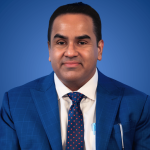 Dr. Joseph M Chalil – Chairman – FL
Dr. Joseph M Chalil – Chairman – FL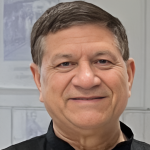 Parveen Chopra – Vice Chairman – NY
Parveen Chopra – Vice Chairman – NY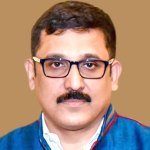 Ginsmon Zacharia – Board Secretary. – NY
Ginsmon Zacharia – Board Secretary. – NY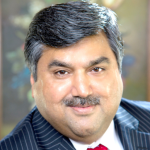 Kamalesh Mehta – NY
Kamalesh Mehta – NY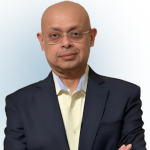 Dr. Indranill Basu Ray – Cambridge, MA
Dr. Indranill Basu Ray – Cambridge, MA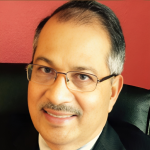 Dr. Mathew Joys – Las Vegas, NV
Dr. Mathew Joys – Las Vegas, NV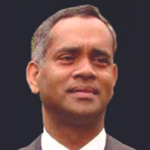 Ajay Ghosh – CT
Ajay Ghosh – CT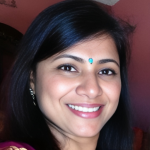 Meena Chittilapilly – Dallas, TX
Meena Chittilapilly – Dallas, TX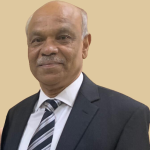 CG Daniel – Houston, TX
CG Daniel – Houston, TX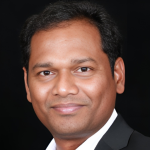 Dr. P V Baiju – Edmonton, CAD
Dr. P V Baiju – Edmonton, CAD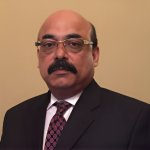 Jacob Kudasanad – Houston
Jacob Kudasanad – Houston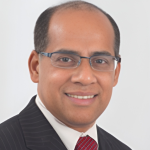 Reji Philip – Philadelphia
Reji Philip – Philadelphia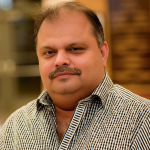 Jacob Abraham – NY
Jacob Abraham – NY Dr. Renee Mehra – Chicago
Dr. Renee Mehra – Chicago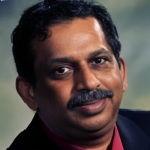 Joseph John – Calgary, CAD
Joseph John – Calgary, CAD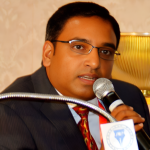 Cyriac Scaria – San Antonio
Cyriac Scaria – San Antonio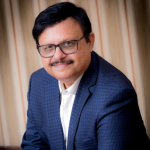 Korason Varghese – NY
Korason Varghese – NY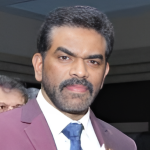 Joji Kavanal – NY
Joji Kavanal – NY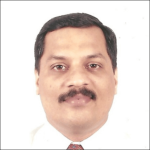 Anil Augustine – Atlanta
Anil Augustine – Atlanta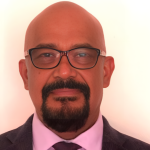 Morley J. Nair – Philadelphia
Morley J. Nair – Philadelphia Indo American Press Club (IAPC) is the fast-growing syndicate of print, visual, online, and electronic media journalists and other media-related professionals of Indian origin working in the United States, Canada, and Europe. IAPC is committed to enhancing the working conditions of our journalists, exchanging ideas, and offering educational and training opportunities to our members, aspiring young journalists, and media professionals around the globe; and also by honoring media people for their excellence, and for bringing positive changes through their dedicated service among the community. Today IAPC envisages its vision through collective efforts and advocacy activities through its 15 Chapters across the US and Canada, in the larger public sphere.
Indo American Press Club (IAPC) is the fast-growing syndicate of print, visual, online, and electronic media journalists and other media-related professionals of Indian origin working in the United States, Canada, and Europe. IAPC is committed to enhancing the working conditions of our journalists, exchanging ideas, and offering educational and training opportunities to our members, aspiring young journalists, and media professionals around the globe; and also by honoring media people for their excellence, and for bringing positive changes through their dedicated service among the community. Today IAPC envisages its vision through collective efforts and advocacy activities through its 15 Chapters across the US and Canada, in the larger public sphere.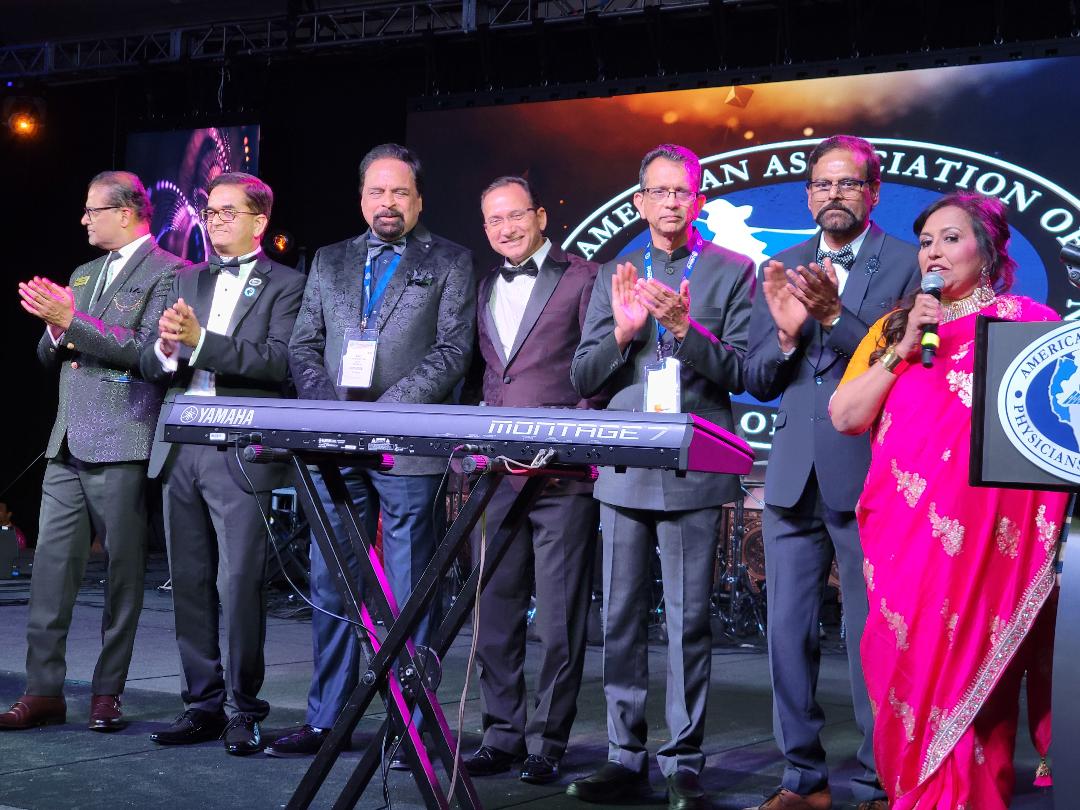 In an official communication sent out to the members of the AAPI’s General Boy, Dr. Kathula stated: “According to the current bylaws (Article VI) the current Executive Committee (EC) term is one year which ended on July 8, 2024. The new Executive Committee’s term started on July 9, 2024.”
In an official communication sent out to the members of the AAPI’s General Boy, Dr. Kathula stated: “According to the current bylaws (Article VI) the current Executive Committee (EC) term is one year which ended on July 8, 2024. The new Executive Committee’s term started on July 9, 2024.”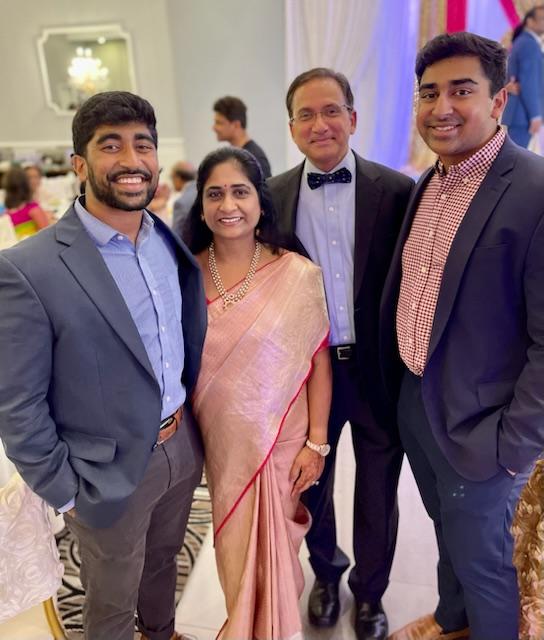 Dr. Kathula, who graduated from Siddhartha Medical College, Vijayawada, Andhra Pradesh, India in 1992 is a clinical professor of medicine at Wright State University-Boonshoft School of Medicine, Dayton, Ohio. Dr. Kathula is a Diplomate of the American Board of Lifestyle Medicine. He has authored several papers and articles in medical journals and is in the process of writing a book, describing his journey as an immigrant physician. “For the past 22 years, I’ve been proudly serving as a Hematologist and Oncologist in the Dayton community, considering it my home:”
Dr. Kathula, who graduated from Siddhartha Medical College, Vijayawada, Andhra Pradesh, India in 1992 is a clinical professor of medicine at Wright State University-Boonshoft School of Medicine, Dayton, Ohio. Dr. Kathula is a Diplomate of the American Board of Lifestyle Medicine. He has authored several papers and articles in medical journals and is in the process of writing a book, describing his journey as an immigrant physician. “For the past 22 years, I’ve been proudly serving as a Hematologist and Oncologist in the Dayton community, considering it my home:”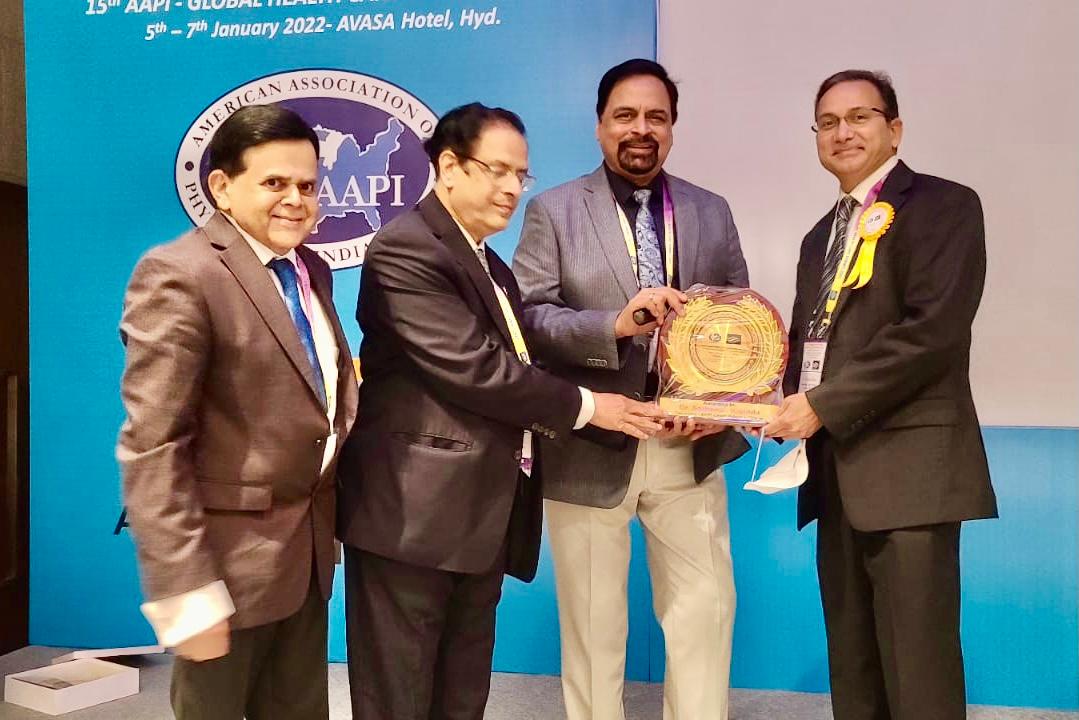 Recalling his long association with AAPI, which he has come to call his 2nd family, Dr. Kathula says, “My first experience with medical conventions occurred at the AAPI annual convention in 1995, graced by then-President Bill Clinton. Inspired, I formally joined AAPI in 2002, though my active involvement commenced in 2009, assuming the role of the governing body member of AAPI. Later on, I won all four national elections I contested, supported by esteemed AAPI members.”
Recalling his long association with AAPI, which he has come to call his 2nd family, Dr. Kathula says, “My first experience with medical conventions occurred at the AAPI annual convention in 1995, graced by then-President Bill Clinton. Inspired, I formally joined AAPI in 2002, though my active involvement commenced in 2009, assuming the role of the governing body member of AAPI. Later on, I won all four national elections I contested, supported by esteemed AAPI members.”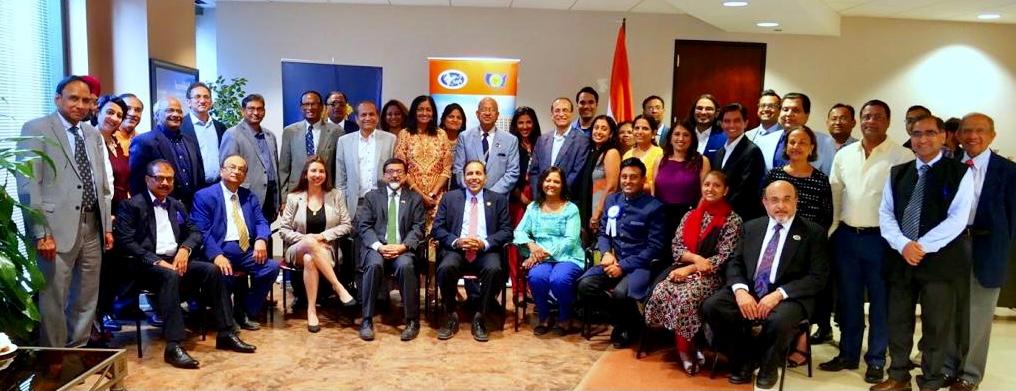 In his inaugural note, Dr. Kathula assured all AAPI members and all physicians of Indian origin that “I will sincerely work for the betterment of our beloved organization, AAPI.”
In his inaugural note, Dr. Kathula assured all AAPI members and all physicians of Indian origin that “I will sincerely work for the betterment of our beloved organization, AAPI.”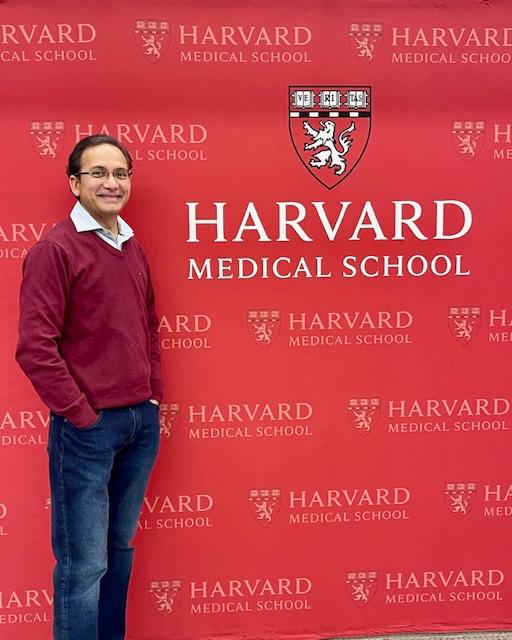 Dr. Kathula has laid out his vision for AAPI on his website:
Dr. Kathula has laid out his vision for AAPI on his website: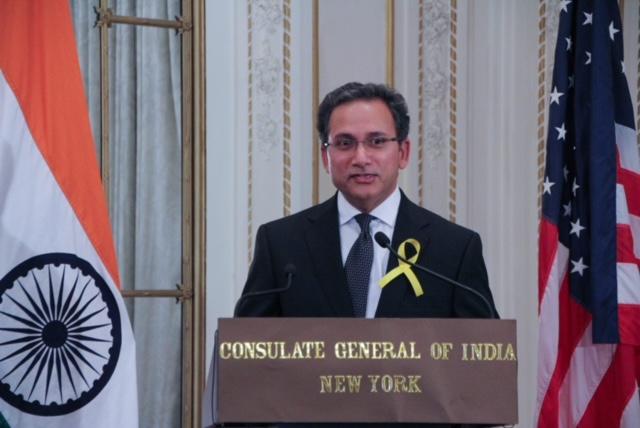 He has been actively involved in community service locally, nationally, and internationally for the last two decades. Dr. Kathula was instrumental in raising funds for the construction of the Om Shanti Hindu Cultural Center in Dayton. He is also the President and Founding Member of the Association of Indian Physicians from Ohio. He has served on several non-profit boards, dedicating his time, skills, and resources for the greater good of the larger community. Dr. Kathula served on the Board of Trustees of the Leukemia and Lymphoma Society (Dayton chapter) and has raised more than $200,000 for some of its initiatives. The society conferred on him the Man of the Year Award in 2010. Dr. Kathula received Hind Rattan Award in 2010, given by the NRI Welfare Society of India for his outstanding contributions. He was awarded ‘Man of the Year – 2018’ by the Leukemia and Lymphoma Society.
He has been actively involved in community service locally, nationally, and internationally for the last two decades. Dr. Kathula was instrumental in raising funds for the construction of the Om Shanti Hindu Cultural Center in Dayton. He is also the President and Founding Member of the Association of Indian Physicians from Ohio. He has served on several non-profit boards, dedicating his time, skills, and resources for the greater good of the larger community. Dr. Kathula served on the Board of Trustees of the Leukemia and Lymphoma Society (Dayton chapter) and has raised more than $200,000 for some of its initiatives. The society conferred on him the Man of the Year Award in 2010. Dr. Kathula received Hind Rattan Award in 2010, given by the NRI Welfare Society of India for his outstanding contributions. He was awarded ‘Man of the Year – 2018’ by the Leukemia and Lymphoma Society.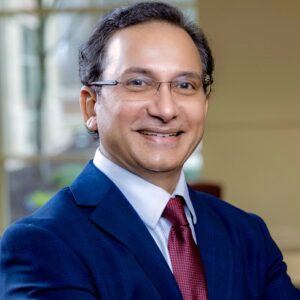 Dr. Kathula gives credit to several mentors who have helped shape his outlook on life. “My life’s journey has been enriched by countless mentors and inspirations from all walks of life, each contributing to my personal and professional growth.”
Dr. Kathula gives credit to several mentors who have helped shape his outlook on life. “My life’s journey has been enriched by countless mentors and inspirations from all walks of life, each contributing to my personal and professional growth.” Dr. Kathula, a board-certified hematologist and oncologist from Dayton, Ohio, practicing Medicine for over two decades, said: “I also want to take this opportunity to thank past leadership, along with the executive committee, Board of Trustees, and chairs of all standing committees, for their year of dedicated service. Let us continue to support each other, innovate, and strive for excellence. The challenges we overcome today will pave the way for a brighter and more prosperous future for all.”
Dr. Kathula, a board-certified hematologist and oncologist from Dayton, Ohio, practicing Medicine for over two decades, said: “I also want to take this opportunity to thank past leadership, along with the executive committee, Board of Trustees, and chairs of all standing committees, for their year of dedicated service. Let us continue to support each other, innovate, and strive for excellence. The challenges we overcome today will pave the way for a brighter and more prosperous future for all.” Dr. Kathula says, “My priority is to engage the second-generation physicians and fostering mentorship to ensure AAPI’s continued relevance and vitality.” As the leader of AAPI, who will be entrusted with the task of leading AAPI for the next one year, Dr. Kathula says, “My goals for AAPI have been very clear. I want to focus on education, communication, and legislation, involving the younger generation. Increasing the membership, creating benefits for members, and making AAPI financially stronger are some of my objectives. I will work hand in hand with the entire executive committee, and board of trustees, to make AAPI stronger and more viable.”
Dr. Kathula says, “My priority is to engage the second-generation physicians and fostering mentorship to ensure AAPI’s continued relevance and vitality.” As the leader of AAPI, who will be entrusted with the task of leading AAPI for the next one year, Dr. Kathula says, “My goals for AAPI have been very clear. I want to focus on education, communication, and legislation, involving the younger generation. Increasing the membership, creating benefits for members, and making AAPI financially stronger are some of my objectives. I will work hand in hand with the entire executive committee, and board of trustees, to make AAPI stronger and more viable.” Dr. Kathula has served as the President and founding member of the Association of Indian Physicians from Ohio, President of the Miami Valley Association of Physicians of Indian Origin as well as the President of the ATMGUSA (Association of Telugu Medical Graduates in USA). In addition, he has worked with the Ohio State Medical Association on various issues. He has been actively involved in community service locally, nationally, and internationally for the last two decades. He was awarded ‘Man of the Year – 2018’ by the Leukemia and Lymphoma Society.
Dr. Kathula has served as the President and founding member of the Association of Indian Physicians from Ohio, President of the Miami Valley Association of Physicians of Indian Origin as well as the President of the ATMGUSA (Association of Telugu Medical Graduates in USA). In addition, he has worked with the Ohio State Medical Association on various issues. He has been actively involved in community service locally, nationally, and internationally for the last two decades. He was awarded ‘Man of the Year – 2018’ by the Leukemia and Lymphoma Society. The magnificent efforts to pull off such an event at a low cost to the attendees, and organizing
The magnificent efforts to pull off such an event at a low cost to the attendees, and organizing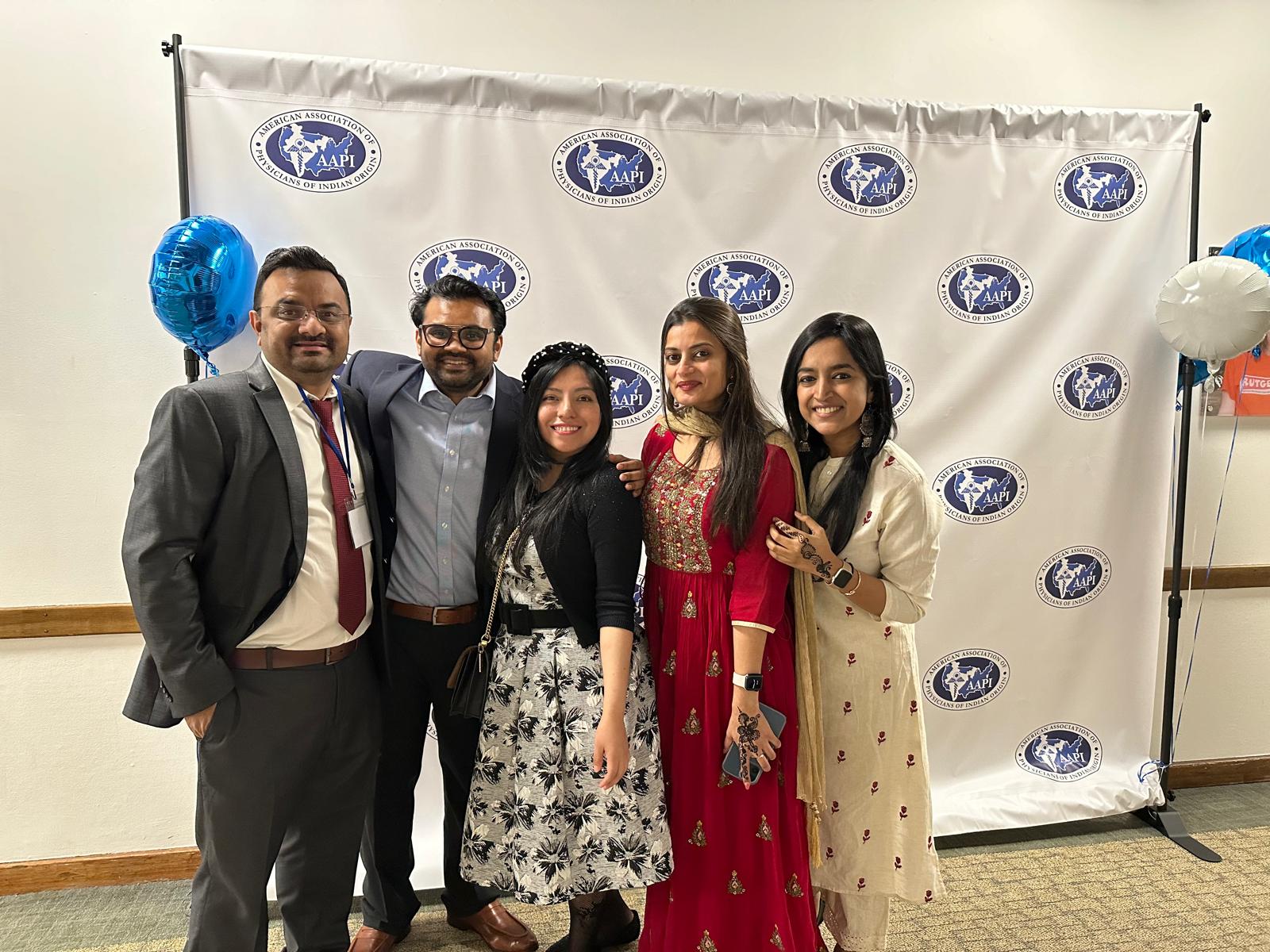 Amshu Chakragiri offered tips on how to crush the MCATs. Dr. Zheala Qayyum’s lecture on how to effectively support trainees following a patient death was well appreciated by all. Other topics during the conference included: SATHI initiative and a focus on mental health within the South Asian community. A panel discussion on the admission process and Dr. Bellamkonda Kishore’s talk on the transformation of primary care by AI were other key parts of the conference.
Amshu Chakragiri offered tips on how to crush the MCATs. Dr. Zheala Qayyum’s lecture on how to effectively support trainees following a patient death was well appreciated by all. Other topics during the conference included: SATHI initiative and a focus on mental health within the South Asian community. A panel discussion on the admission process and Dr. Bellamkonda Kishore’s talk on the transformation of primary care by AI were other key parts of the conference.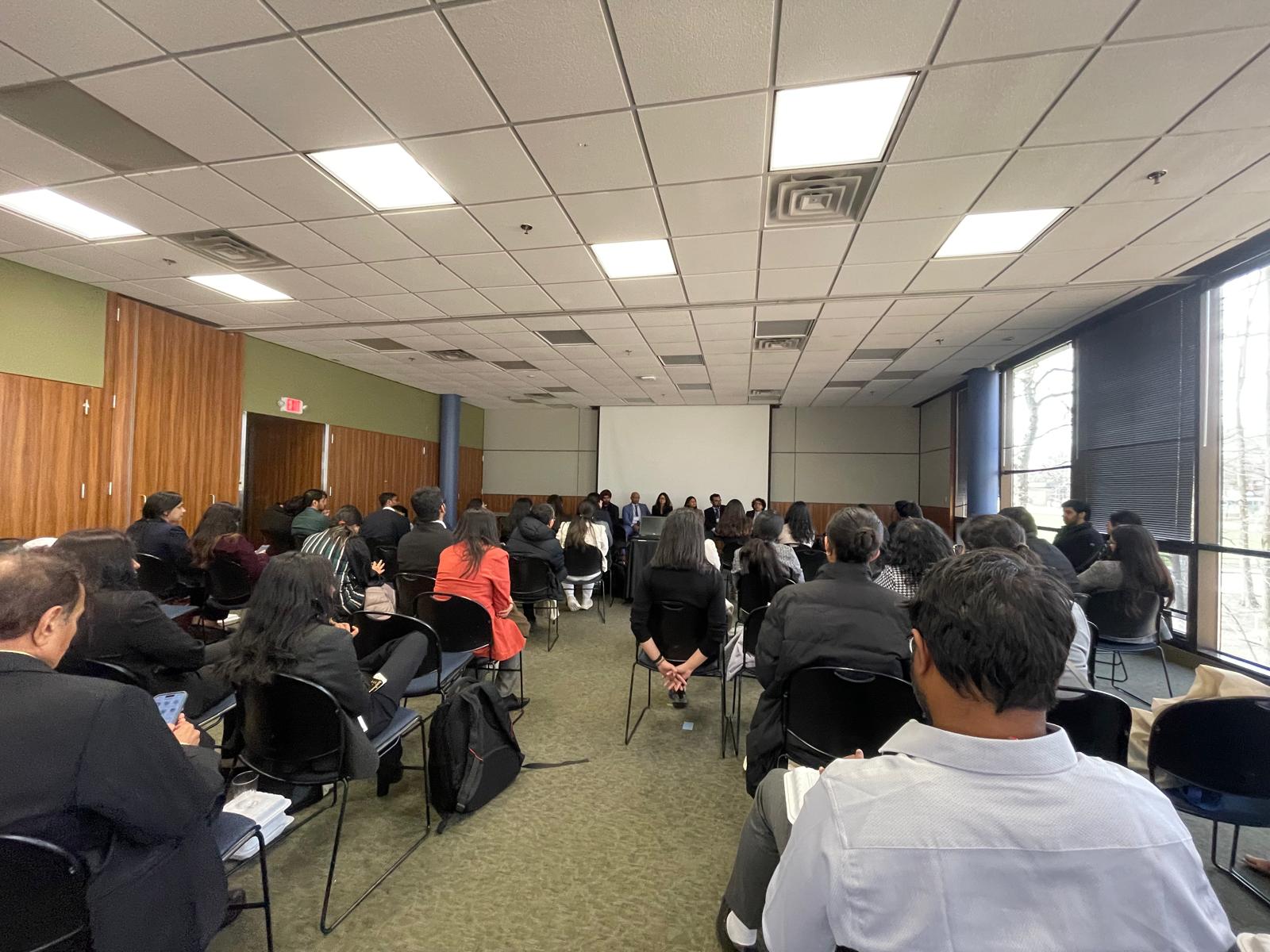
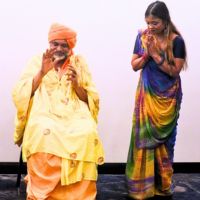
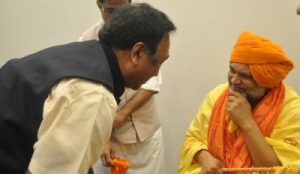
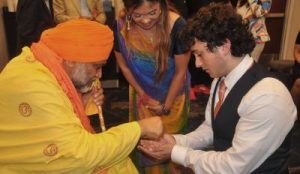
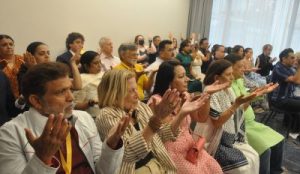
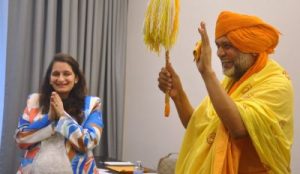
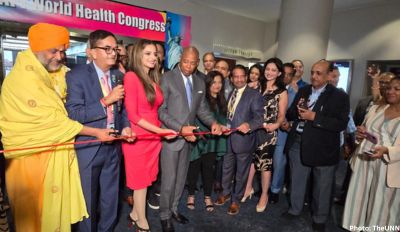 In her keynote address at the gala on Sunday night, Honorable Smriti Irani, a former Cabinet Minister of India and a Bollywood star shared with the over 1,500 AAPI delegates who came from across the United States about the many contributions of India to the world, especially in the healthcare filed and the numerous achievements of the Government of India. She thanked the AAPI members for their great contributions and services to the people of the United States and for their motherland India.
In her keynote address at the gala on Sunday night, Honorable Smriti Irani, a former Cabinet Minister of India and a Bollywood star shared with the over 1,500 AAPI delegates who came from across the United States about the many contributions of India to the world, especially in the healthcare filed and the numerous achievements of the Government of India. She thanked the AAPI members for their great contributions and services to the people of the United States and for their motherland India.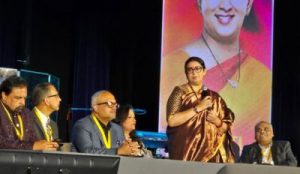 New York City Mayor Eric Adams inaugurated the World Health Congress of Physicians with the cutting of the Ribbon and a powerful and memorable inaugural address on July 18th, 2024. In his inaugural address, Adams lauded the contributions of Indian American physicians across the United States, especially during the Covid pandemic. “When you look at the 1000s of physicians across the country, you walk into any hospital, the emergency rooms, especially during COVID, you were present. You were there, and you sacrificed your own health to make sure of the health of this entire country. Your contributions are so rare.”
New York City Mayor Eric Adams inaugurated the World Health Congress of Physicians with the cutting of the Ribbon and a powerful and memorable inaugural address on July 18th, 2024. In his inaugural address, Adams lauded the contributions of Indian American physicians across the United States, especially during the Covid pandemic. “When you look at the 1000s of physicians across the country, you walk into any hospital, the emergency rooms, especially during COVID, you were present. You were there, and you sacrificed your own health to make sure of the health of this entire country. Your contributions are so rare.”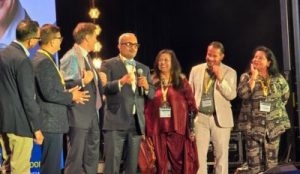
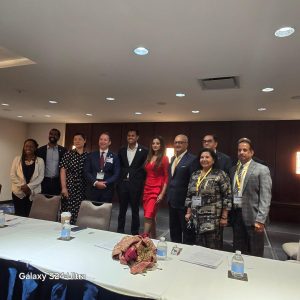
 Some of the major themes at the convention include: Yoga and Meditation practices, a welcome kit with books & self-care supplies, A Personal Reflexology Session, Take home wellness routine, yoga therapy sessions, a workshop on Spiritual well-being, Book talk with Yoga Gurus, including on the science of Yoga & Lifestyle medicine, and several wellness sessions.
Some of the major themes at the convention include: Yoga and Meditation practices, a welcome kit with books & self-care supplies, A Personal Reflexology Session, Take home wellness routine, yoga therapy sessions, a workshop on Spiritual well-being, Book talk with Yoga Gurus, including on the science of Yoga & Lifestyle medicine, and several wellness sessions. Amit Chakrabarty, Vice President of AAPI said, “AAPI’s mission has evolved in the past 42 years. “Today, AAPI is strong representing over 120,000 Indian American physicians, 130 local Chapters, who make up 10% of total physicians in the US and nearly 50% of International Medical Graduates, rooted in every corner of the nation, who serve every 7th patient in the US. We are proud of our achievements and our contributions to the healthcare industry and the millions of people we serve.”
Amit Chakrabarty, Vice President of AAPI said, “AAPI’s mission has evolved in the past 42 years. “Today, AAPI is strong representing over 120,000 Indian American physicians, 130 local Chapters, who make up 10% of total physicians in the US and nearly 50% of International Medical Graduates, rooted in every corner of the nation, who serve every 7th patient in the US. We are proud of our achievements and our contributions to the healthcare industry and the millions of people we serve.”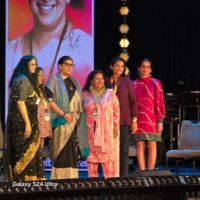 Research and Arts Competition: Poster Competition brought in the best among the aspiring medical students and new graduates from Medical schools. A Panel Discussion on Global Medical Education addressed by the Heads of NBME, FSMB, Intealth, NBME, and NBEMS offered practical tools on navigating the educational systems across India, UK and the United States.
Research and Arts Competition: Poster Competition brought in the best among the aspiring medical students and new graduates from Medical schools. A Panel Discussion on Global Medical Education addressed by the Heads of NBME, FSMB, Intealth, NBME, and NBEMS offered practical tools on navigating the educational systems across India, UK and the United States.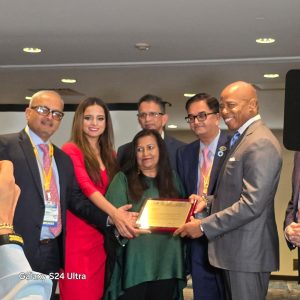 Each day began for the participants with an hour long session on “Harmony and Health: Integrative Yoga” where delegates benefited from hands on sessions teaching and practicing Yoga. Another theme that ran across all days of the Congress was Art Gallery – Oorja: The Feminine Light in Indian Art. Healing Breath that was part of the schedule everyday of the Congress was another way AAPI delegates had an opportunity to ground themselves to the present and start afresh.
Each day began for the participants with an hour long session on “Harmony and Health: Integrative Yoga” where delegates benefited from hands on sessions teaching and practicing Yoga. Another theme that ran across all days of the Congress was Art Gallery – Oorja: The Feminine Light in Indian Art. Healing Breath that was part of the schedule everyday of the Congress was another way AAPI delegates had an opportunity to ground themselves to the present and start afresh.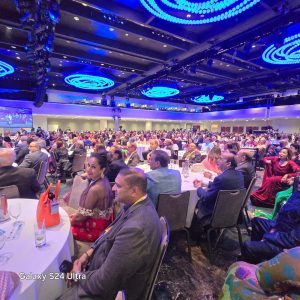 The growing influence of doctors of Indian heritage is evident, as increasingly physicians of Indian origin hold critical positions in the healthcare, academic, research and administrative positions across the nation. With their hard work, dedication, compassion, and skills, they have thus carved an enviable niche in the American medical community. AAPI’s role has come to be recognized as vital among members and among lawmakers.
The growing influence of doctors of Indian heritage is evident, as increasingly physicians of Indian origin hold critical positions in the healthcare, academic, research and administrative positions across the nation. With their hard work, dedication, compassion, and skills, they have thus carved an enviable niche in the American medical community. AAPI’s role has come to be recognized as vital among members and among lawmakers.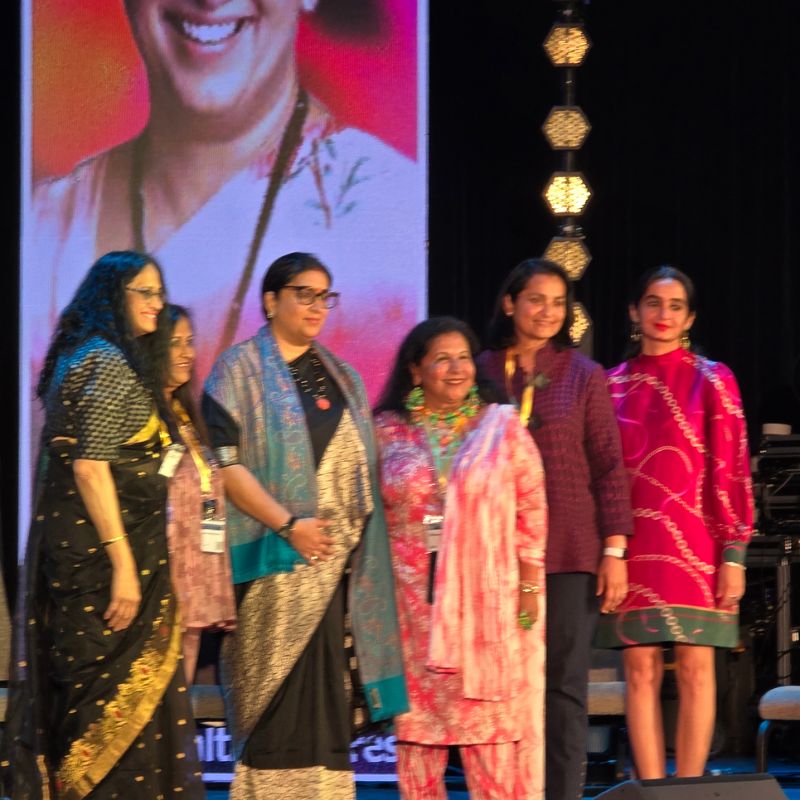 Smiriti Irani highlighted India’s role in bringing women’s leadership to the world forum though its leadership of G 20. She said, “Women don’t have the problem of speaking up, but they have the problem of being heard.” She said, “Women’s values cannot be measured by their success, she needs to be evaluated by what she is.” She paid homage to physicians of Indian origin “for your great contributions” and urged that “AAPI celebrates where every voice of women is celebrated.”
Smiriti Irani highlighted India’s role in bringing women’s leadership to the world forum though its leadership of G 20. She said, “Women don’t have the problem of speaking up, but they have the problem of being heard.” She said, “Women’s values cannot be measured by their success, she needs to be evaluated by what she is.” She paid homage to physicians of Indian origin “for your great contributions” and urged that “AAPI celebrates where every voice of women is celebrated.”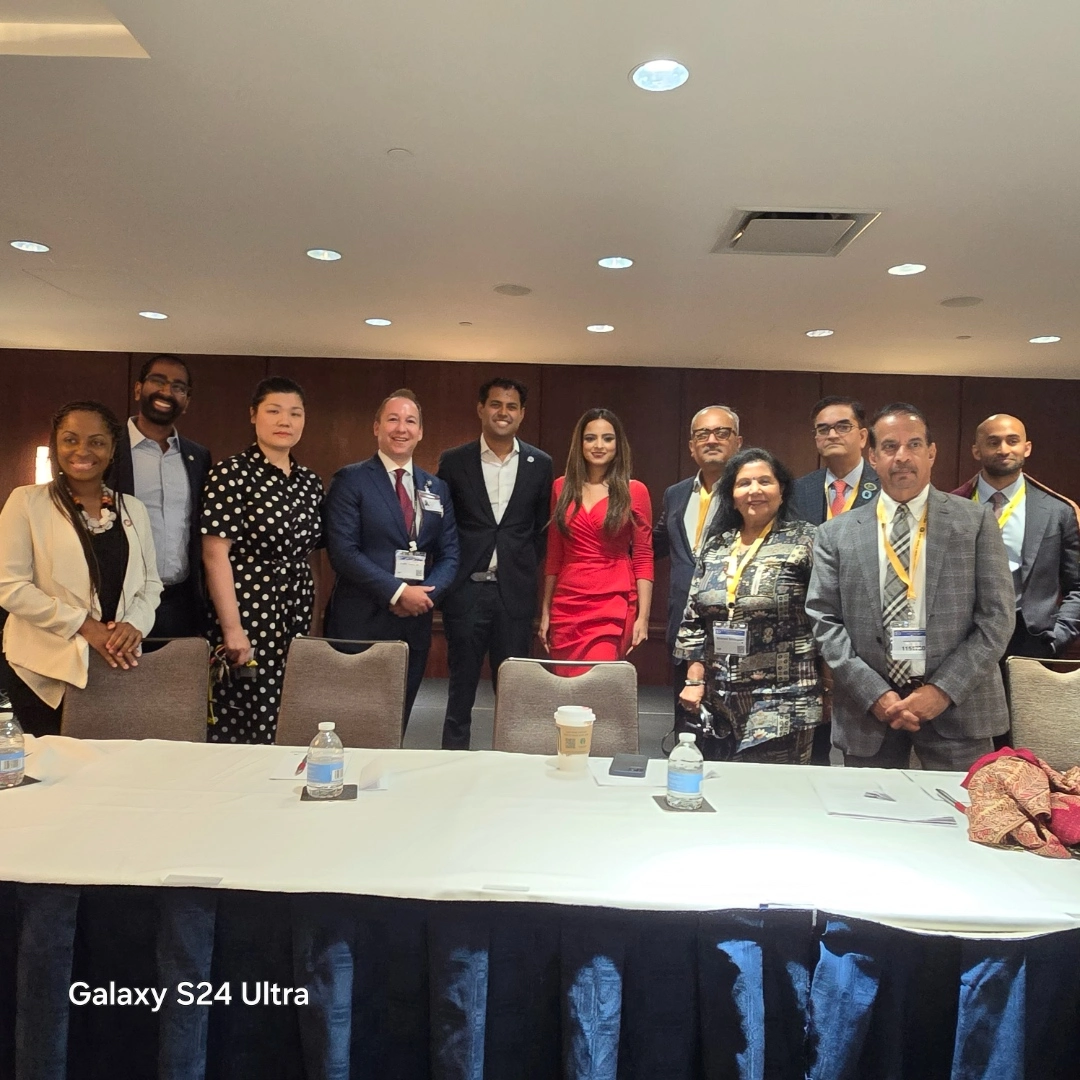 The World Health Congress, which began on July 18th with the cutting of the Ribbon by the Mayor of New York City, Eric Adams is being attended by over 1,000 physicians and has over ing80 speakers and CEOs from around the globe, provide the delegates with an unparalleled opportunity to network, learn, and explore groundbreaking advancements across healthcare disciplines.
The World Health Congress, which began on July 18th with the cutting of the Ribbon by the Mayor of New York City, Eric Adams is being attended by over 1,000 physicians and has over ing80 speakers and CEOs from around the globe, provide the delegates with an unparalleled opportunity to network, learn, and explore groundbreaking advancements across healthcare disciplines.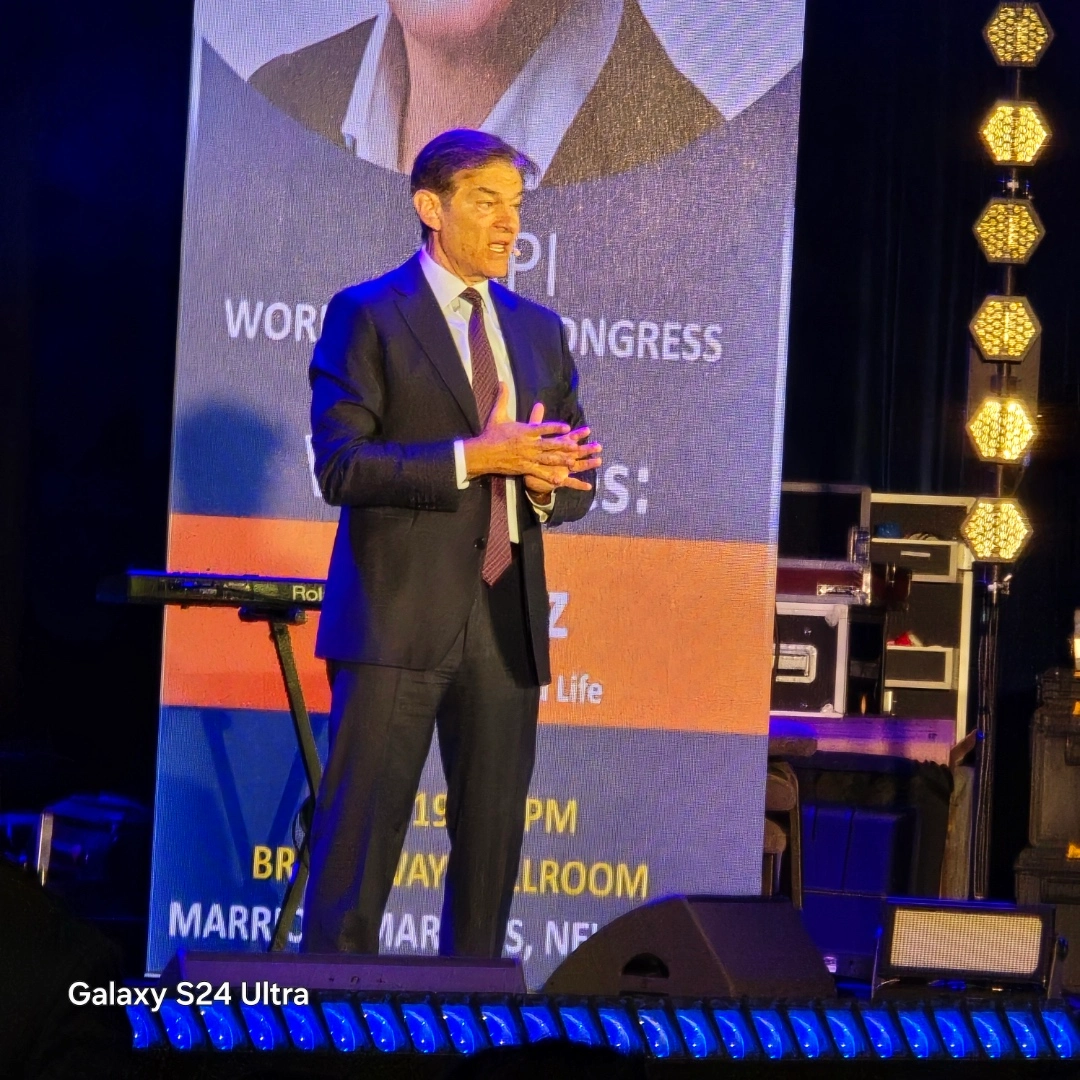 The CEO Forum was moderated by Dr. Achintya Moulick, Chair of the AAPI World Health Congress. In his opening remarks, Dr. Moulick said, “The first World Congress of AAPI signals the beginning of a new chapter for the organization which has had a significant impact on American healthcare. The goal for me as the first convention chair of the World Congress is to bring healthcare providers, entrepreneurs, financial bodies and policymakers together and create a perfect gathering of first, second and third generation physicians and other healthcare providers of Indian origin lead the way for the future of global health.”
The CEO Forum was moderated by Dr. Achintya Moulick, Chair of the AAPI World Health Congress. In his opening remarks, Dr. Moulick said, “The first World Congress of AAPI signals the beginning of a new chapter for the organization which has had a significant impact on American healthcare. The goal for me as the first convention chair of the World Congress is to bring healthcare providers, entrepreneurs, financial bodies and policymakers together and create a perfect gathering of first, second and third generation physicians and other healthcare providers of Indian origin lead the way for the future of global health.”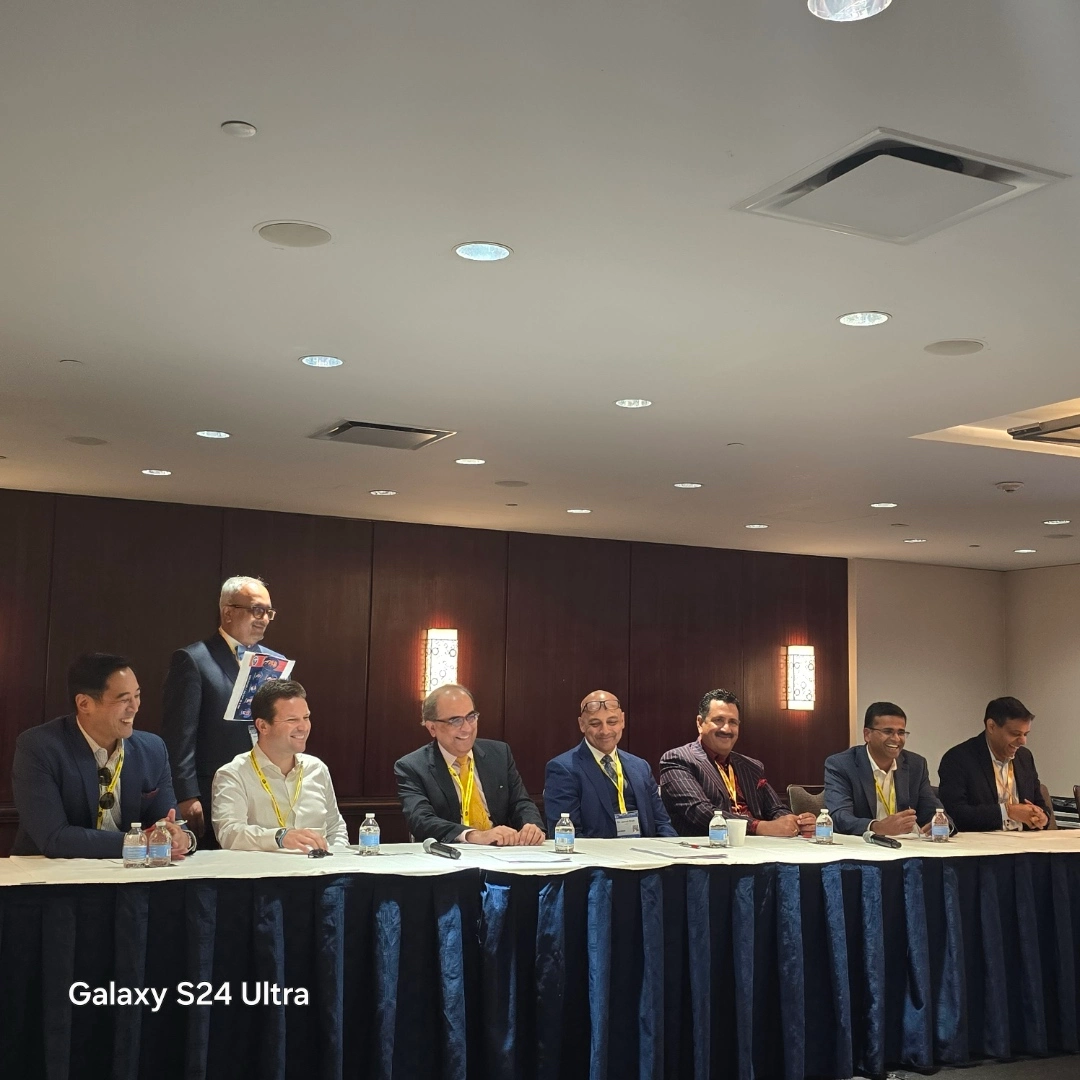 AAPI’s Legislative Day discussed the need to regulate healthcare, visa, physician-patient relationship, insurance issues and was moderated by Dr. Sumul Raval, national Secretary of AAPI. He said, “AAPI’s lobbying efforts on some of the issues affecting the broader Indian American community and other immigrant groups is also a testament to its growth and reach. Being one of the oldest Indian American organizations, it’s also among the most influential, as was evident from the lawmakers who took time out of their busy schedule to address the group.”
AAPI’s Legislative Day discussed the need to regulate healthcare, visa, physician-patient relationship, insurance issues and was moderated by Dr. Sumul Raval, national Secretary of AAPI. He said, “AAPI’s lobbying efforts on some of the issues affecting the broader Indian American community and other immigrant groups is also a testament to its growth and reach. Being one of the oldest Indian American organizations, it’s also among the most influential, as was evident from the lawmakers who took time out of their busy schedule to address the group.”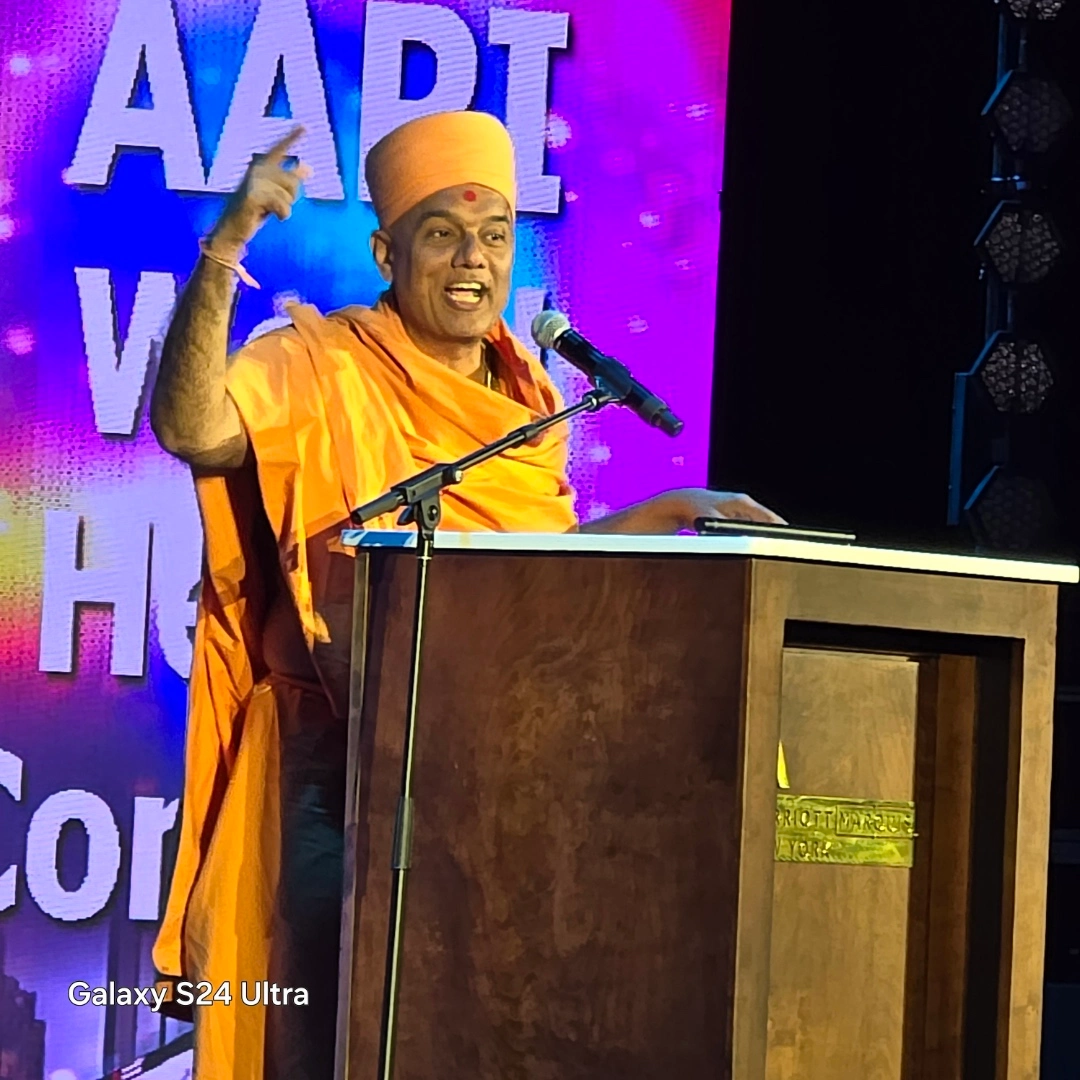 Dr. Anjana Samadder, president of AAPI said, “The growing influence of doctors of Indian heritage is evident, as increasingly physicians of Indian origin hold critical positions in the healthcare, academic, research and administrative positions across the nation. With their hard work, dedication, compassion, and skills, they have thus carved an enviable niche in the American medical community. AAPI’s role has come to be recognized as vital among members and among lawmakers.”
Dr. Anjana Samadder, president of AAPI said, “The growing influence of doctors of Indian heritage is evident, as increasingly physicians of Indian origin hold critical positions in the healthcare, academic, research and administrative positions across the nation. With their hard work, dedication, compassion, and skills, they have thus carved an enviable niche in the American medical community. AAPI’s role has come to be recognized as vital among members and among lawmakers.”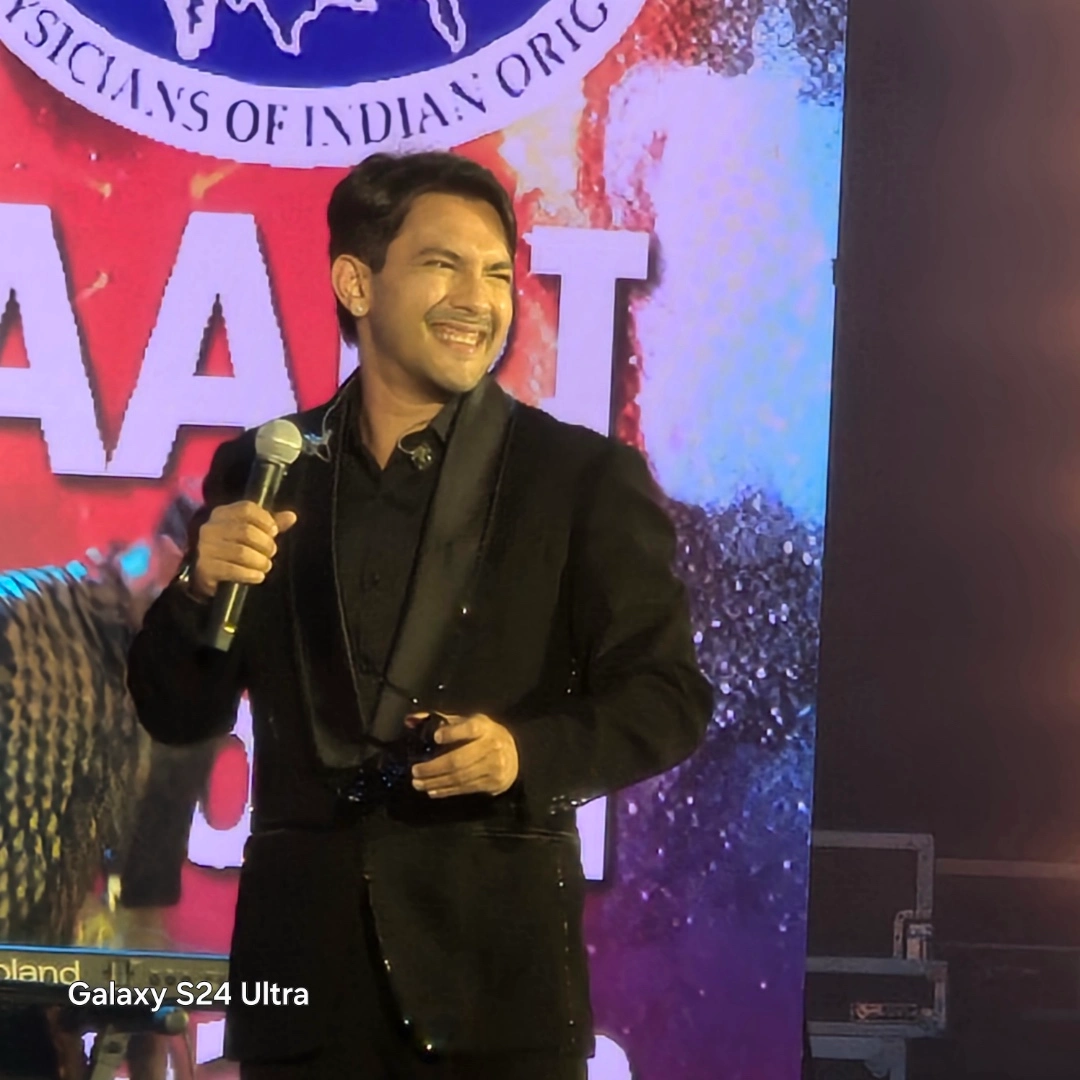 Dr. Lokesh Edara, Chair, AAPI Board of Trustees said, “The growing influence of doctors of Indian heritage is evident, as increasingly physicians of Indian origin hold critical positions in the healthcare, academic, research and administrative positions across the nation. With their hard work, dedication, compassion, and skills, they have thus carved an enviable niche in the American medical community. AAPI’s role has come to be recognized as vital among members and among lawmakers.”
Dr. Lokesh Edara, Chair, AAPI Board of Trustees said, “The growing influence of doctors of Indian heritage is evident, as increasingly physicians of Indian origin hold critical positions in the healthcare, academic, research and administrative positions across the nation. With their hard work, dedication, compassion, and skills, they have thus carved an enviable niche in the American medical community. AAPI’s role has come to be recognized as vital among members and among lawmakers.”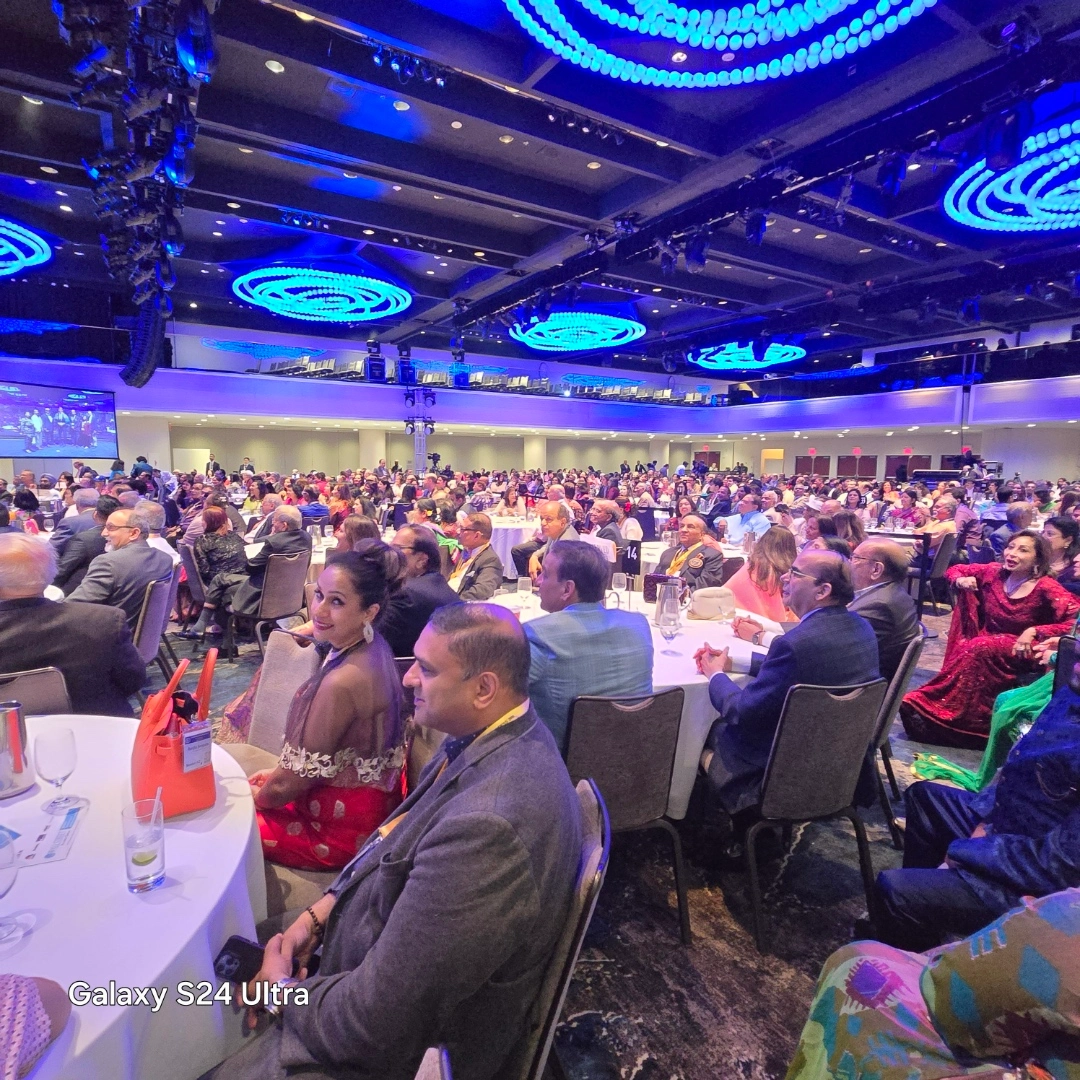
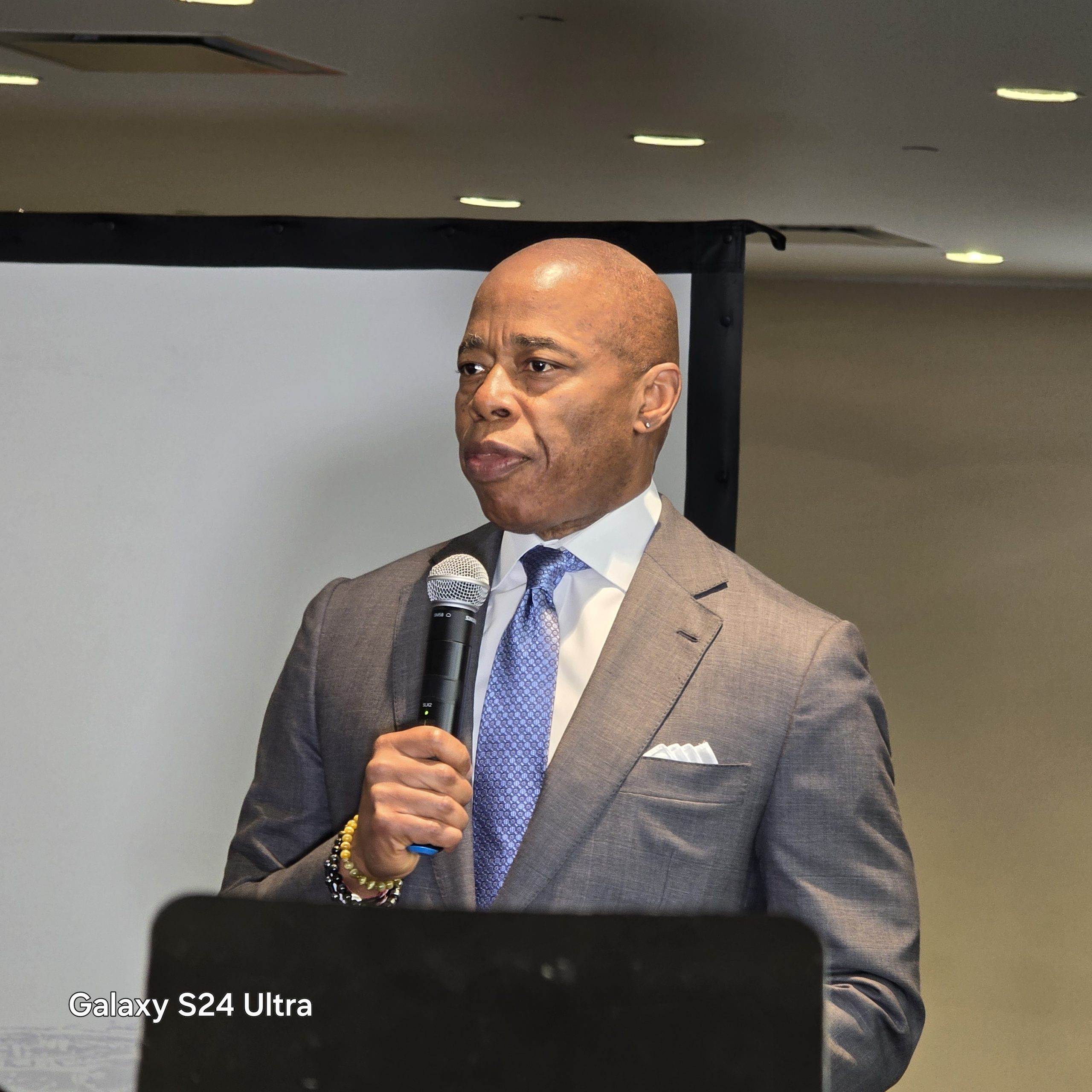 In his brief inaugural address, Adams lauded the contributions of Indian American physicians across the United States, especially during the Covid pandemic. “When you look at the 1000s of physicians across the country, you walk into any hospital, the emergency rooms, especially during COVID, you were present. You were there, and you sacrificed your own health to make sure of the health of this entire country. Your contributions are so rare.”
In his brief inaugural address, Adams lauded the contributions of Indian American physicians across the United States, especially during the Covid pandemic. “When you look at the 1000s of physicians across the country, you walk into any hospital, the emergency rooms, especially during COVID, you were present. You were there, and you sacrificed your own health to make sure of the health of this entire country. Your contributions are so rare.”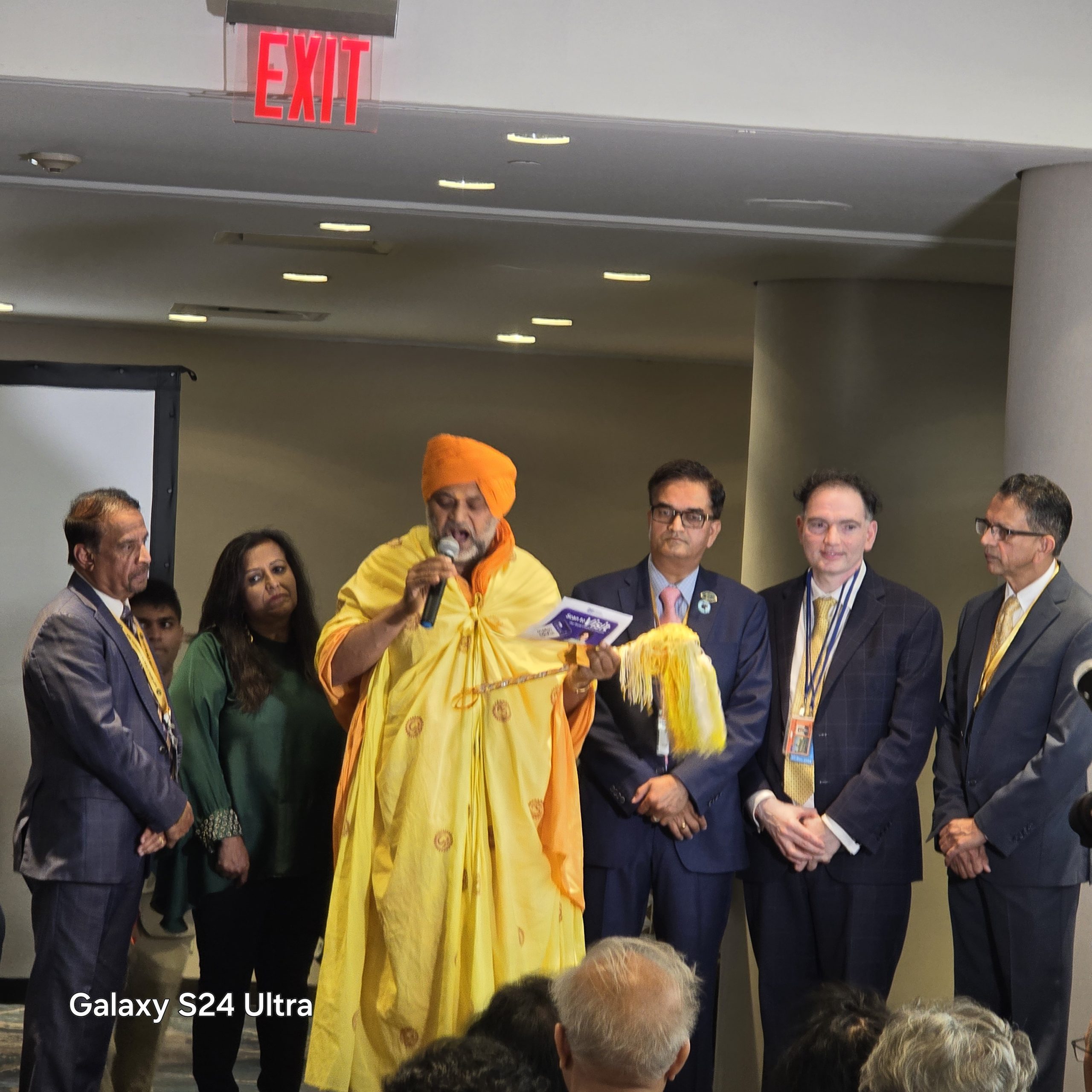 Physician, Author, and Professor Emeritus of cardiothoracic surgery at Columbia University; Smriti Zubin Irani, an Indian politician and former actress, fashion model, and television producer. She has been Minister of Women and Child Development since 2019, and also Minister of Minority Affairs since 2022; Mansukh Laxmanbhai Mandaviya is an Indian politician currently serving as the Minister of Health and Family Welfare and Chemicals and Fertilizers of India. He is also a Rajya Sabha member from Gujarat; Dr. Jesse Menachem Ehrenfeld, President of the American Medical Association and Professor of Anesthesiology at the Medical College of Wisconsin.; and, Dr. Vivek Hallegere Murthy, a vice admiral in the United States Public Health Service Commissioned Corps who has served as the 19th and 21st Surgeon General of the United States under Presidents Barack Obama, Donald Trump, and Joe Biden.
Physician, Author, and Professor Emeritus of cardiothoracic surgery at Columbia University; Smriti Zubin Irani, an Indian politician and former actress, fashion model, and television producer. She has been Minister of Women and Child Development since 2019, and also Minister of Minority Affairs since 2022; Mansukh Laxmanbhai Mandaviya is an Indian politician currently serving as the Minister of Health and Family Welfare and Chemicals and Fertilizers of India. He is also a Rajya Sabha member from Gujarat; Dr. Jesse Menachem Ehrenfeld, President of the American Medical Association and Professor of Anesthesiology at the Medical College of Wisconsin.; and, Dr. Vivek Hallegere Murthy, a vice admiral in the United States Public Health Service Commissioned Corps who has served as the 19th and 21st Surgeon General of the United States under Presidents Barack Obama, Donald Trump, and Joe Biden.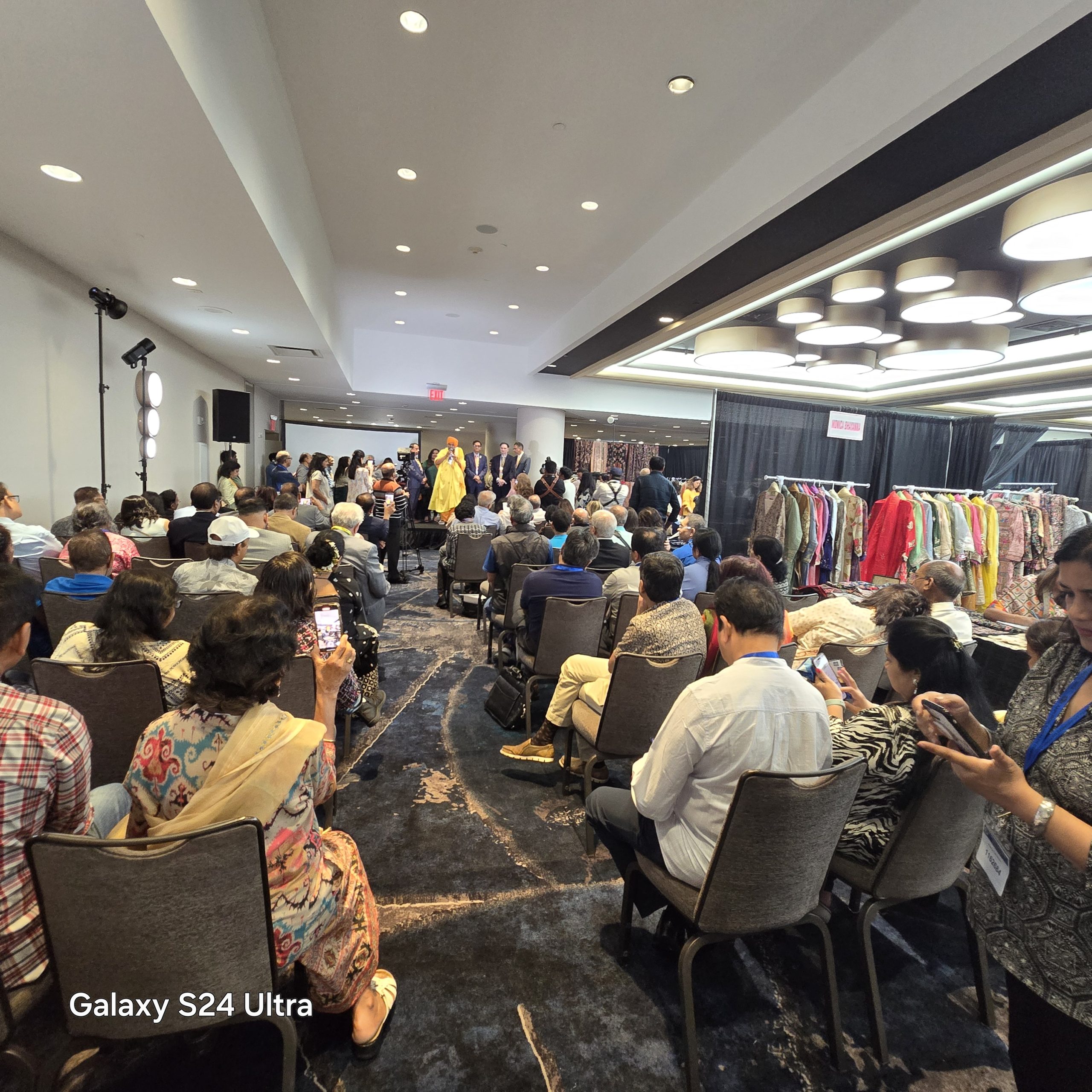 The World Congress has, among many others, sessions on cutting-edge research and CMEs, promoting business relationships, and display the ethnic items. Artificial Intelligence (AI) is the prime focus of our World Health Congress. There will be entertainment features for children, performances by singer Atul Purohit and a comedy show by Kapil Sharma, Live entertainment by Javed Ali and Atif Aslam, Traditional Garba, Bollywood Film Festival, and a fashion show.
The World Congress has, among many others, sessions on cutting-edge research and CMEs, promoting business relationships, and display the ethnic items. Artificial Intelligence (AI) is the prime focus of our World Health Congress. There will be entertainment features for children, performances by singer Atul Purohit and a comedy show by Kapil Sharma, Live entertainment by Javed Ali and Atif Aslam, Traditional Garba, Bollywood Film Festival, and a fashion show.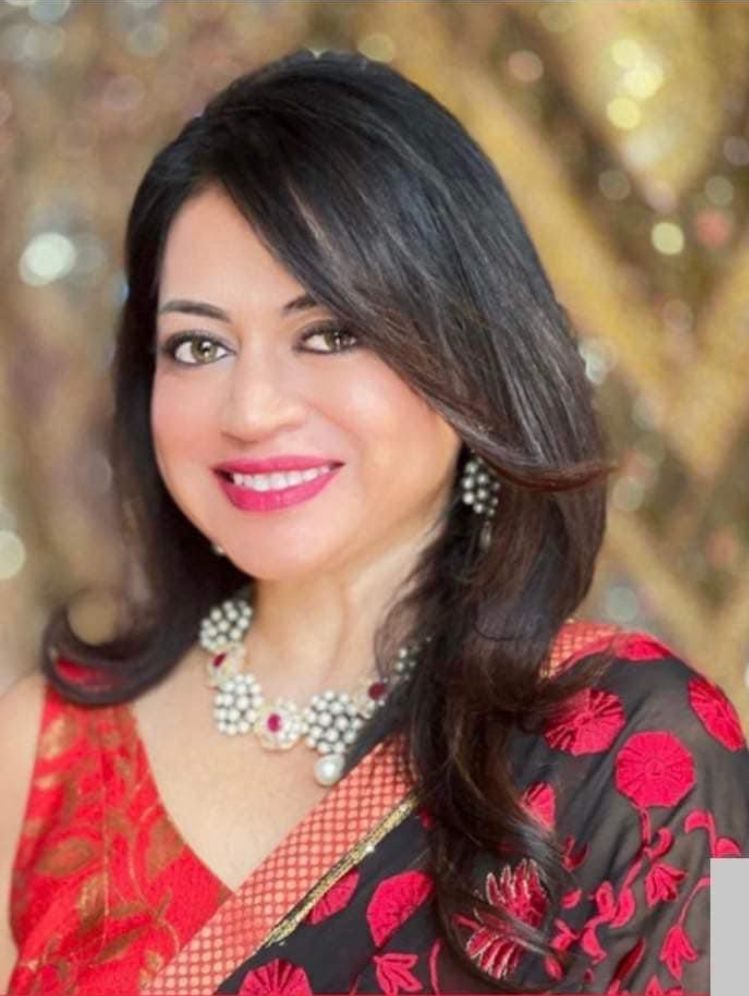 Currently, Dr. Gupta is serving a 3-year term on the powerful Board of Trustees of AAPI. She will assume charge as the Chair of AAPI’s BOT during the first-ever World Congress of AAPI in New York on July 20th, 2024.
Currently, Dr. Gupta is serving a 3-year term on the powerful Board of Trustees of AAPI. She will assume charge as the Chair of AAPI’s BOT during the first-ever World Congress of AAPI in New York on July 20th, 2024.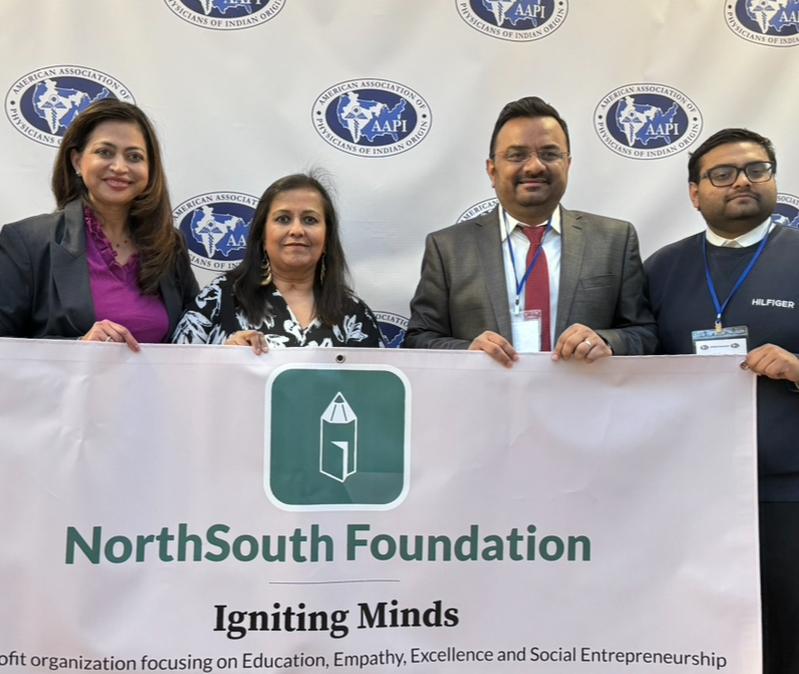 Dr. Kavita Gupta is board-certified in pain management, physical medicine, and rehabilitation. A prominent practicing pain management physician from the southern New Jersey Tri-state region, Dr. Gupta had started as an engineer but pursued a medical degree “with a mindset to help others.”
Dr. Kavita Gupta is board-certified in pain management, physical medicine, and rehabilitation. A prominent practicing pain management physician from the southern New Jersey Tri-state region, Dr. Gupta had started as an engineer but pursued a medical degree “with a mindset to help others.”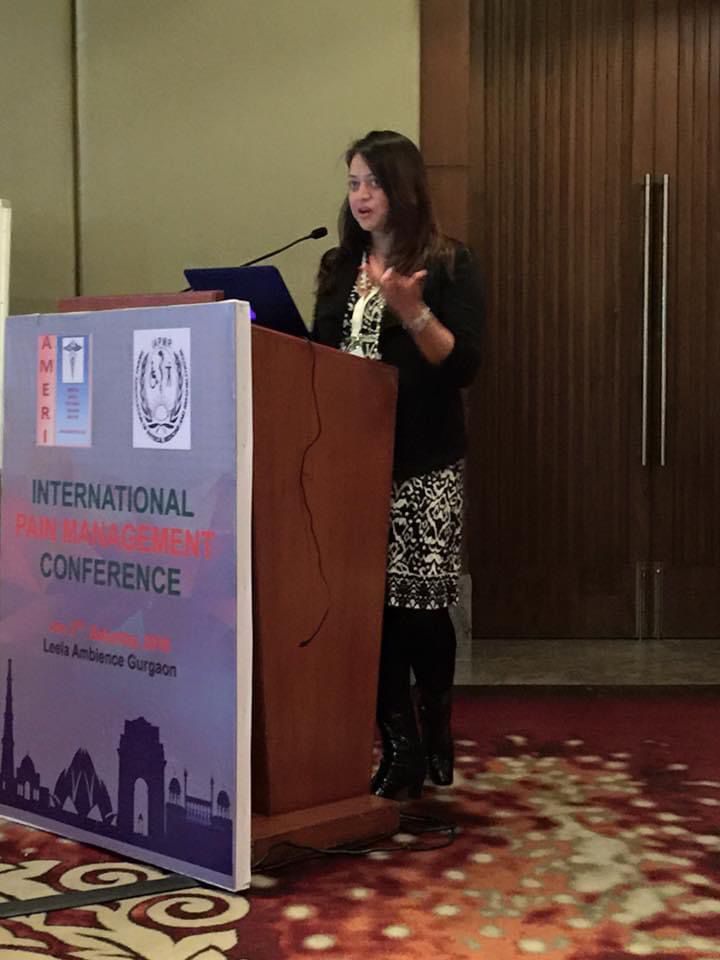 Dr. Gupta grew within AAPI nationally and locally while attending national and local Chapter meetings. She was elected national Vice President of MSRF, Treasurer of YPS, and later on as YPS president. She has been active in the Philadelphia Indian Physician organization, serving as its Secretary and Vice President. She was elected and served as the national Secretary of AAPI in 2013. In addition, Dr. Gupta has served on various national AAPI Committees- from women’s forum/academic affairs /CME speaker/ convention committees and under several past presidents/convention teams.
Dr. Gupta grew within AAPI nationally and locally while attending national and local Chapter meetings. She was elected national Vice President of MSRF, Treasurer of YPS, and later on as YPS president. She has been active in the Philadelphia Indian Physician organization, serving as its Secretary and Vice President. She was elected and served as the national Secretary of AAPI in 2013. In addition, Dr. Gupta has served on various national AAPI Committees- from women’s forum/academic affairs /CME speaker/ convention committees and under several past presidents/convention teams.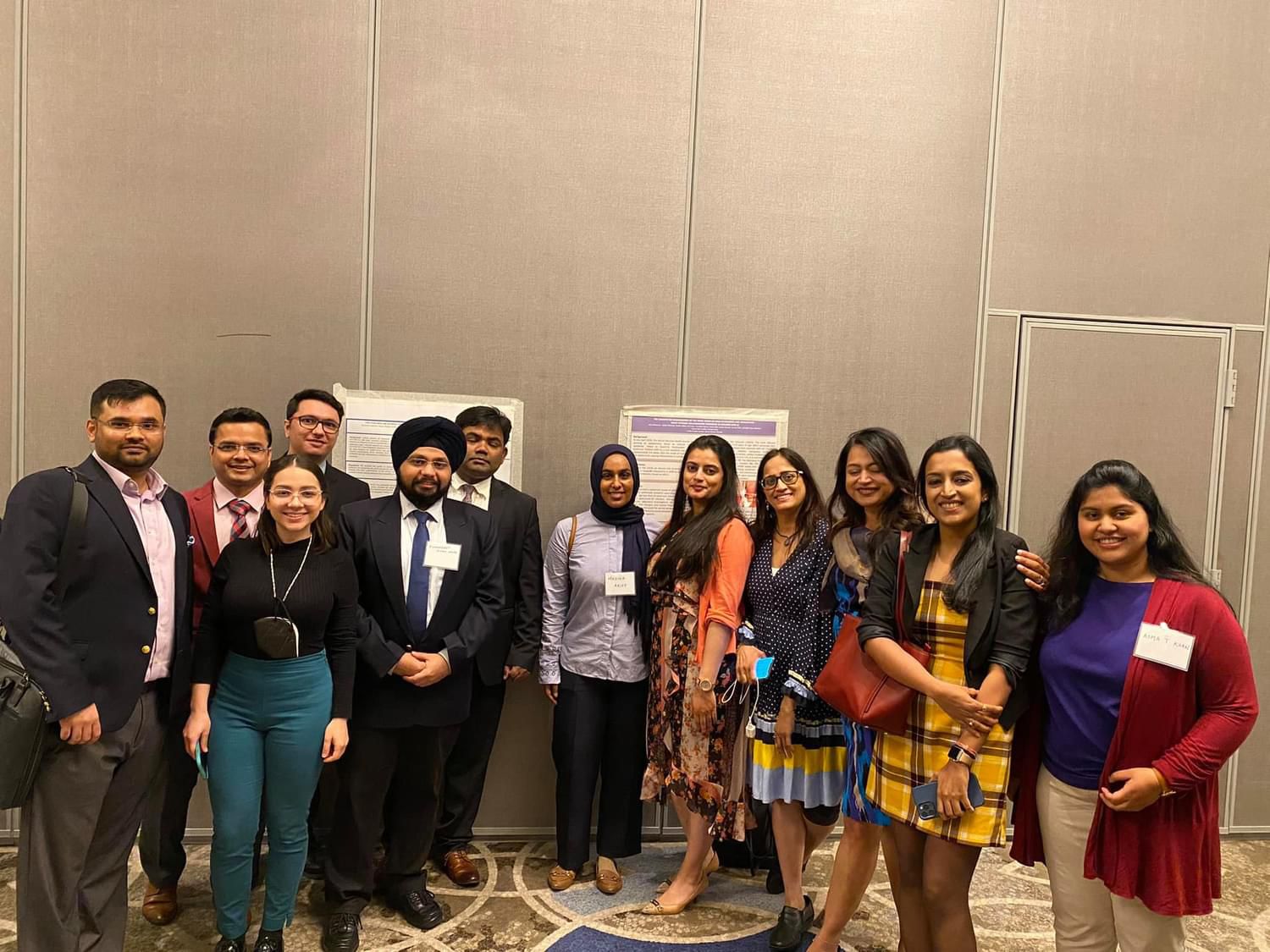 “My passion has been in educating the youth and participating as a judge and advisor for several youth organizations focused on science, research, public speaking, and medical student education,” she says. Dr. Gupta believes “in empowering the youth, staying involved as an educator ever since my residency career and I am currently educating medical students, graduate students and resident physicians.
I enjoy in participating healthcare education platforms for the community and have done many such programs locally, via telehealth, and abroad. I have been a youth advisor for non-profit organizations, high school clubs, and professional development programs.”
“My passion has been in educating the youth and participating as a judge and advisor for several youth organizations focused on science, research, public speaking, and medical student education,” she says. Dr. Gupta believes “in empowering the youth, staying involved as an educator ever since my residency career and I am currently educating medical students, graduate students and resident physicians.
I enjoy in participating healthcare education platforms for the community and have done many such programs locally, via telehealth, and abroad. I have been a youth advisor for non-profit organizations, high school clubs, and professional development programs.”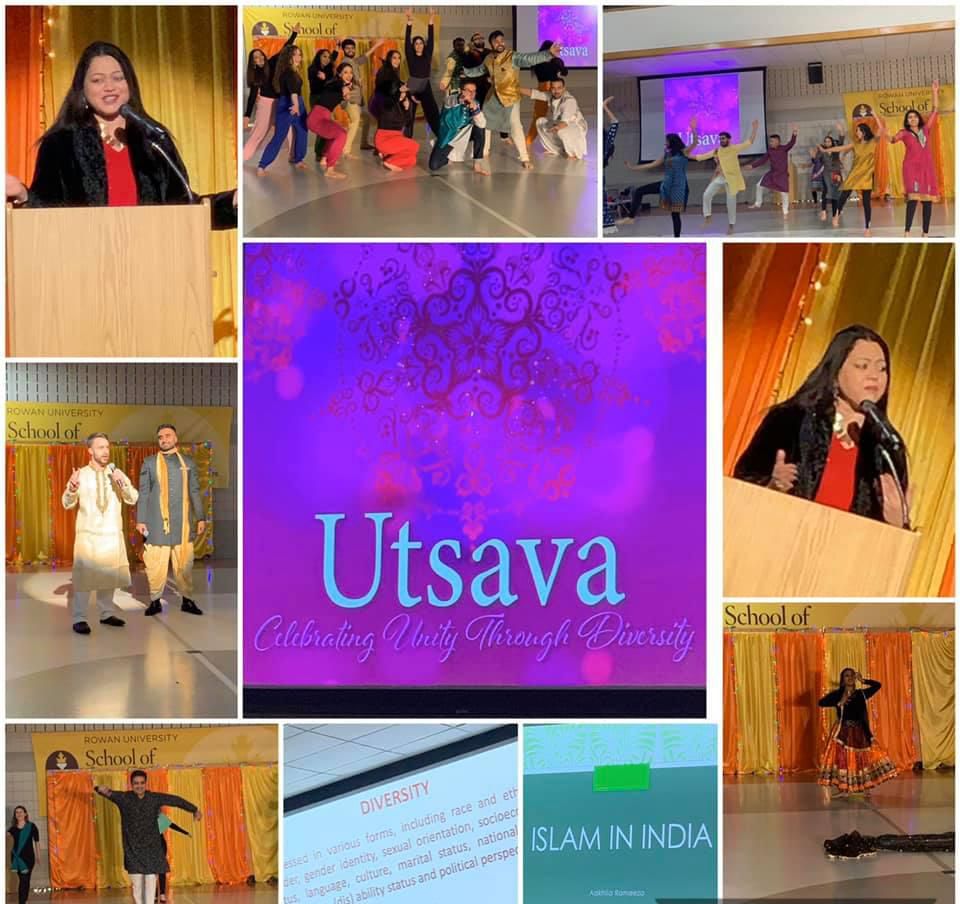 When she is not seeing patients, Dr. Gupta enjoys time with her triplets and husband, Dr. Sanjay Gupta. She gives full credit to her family for supporting her at every step of the way. I have very good friends in AAPI, who have full confidence in me and I can trust them to guide me through all stages in leading AAPI.”
When she is not seeing patients, Dr. Gupta enjoys time with her triplets and husband, Dr. Sanjay Gupta. She gives full credit to her family for supporting her at every step of the way. I have very good friends in AAPI, who have full confidence in me and I can trust them to guide me through all stages in leading AAPI.”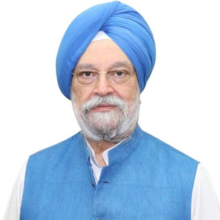 Hardeep Singh Puri, India’s Federal Minister for Housing & Urban Affairs, Minister for Petroleum and Natural Gas praised the book as an important contribution to the literature documenting India’s rising global health influence. He highlighted the book’s extensive exploration of India’s commendable vaccination drive and vaccine diplomacy, highlighting the nation’s vital role on the world stage during the unprecedented times characterized by the Pandemic.
Hardeep Singh Puri, India’s Federal Minister for Housing & Urban Affairs, Minister for Petroleum and Natural Gas praised the book as an important contribution to the literature documenting India’s rising global health influence. He highlighted the book’s extensive exploration of India’s commendable vaccination drive and vaccine diplomacy, highlighting the nation’s vital role on the world stage during the unprecedented times characterized by the Pandemic.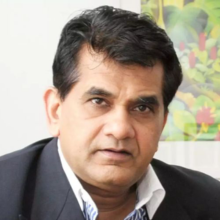 Amitabh Kant, IAS, G20 Sherpa and Former CEO of NITI Aayog, lauded the book as a proactive “call to action,” commending India’s leadership during its G20 presidency and the strategic health policy initiatives such as the New Delhi Declaration. He expressed his pleasure in writing a Preface for the book and emphasized its significance in, among other matters, documenting India’s effective vaccination campaign and vaccine diplomacy. The G20 Sherpa highlighted India’s crucial role during the pandemic and acknowledged the resilience of healthcare workers and the innovations in healthcare technology that emerged during this period.
Amitabh Kant, IAS, G20 Sherpa and Former CEO of NITI Aayog, lauded the book as a proactive “call to action,” commending India’s leadership during its G20 presidency and the strategic health policy initiatives such as the New Delhi Declaration. He expressed his pleasure in writing a Preface for the book and emphasized its significance in, among other matters, documenting India’s effective vaccination campaign and vaccine diplomacy. The G20 Sherpa highlighted India’s crucial role during the pandemic and acknowledged the resilience of healthcare workers and the innovations in healthcare technology that emerged during this period.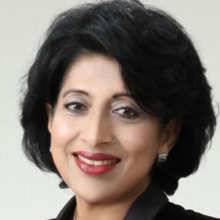 Prof. Dr. Ruby Pawankar, Executive Director and Former President of APAAACI and Former President of the World Allergy Organization, joined the launch event from Tokyo and described the book as an essential read for those committed to shaping a sustainable healthcare landscape, emphasizing its comprehensive approach and strategic use of technology during the pandemic.
Prof. Dr. Ruby Pawankar, Executive Director and Former President of APAAACI and Former President of the World Allergy Organization, joined the launch event from Tokyo and described the book as an essential read for those committed to shaping a sustainable healthcare landscape, emphasizing its comprehensive approach and strategic use of technology during the pandemic.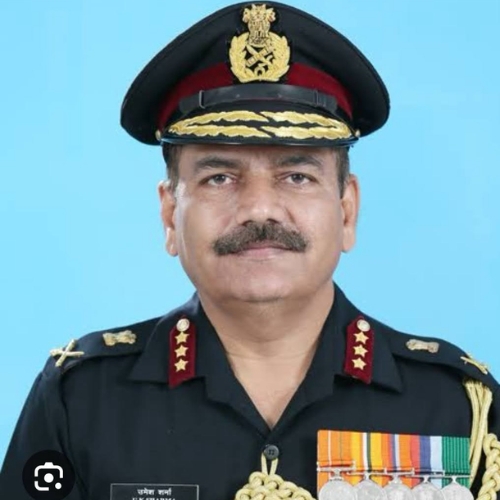 Lieutenant General Dr. UK Sharma, Former commandant of the Indian Army’s flagship Referral and Research Hospital, described the book as a seamless narrative that expertly portrayed India’s robust response to the pandemic. He praised the book’s portrayal of healthcare workers’ resilience and innovative solutions that emerged during the crisis, describing it as a vital resource for understanding global health challenges and India’s potential leadership in global healthcare.
Lieutenant General Dr. UK Sharma, Former commandant of the Indian Army’s flagship Referral and Research Hospital, described the book as a seamless narrative that expertly portrayed India’s robust response to the pandemic. He praised the book’s portrayal of healthcare workers’ resilience and innovative solutions that emerged during the crisis, describing it as a vital resource for understanding global health challenges and India’s potential leadership in global healthcare.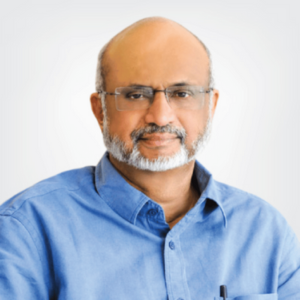 Prof. M.D. Nalapat discussed the importance of understanding the comprehensive strategies and healthcare reforms that India had implemented, which could serve as a model for other nations. He noted the comments made about the in-depth analysis provided by the co-authors and their view that the book is a critical resource for anyone involved in healthcare policy and administration, as it offered a blueprint for future global health initiatives.
Prof. M.D. Nalapat discussed the importance of understanding the comprehensive strategies and healthcare reforms that India had implemented, which could serve as a model for other nations. He noted the comments made about the in-depth analysis provided by the co-authors and their view that the book is a critical resource for anyone involved in healthcare policy and administration, as it offered a blueprint for future global health initiatives.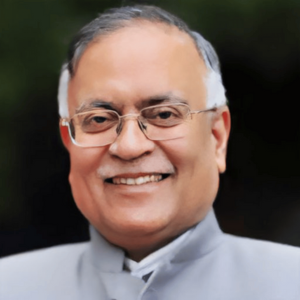 Ambassador Pradeep Kapur noted the book’s potential to guide other nations in strengthening their healthcare infrastructures and policies. He highlighted the authors’ collaborative efforts in bringing together diverse perspectives and insights, which enrich the book’s content and relevance. Ambassador Kapur also discussed the book’s broader implications for rural community empowerment and national digital financial infrastructure, underscoring its significance in advocating for systemic changes that can lead to improved global healthcare governance.
Ambassador Pradeep Kapur noted the book’s potential to guide other nations in strengthening their healthcare infrastructures and policies. He highlighted the authors’ collaborative efforts in bringing together diverse perspectives and insights, which enrich the book’s content and relevance. Ambassador Kapur also discussed the book’s broader implications for rural community empowerment and national digital financial infrastructure, underscoring its significance in advocating for systemic changes that can lead to improved global healthcare governance.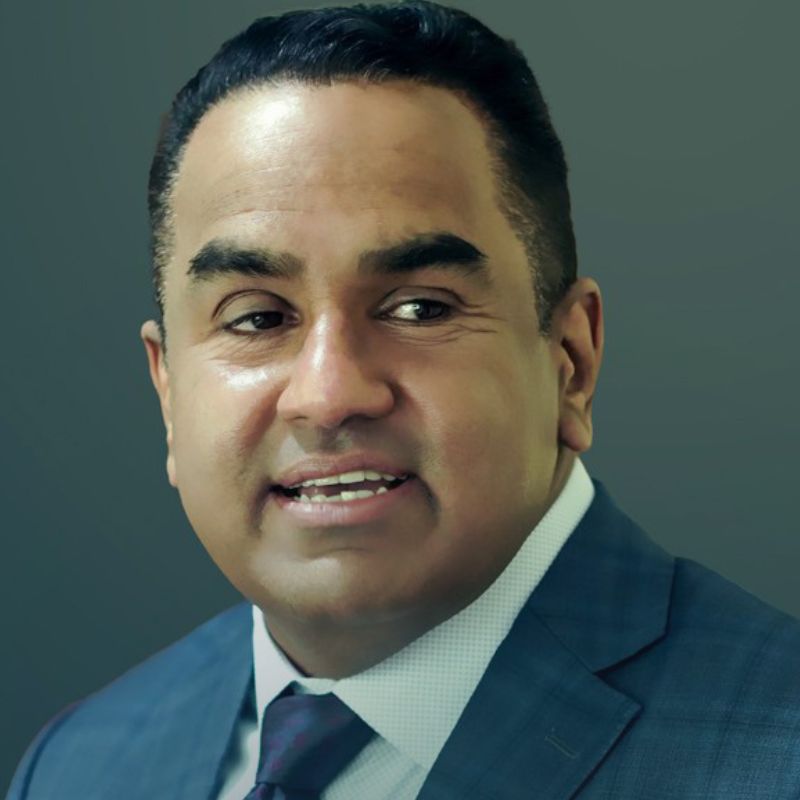
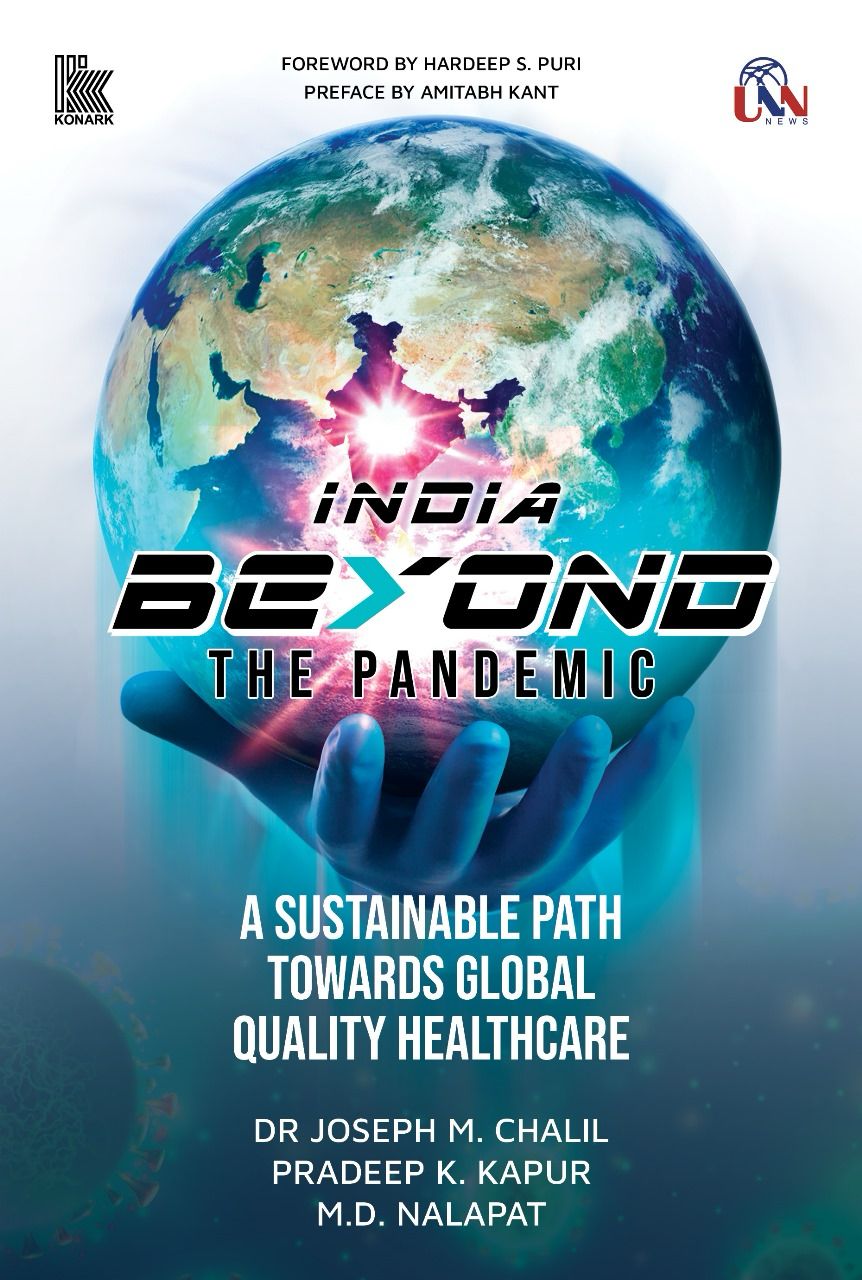
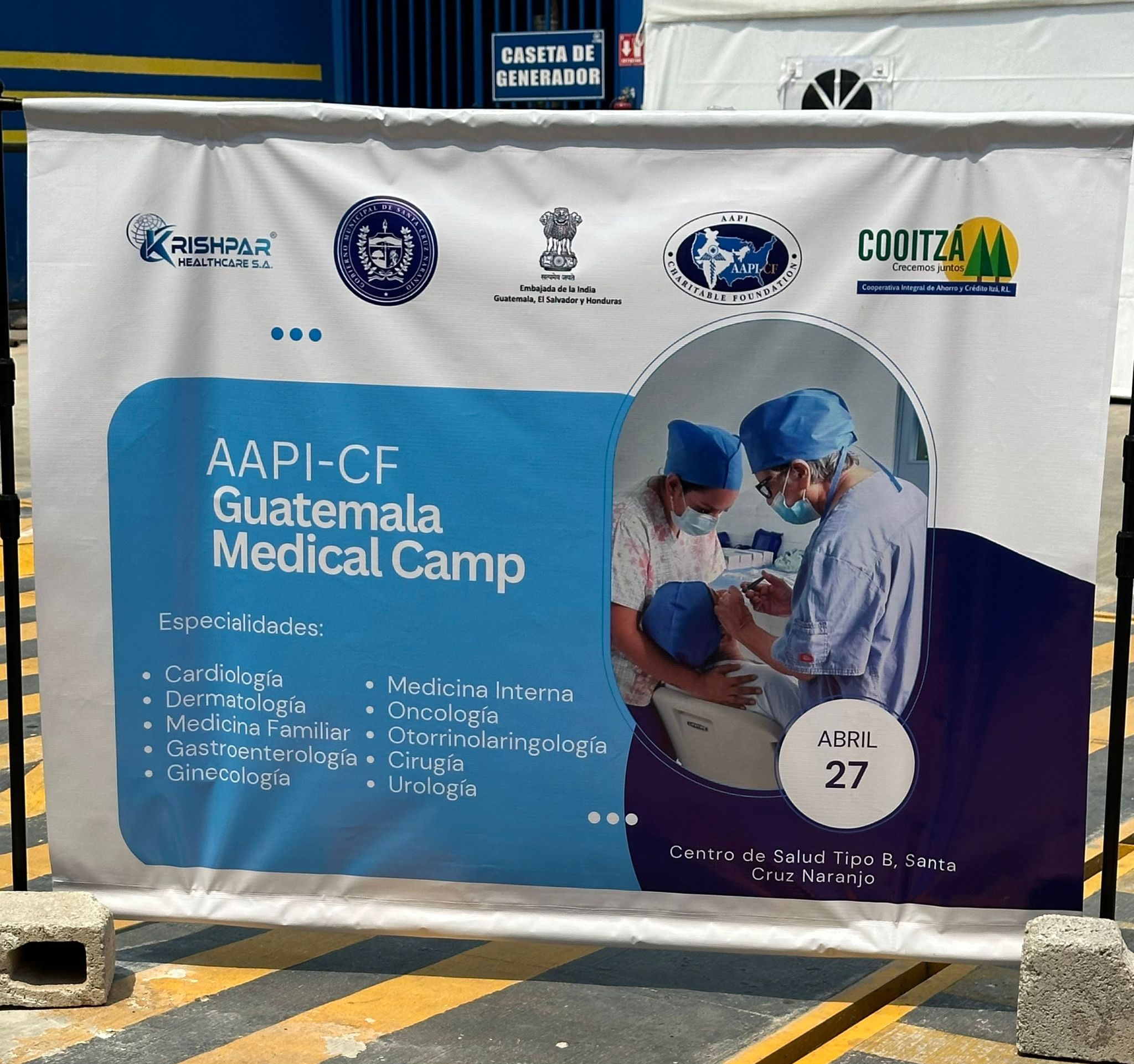
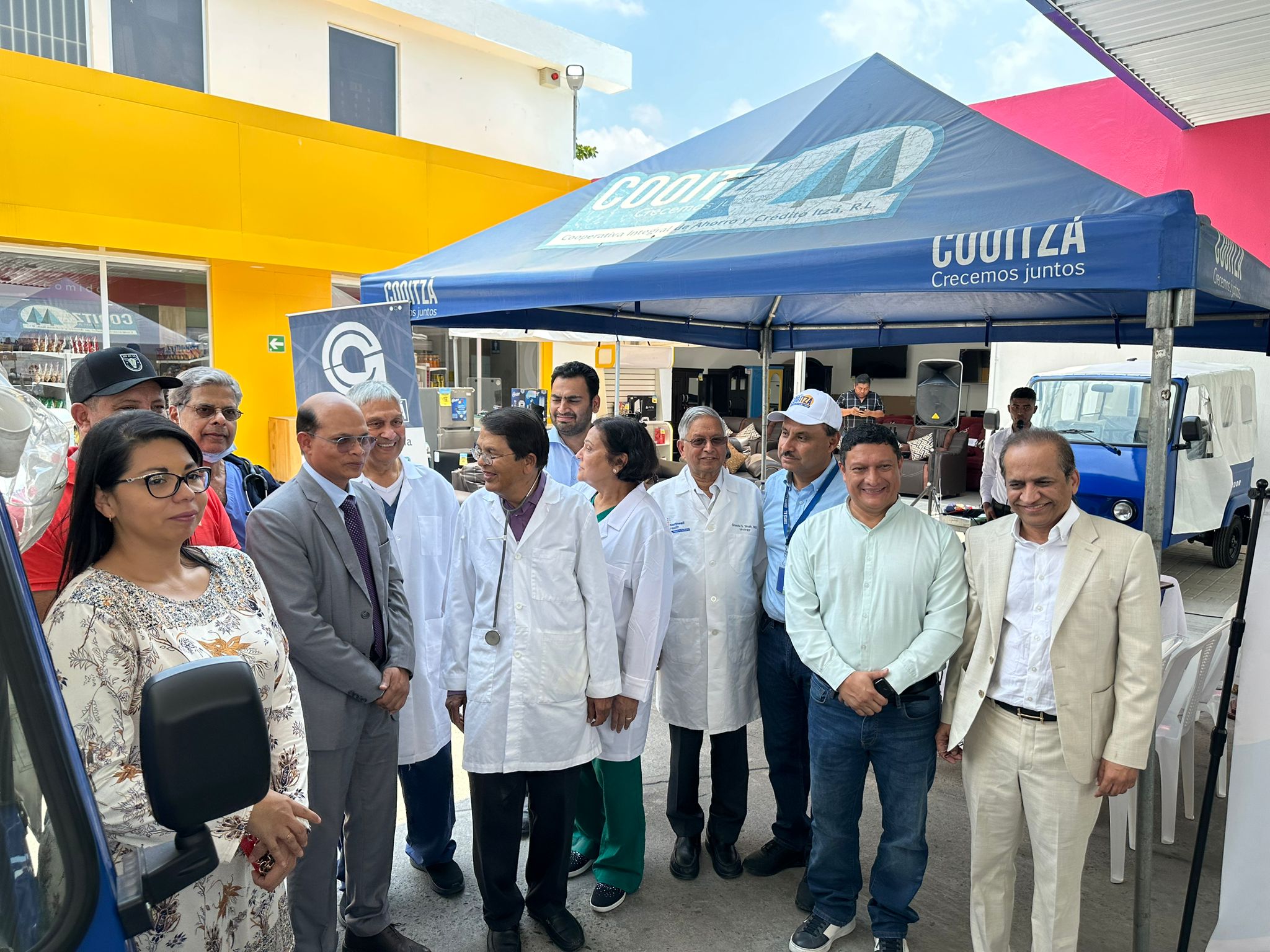 Municipalities of Santa Cruz Naranjo and Santa Rosa Lima. COOITZA, established in 2019 with the objective of the social and economic improvement and focused on the development and improvement of life, through health products, was instrumental in providing invaluable logistical support to arrange the health camp.
Municipalities of Santa Cruz Naranjo and Santa Rosa Lima. COOITZA, established in 2019 with the objective of the social and economic improvement and focused on the development and improvement of life, through health products, was instrumental in providing invaluable logistical support to arrange the health camp.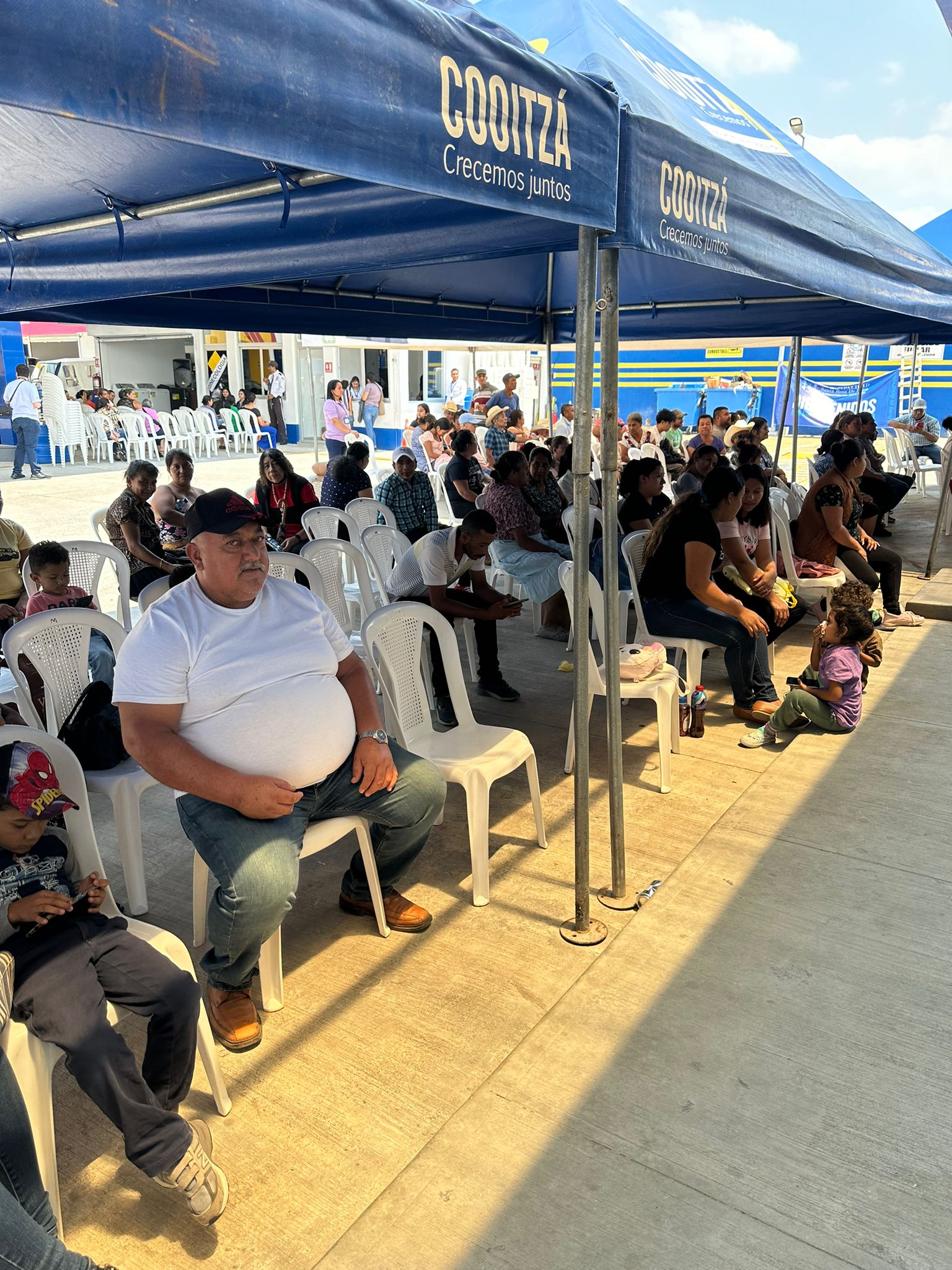
 Co-authored by Dr. Joseph M Chalil, Ambassador Pradeep Kapur, and Prof. MD Nalapat, the book will be released at the prestigious India International Centre, New Delhi in the presence of Shri Amitabh Kant, IAS, and Prof. Dr. Randeep Guleria on April 30, 2024.
Co-authored by Dr. Joseph M Chalil, Ambassador Pradeep Kapur, and Prof. MD Nalapat, the book will be released at the prestigious India International Centre, New Delhi in the presence of Shri Amitabh Kant, IAS, and Prof. Dr. Randeep Guleria on April 30, 2024.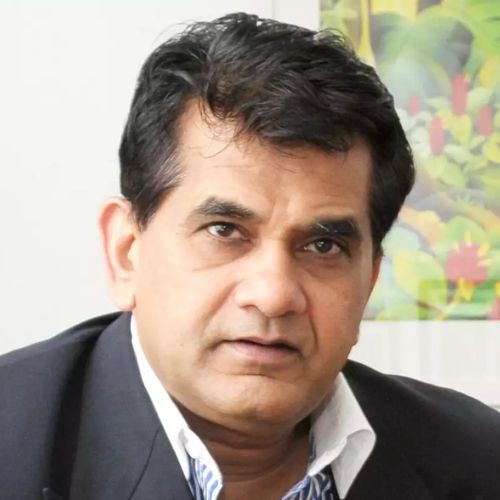 Shri Amitabh Kant, IAS, India’s G20 Sherpa, and former CEO, NITI Aayog called the book “a testament to the journey India undertook during those tumultuous times. This book serves as a crucial resource for policymakers, healthcare professionals, academics, and citizens alike.”
Shri Amitabh Kant, IAS, India’s G20 Sherpa, and former CEO, NITI Aayog called the book “a testament to the journey India undertook during those tumultuous times. This book serves as a crucial resource for policymakers, healthcare professionals, academics, and citizens alike.”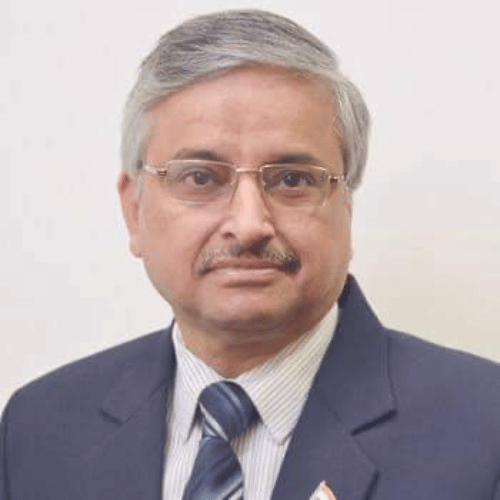 Prof. Dr. Randeep Guleria, Chairman, Institute of Internal Medicine & Respiratory and Sleep Medicine; Director, Medanta Medical School & former Director, All India Institute of Medical Sciences, New Delhi called the book “A must-read for anyone interested in understanding how the Covid-19 pandemic has both challenged and changed the Indian healthcare system, and the valuable lessons learned as we moved forward into a post-pandemic era.”
Prof. Dr. Randeep Guleria, Chairman, Institute of Internal Medicine & Respiratory and Sleep Medicine; Director, Medanta Medical School & former Director, All India Institute of Medical Sciences, New Delhi called the book “A must-read for anyone interested in understanding how the Covid-19 pandemic has both challenged and changed the Indian healthcare system, and the valuable lessons learned as we moved forward into a post-pandemic era.”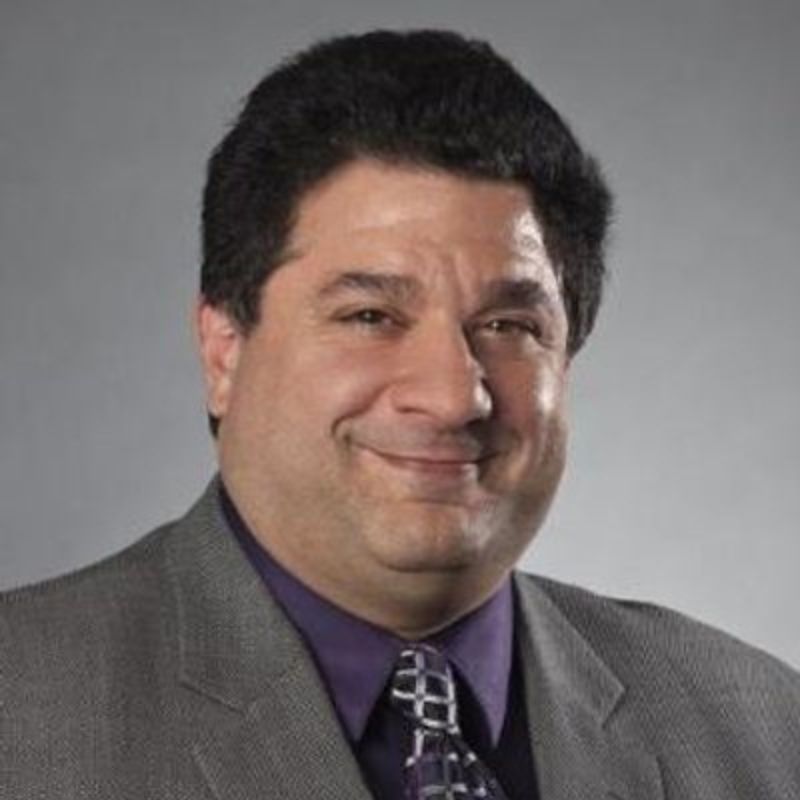 Dr. Stephen Shaya, Executive Servant Leader, J&B Medical, and Managing Director, Akkad Holdings said, “The book is not just a recount of the crisis but an inspiring narrative encouraging a reimagined approach to healthcare, emphasizing resilience, foresight, and the collective effort to forge a path to quality healthcare for all. It is a testament to the indomitable human spirit and the relentless pursuit of innovation in adversity.”
Dr. Stephen Shaya, Executive Servant Leader, J&B Medical, and Managing Director, Akkad Holdings said, “The book is not just a recount of the crisis but an inspiring narrative encouraging a reimagined approach to healthcare, emphasizing resilience, foresight, and the collective effort to forge a path to quality healthcare for all. It is a testament to the indomitable human spirit and the relentless pursuit of innovation in adversity.”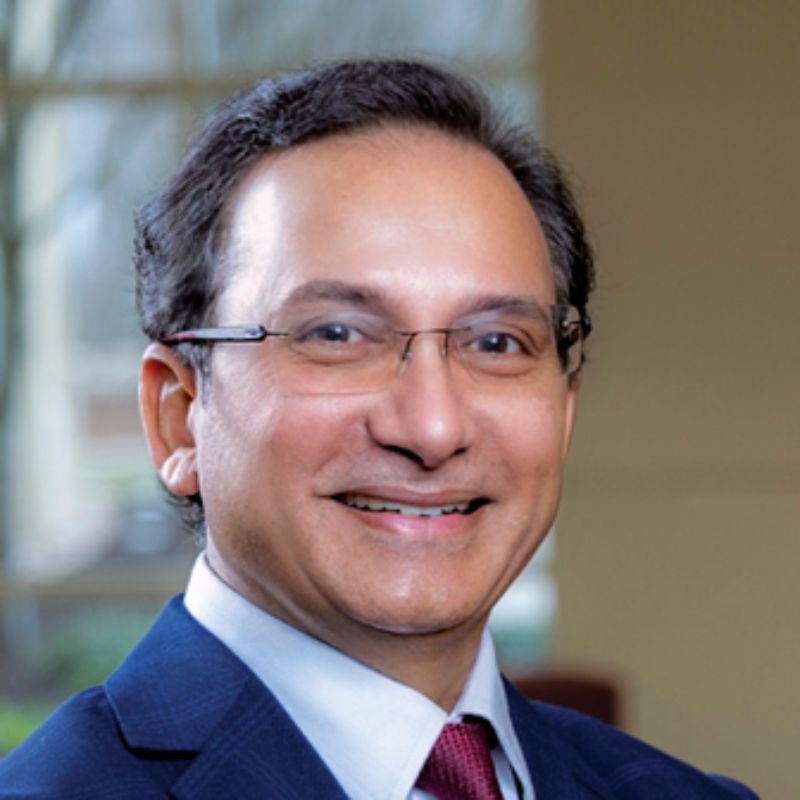 Dr. Satheesh Kathula, President-Elect, AAPI and Clinical Professor of Medicine, Wright State University, Global Healthcare Leaders Program (Harvard University commended the authors of the book “for its clarity, depth, and foresight, while presenting an illuminating analysis of the healthcare challenges and innovations that have emerged from the COVID-19 crisis, with a distinct emphasis on India’s strategic response. This book is a timely and vital contribution to the discourse on healthcare in the context of a global pandemic.”
Dr. Satheesh Kathula, President-Elect, AAPI and Clinical Professor of Medicine, Wright State University, Global Healthcare Leaders Program (Harvard University commended the authors of the book “for its clarity, depth, and foresight, while presenting an illuminating analysis of the healthcare challenges and innovations that have emerged from the COVID-19 crisis, with a distinct emphasis on India’s strategic response. This book is a timely and vital contribution to the discourse on healthcare in the context of a global pandemic.” Dr. Joseph M. Chalil is a visionary leader in the healthcare industry, currently steering Novo Integrated Sciences, Inc., as Chief Medical Officer. His illustrious career spans various facets of healthcare, innovation, and policy-making, underscored by his role as a Chief Strategic Advisor for the American Association of Physicians of Indian Origin (AAPI) and President of both NovoAmerica Health Group and Clinical Consultants International, LLC. Dr. Chalil is a Fellow of the American College of Healthcare Executives and is recognized for his leadership in healthcare administration. His contributions to healthcare and policy are internationally recognized, with numerous awards highlighting his leadership and innovative thinking.
Dr. Joseph M. Chalil is a visionary leader in the healthcare industry, currently steering Novo Integrated Sciences, Inc., as Chief Medical Officer. His illustrious career spans various facets of healthcare, innovation, and policy-making, underscored by his role as a Chief Strategic Advisor for the American Association of Physicians of Indian Origin (AAPI) and President of both NovoAmerica Health Group and Clinical Consultants International, LLC. Dr. Chalil is a Fellow of the American College of Healthcare Executives and is recognized for his leadership in healthcare administration. His contributions to healthcare and policy are internationally recognized, with numerous awards highlighting his leadership and innovative thinking.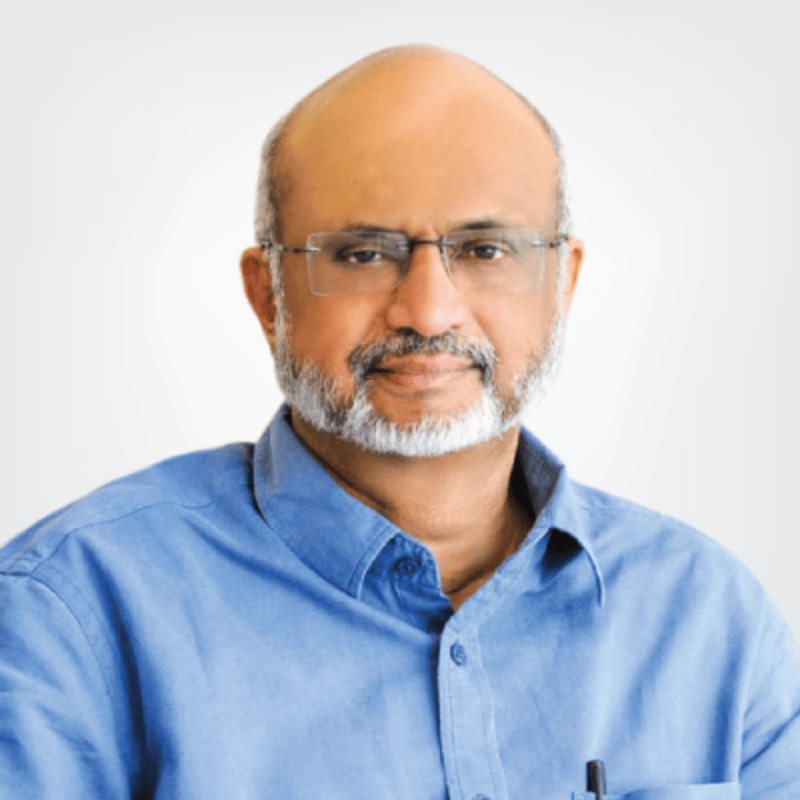 Professor M.D. Nalapat is the UNESCO Peace Chair at Manipal University, and Director of the Department of Geopolitics & International Relations. Currently, he is the Editorial Director of ITV Network (India) & The Sunday Guardian. He is also the Vice-Chair of Manipal Advanced Research Group and Director of the Department of Geopolitics & International Relations at Manipal University. He has been the Editor of the Mathrubhumi and the Times of India. He has played a key role in the literacy movement in Kerala, as the first honorary coordinator of the Kerala Association for Non-formal Education and Development. He has excelled as an Advisory Board member and Associate member in various institutions. He is also a member of the Resource Board, Centre for International Relations, Washington D.C.
Professor M.D. Nalapat is the UNESCO Peace Chair at Manipal University, and Director of the Department of Geopolitics & International Relations. Currently, he is the Editorial Director of ITV Network (India) & The Sunday Guardian. He is also the Vice-Chair of Manipal Advanced Research Group and Director of the Department of Geopolitics & International Relations at Manipal University. He has been the Editor of the Mathrubhumi and the Times of India. He has played a key role in the literacy movement in Kerala, as the first honorary coordinator of the Kerala Association for Non-formal Education and Development. He has excelled as an Advisory Board member and Associate member in various institutions. He is also a member of the Resource Board, Centre for International Relations, Washington D.C.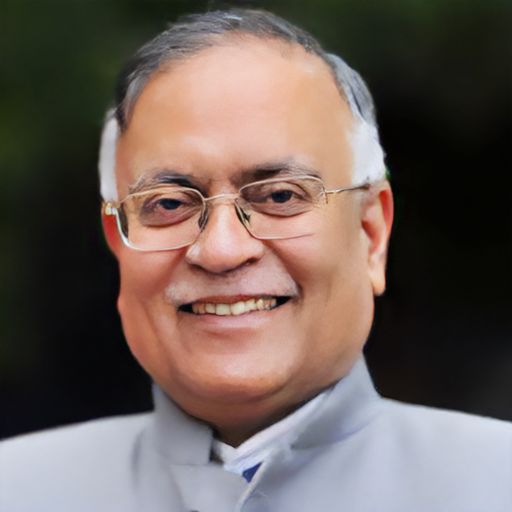 Ambassador Pradeep Kapur is an acknowledged “luminary diplomat,” with a distinguished career working with leaders and policymakers in different continents of the world: Asia, Africa, Europe, North America, and South America. Author and editor of many books, Kapur was Ambassador of India to Chile and Cambodia and Secretary at the Indian Ministry of External Affairs before joining as an academic in reputed universities in the USA and India. A graduate of the globally acclaimed Indian Institute of Technology, Delhi (IIT-D), he is the Executive Director of Smart Village Development Fund (SVDF); International Economic Strategic Advisor, Intellect Design Arena; and Chairman, Advisory Council, DiplomacyIndia.com. His healthcare contributions include setting up of BP Koirala Institute of Health Sciences in Eastern Nepal, which is acclaimed as an exemplary bilateral India Nepal initiative. His advocacy for accessible healthcare is evident through his seminal work in collaboration with Dr. Chalil, “
Ambassador Pradeep Kapur is an acknowledged “luminary diplomat,” with a distinguished career working with leaders and policymakers in different continents of the world: Asia, Africa, Europe, North America, and South America. Author and editor of many books, Kapur was Ambassador of India to Chile and Cambodia and Secretary at the Indian Ministry of External Affairs before joining as an academic in reputed universities in the USA and India. A graduate of the globally acclaimed Indian Institute of Technology, Delhi (IIT-D), he is the Executive Director of Smart Village Development Fund (SVDF); International Economic Strategic Advisor, Intellect Design Arena; and Chairman, Advisory Council, DiplomacyIndia.com. His healthcare contributions include setting up of BP Koirala Institute of Health Sciences in Eastern Nepal, which is acclaimed as an exemplary bilateral India Nepal initiative. His advocacy for accessible healthcare is evident through his seminal work in collaboration with Dr. Chalil, “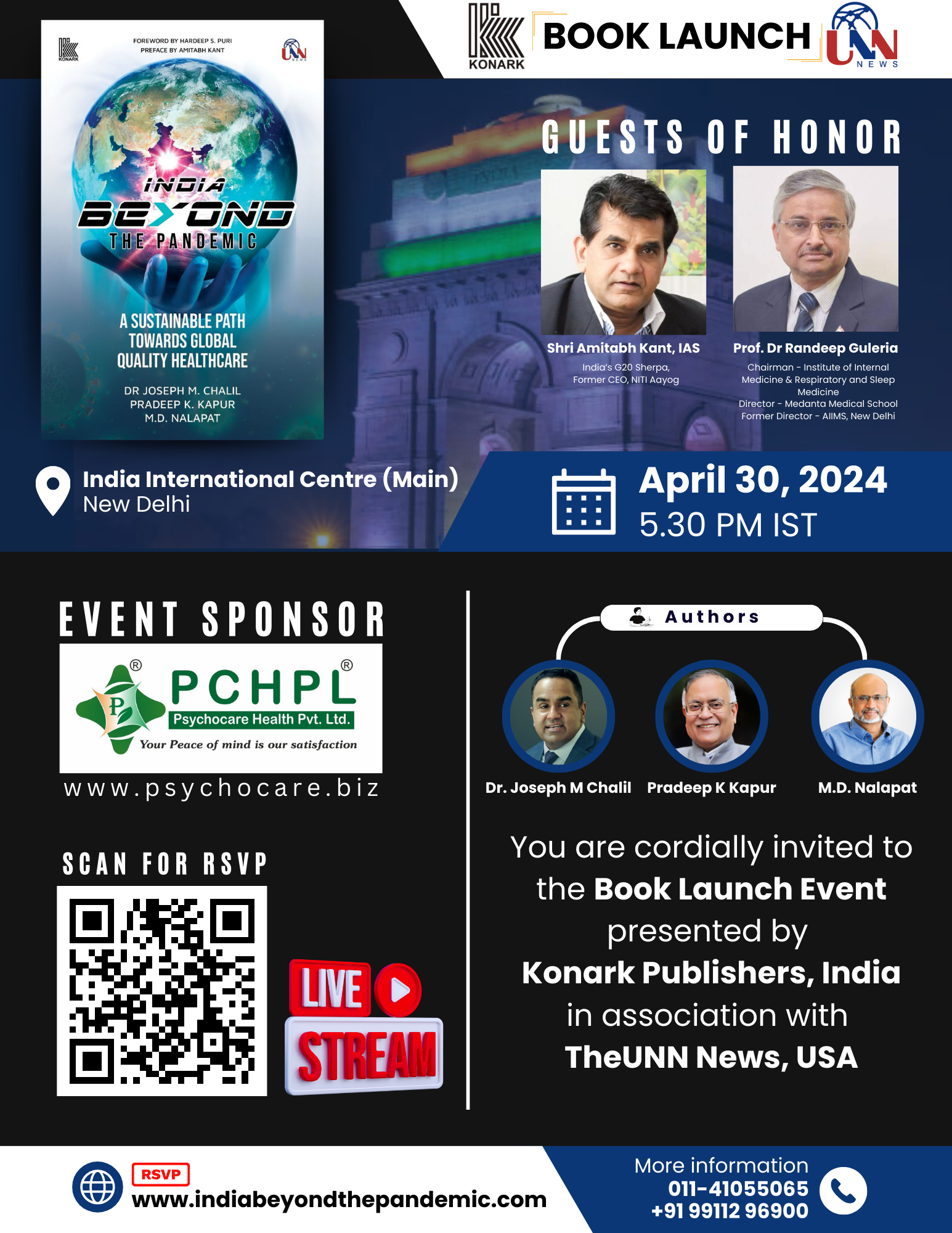
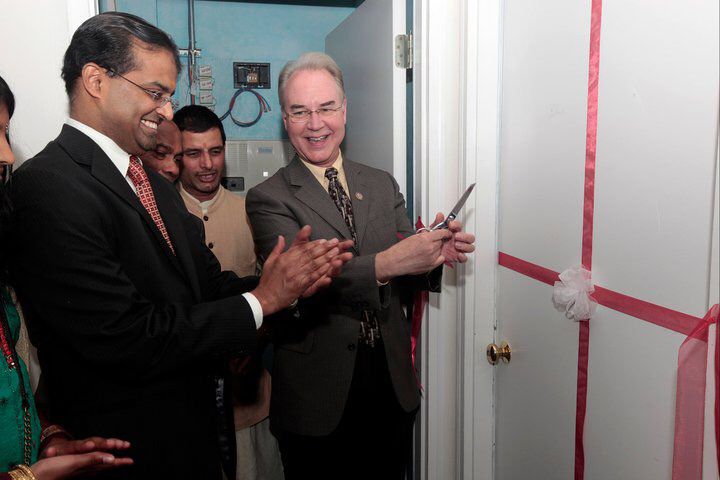 “GAPI Volunteer Clinic in Atlanta recently started working with SEWA volunteers to serve Hispanic and other underserved communities along with Indian and South Asian patients,” says Dr. Gangasani. “At present, the clinic is open first and third Saturdays, and we have plans to open the clinic every Saturday if volunteer physicians are available,” says Dr. Gangasani.
“GAPI Volunteer Clinic in Atlanta recently started working with SEWA volunteers to serve Hispanic and other underserved communities along with Indian and South Asian patients,” says Dr. Gangasani. “At present, the clinic is open first and third Saturdays, and we have plans to open the clinic every Saturday if volunteer physicians are available,” says Dr. Gangasani.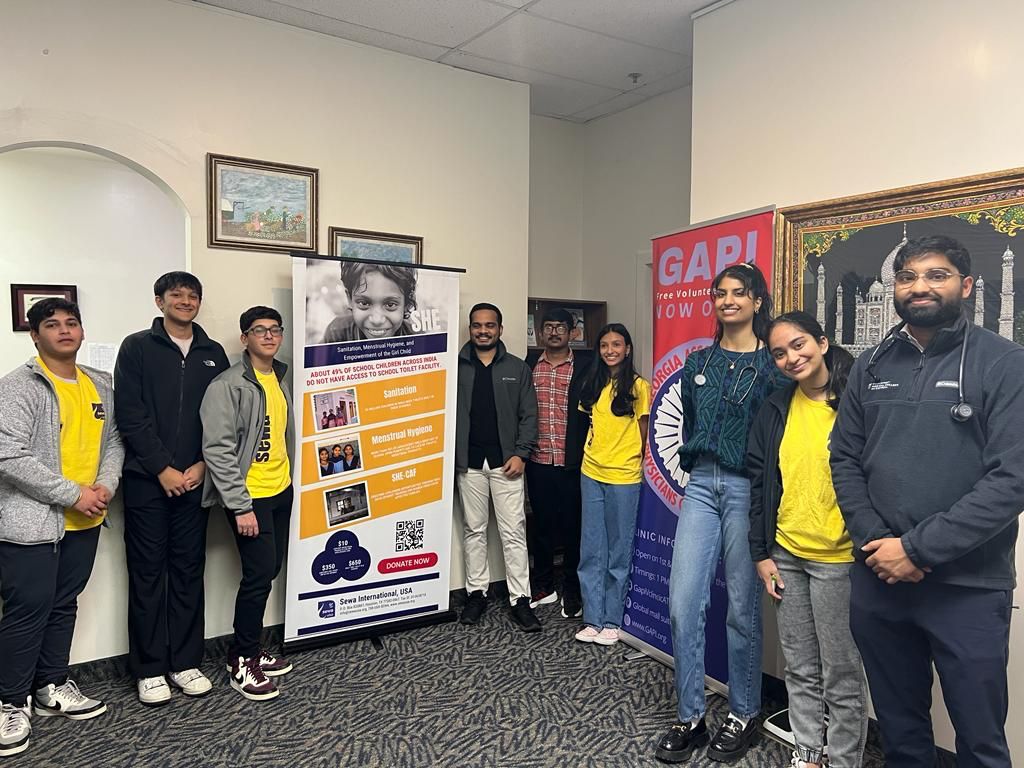 As the director of the GAPI volunteer clinic since 2010, Dr. Gangasani says, “I just wanted to take a moment to express how grateful I am to work at the GAPI clinic. It is truly a blessing to be able to provide medical care to those who may not otherwise have access to it. The gratitude that our patients express when they are seen is truly heartwarming and makes all the hard work worth it. I feel good knowing that I am making a positive impact in the lives of others. Thank you to all the dedicated staff and volunteers who make this possible.”
As the director of the GAPI volunteer clinic since 2010, Dr. Gangasani says, “I just wanted to take a moment to express how grateful I am to work at the GAPI clinic. It is truly a blessing to be able to provide medical care to those who may not otherwise have access to it. The gratitude that our patients express when they are seen is truly heartwarming and makes all the hard work worth it. I feel good knowing that I am making a positive impact in the lives of others. Thank you to all the dedicated staff and volunteers who make this possible.”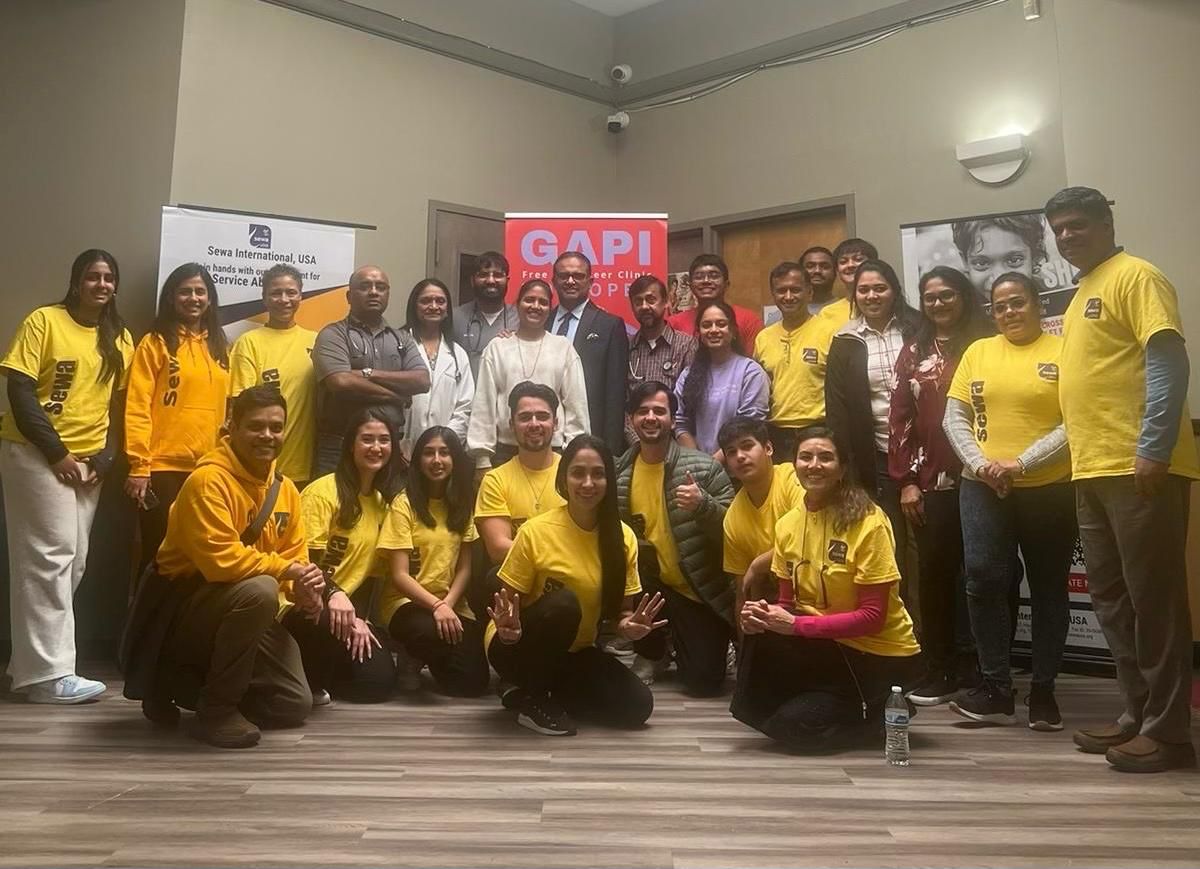 During Covid, the clinic was closed and referred for free telehealth consultations by telehealth companies like Eglobaldoctors who helped many patients during difficult times. Now that the pandemic is behind us, the organizers of the Clini want to expand the services and help more patients who are in need of healthcare.
During Covid, the clinic was closed and referred for free telehealth consultations by telehealth companies like Eglobaldoctors who helped many patients during difficult times. Now that the pandemic is behind us, the organizers of the Clini want to expand the services and help more patients who are in need of healthcare.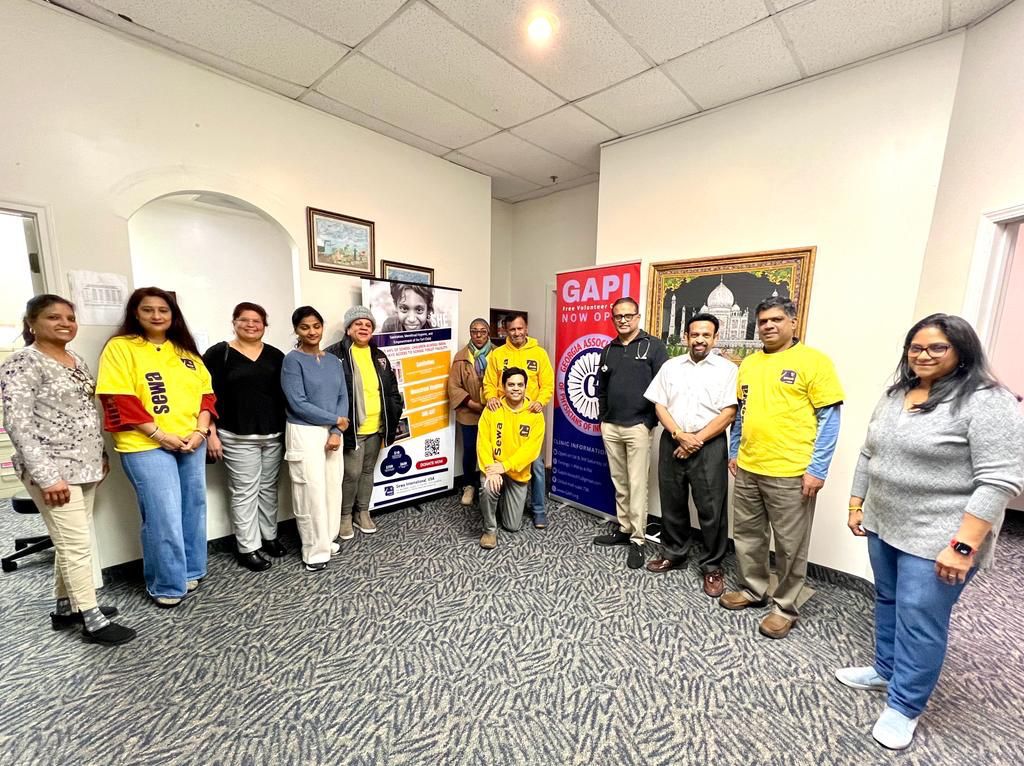 Dr. Gangasani urged GAPI physicians and nurses to step up to the plate and volunteer for a few hours at the clinic. GAPI volunteer free clinic is available at the Global Mall for people with no Insurance and low income. Free Primary care consultation is available for the family. The leaders of the Clinic are working on getting discounted rates at pharmacies.
Dr. Gangasani urged GAPI physicians and nurses to step up to the plate and volunteer for a few hours at the clinic. GAPI volunteer free clinic is available at the Global Mall for people with no Insurance and low income. Free Primary care consultation is available for the family. The leaders of the Clinic are working on getting discounted rates at pharmacies.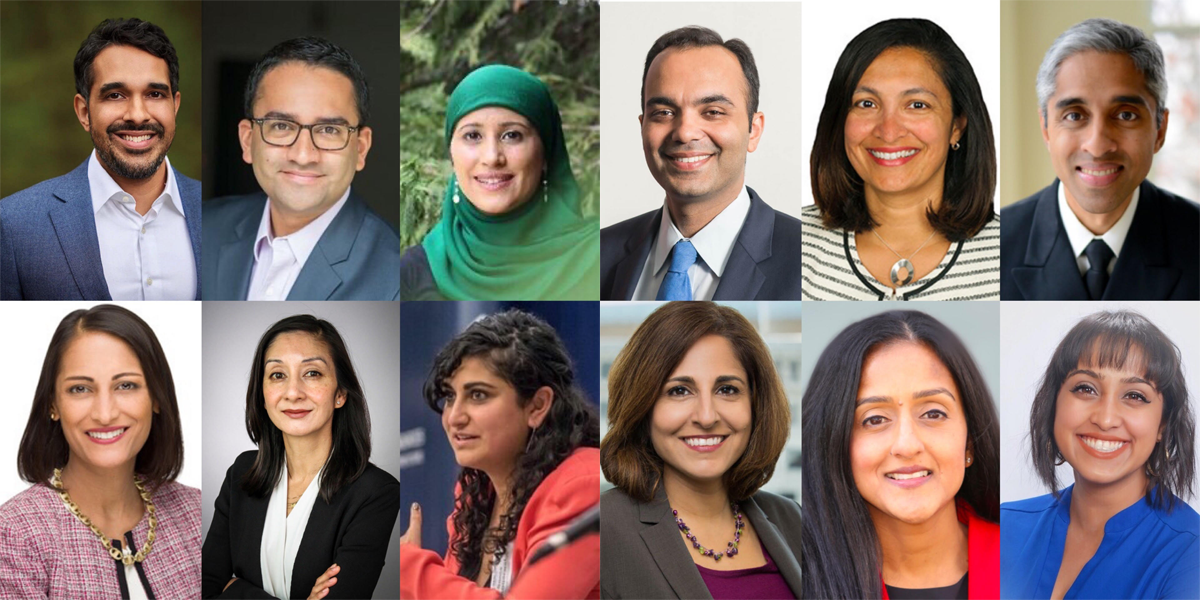 Ever since Gov. Bobby Jindal the first ever major Indian American presidential candidate who had sought to occupy the White House, there have been many others who have followed in his footsteps. Indian Americans have expressed keen interest in carving out their political space at the national table for decades, and now, the fruits of their labor are paying off, with more successes now than ever before.
Ever since Gov. Bobby Jindal the first ever major Indian American presidential candidate who had sought to occupy the White House, there have been many others who have followed in his footsteps. Indian Americans have expressed keen interest in carving out their political space at the national table for decades, and now, the fruits of their labor are paying off, with more successes now than ever before.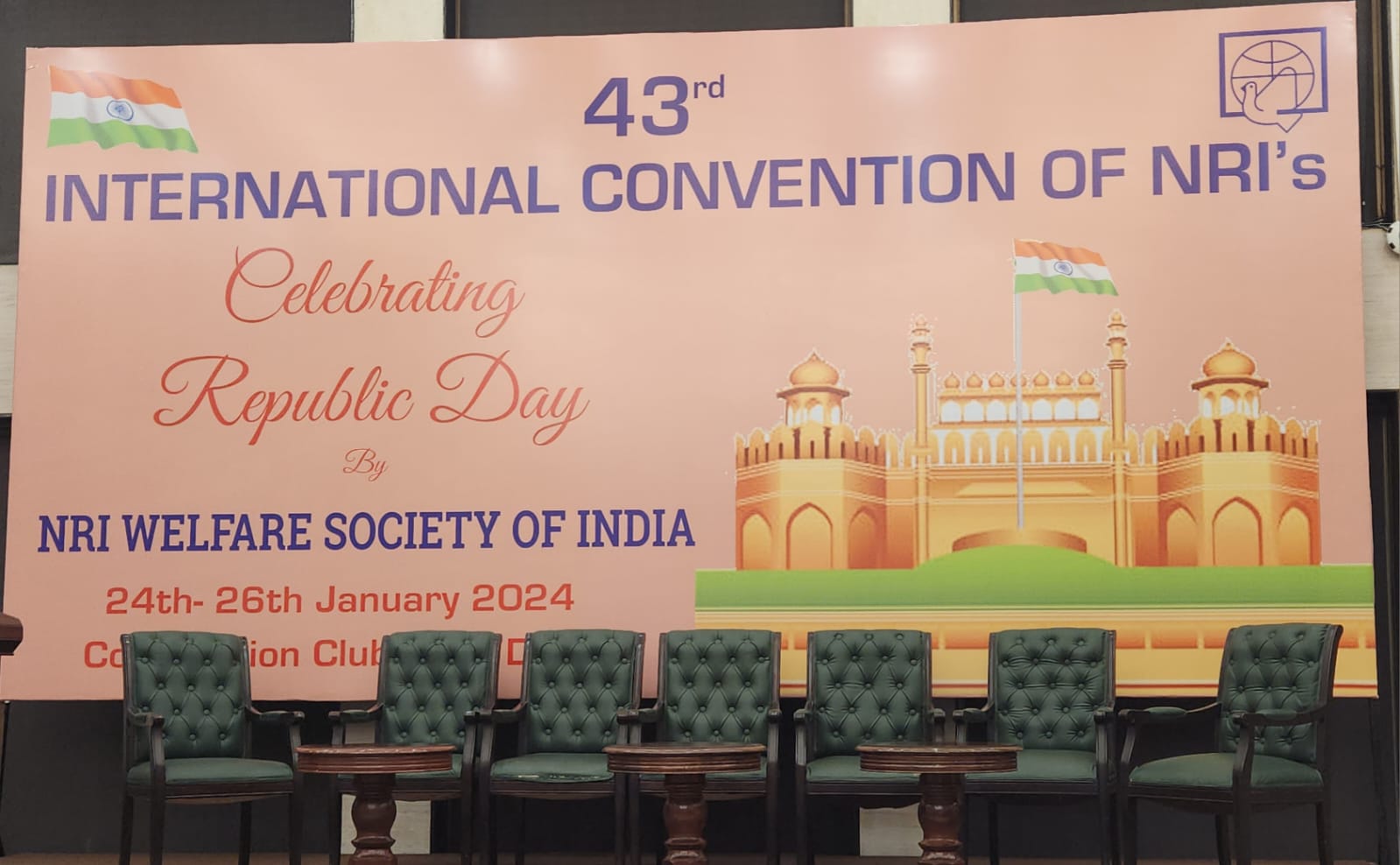 Described as the second highest award given to the Indian diaspora, The ‘Hind Rattan Award’ is given to outstanding Indians by the NRI Welfare Society of India, New Delhi. In conjunction with the national Pravasi Bharatiya award, the highest one (given by the Government of India), the Hindu Rattan award is granted at the society’s annual Congress on the eve of India’s Republic Day. The Hindu Rattan award ceremony is attended by the members of the Prime Minister’s Office, Government officials, Judges and advocates of the Supreme Court of India, international diplomats, and celebrities.
Described as the second highest award given to the Indian diaspora, The ‘Hind Rattan Award’ is given to outstanding Indians by the NRI Welfare Society of India, New Delhi. In conjunction with the national Pravasi Bharatiya award, the highest one (given by the Government of India), the Hindu Rattan award is granted at the society’s annual Congress on the eve of India’s Republic Day. The Hindu Rattan award ceremony is attended by the members of the Prime Minister’s Office, Government officials, Judges and advocates of the Supreme Court of India, international diplomats, and celebrities.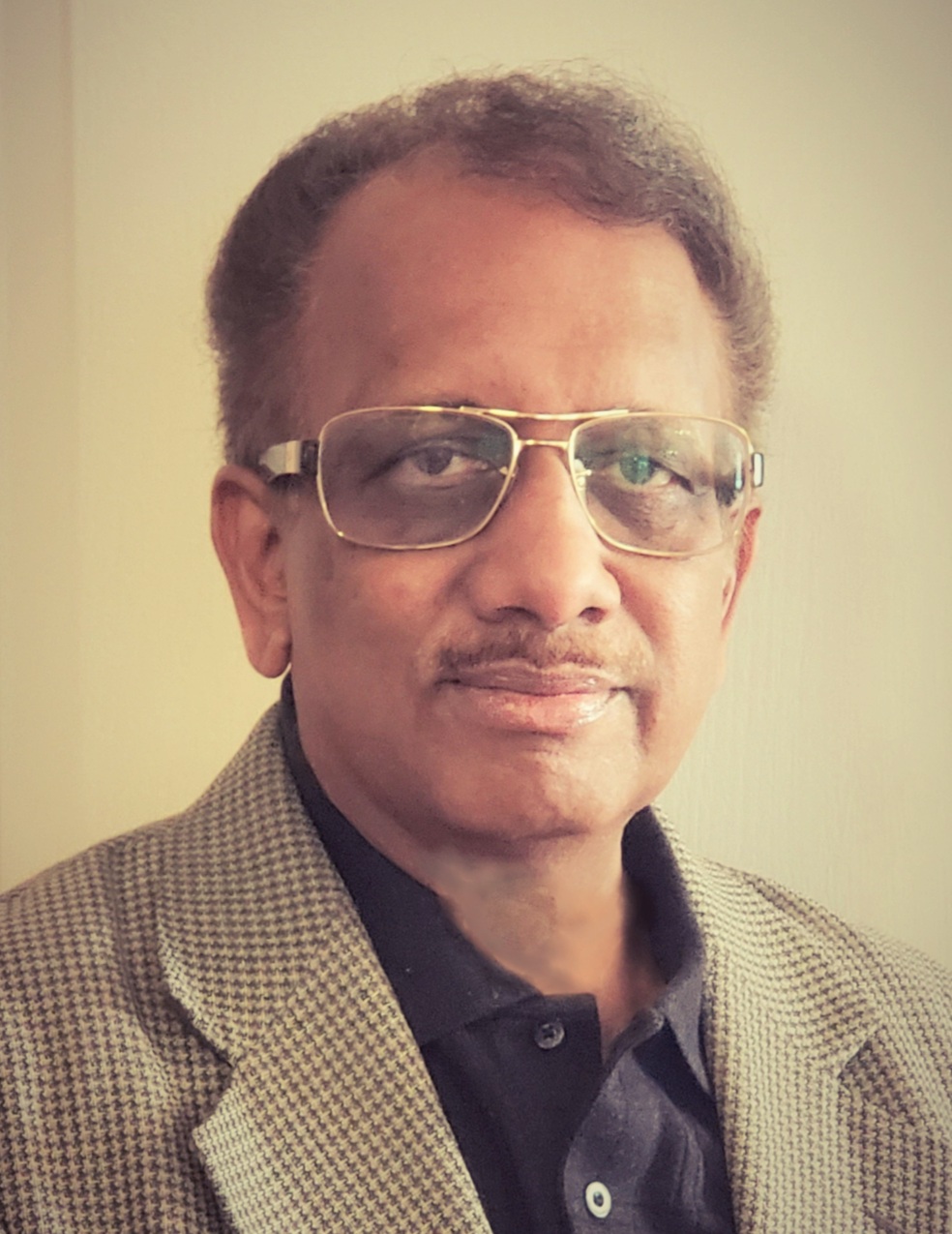 research, teaching and mentoring in the field of medicine spans 40 years in Asia (India & Japan), Europe, and the United States, including the Intramural Research Program of the US National Institutes of Health, and the US Department of Veterans Affairs. During this period, Dr. Kishore did impactful research with seminal discoveries in kidney diseases, obesity, and related conditions, and obtained patents for the development of novel therapies. In recognition of his innovative work in academics, Dr. Kishore has been inducted as the Senior Member of the National Academy of Inventors, Washington DC.He has been inducted as a Fellow by professional organizations such as the American Society of Nephrology (FASN), Royal Society of Biology (FRSB), American Physiological Society (FAPS), American Heart Association (FAHA), the International Society of Nephrology (FISN).
research, teaching and mentoring in the field of medicine spans 40 years in Asia (India & Japan), Europe, and the United States, including the Intramural Research Program of the US National Institutes of Health, and the US Department of Veterans Affairs. During this period, Dr. Kishore did impactful research with seminal discoveries in kidney diseases, obesity, and related conditions, and obtained patents for the development of novel therapies. In recognition of his innovative work in academics, Dr. Kishore has been inducted as the Senior Member of the National Academy of Inventors, Washington DC.He has been inducted as a Fellow by professional organizations such as the American Society of Nephrology (FASN), Royal Society of Biology (FRSB), American Physiological Society (FAPS), American Heart Association (FAHA), the International Society of Nephrology (FISN).